611 papers:
 DAC-2015-WolfF #architecture #continuation #question #what
DAC-2015-WolfF #architecture #continuation #question #what- What don’t we know about CPS architectures? (MW, EF), p. 4.
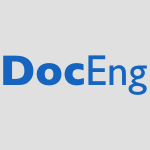 DocEng-2015-AtenciaDG #linked data #open data #question #what
DocEng-2015-AtenciaDG #linked data #open data #question #what- What Is This Thing Called Linked Data? (MA, JD, PG), pp. 233–234.
 DocEng-2015-Paoli #documentation #what
DocEng-2015-Paoli #documentation #what- Documents as Data, Data as Documents: What we learned about Semi-Structured Information for our Open World of Cloud & Devices (JP), p. 1.
 SIGMOD-2015-CSKZYRPAKDRD #big data #industrial #what #why
SIGMOD-2015-CSKZYRPAKDRD #big data #industrial #what #why- Why Big Data Industrial Systems Need Rules and What We Can Do About It (PSGC, CS, KGK, HZ, FY, NR, SP, EA, GK, RD, VR, AD), pp. 265–276.
 FASE-2015-CzechJW #exclamation #verification #what
FASE-2015-CzechJW #exclamation #verification #what- Just Test What You Cannot Verify! (MC, MCJ, HW), pp. 100–114.
 ICPC-2015-MinelliML #developer #how #what
ICPC-2015-MinelliML #developer #how #what- I know what you did last summer: an investigation of how developers spend their time (RM, AM, ML), pp. 25–35.
 ICSME-2015-KhadkaSKSHJDB #analysis #case study #legacy #what
ICSME-2015-KhadkaSKSHJDB #analysis #case study #legacy #what- Does software modernization deliver what it aimed for? A post modernization analysis of five software modernization case studies (RK, PS, BK, AS, JH, SJ, EvD, MB), pp. 477–486.
 ICSME-2015-SharmaTL #question #re-engineering #twitter #what
ICSME-2015-SharmaTL #question #re-engineering #twitter #what- What’s hot in software engineering Twitter space? (AS, YT, DL), pp. 541–545.
 ICSME-2015-TianNLH #android #case study #what
ICSME-2015-TianNLH #android #case study #what- What are the characteristics of high-rated apps? A case study on free Android Applications (YT, MN, DL, AEH), pp. 301–310.
 MSR-2015-WangPWG #comprehension #git #what
MSR-2015-WangPWG #comprehension #git #what- What Is the Gist? Understanding the Use of Public Gists on GitHub (WW, GPC, EW, DMG), pp. 314–323.
 SANER-2015-Mirakhorli #architecture #how #question #re-engineering #what #why
SANER-2015-Mirakhorli #architecture #how #question #re-engineering #what #why- Software architecture reconstruction: Why? What? How? (MM), p. 595.
 ICALP-v1-2015-BienvenuDS #question #source code #what
ICALP-v1-2015-BienvenuDS #question #source code #what- What Percentage of Programs Halt? (LB, DD, AS), pp. 219–230.
 CHI-2015-AbbarMW #twitter #what
CHI-2015-AbbarMW #twitter #what- You Tweet What You Eat: Studying Food Consumption Through Twitter (SA, YM, IW), pp. 3197–3206.
 CHI-2015-AmmariKLS #how #online #what
CHI-2015-AmmariKLS #how #online #what- Managing Children’s Online Identities: How Parents Decide what to Disclose about their Children Online (TA, PK, CL, SYS), pp. 1895–1904.
 CHI-2015-BorstTR #problem #what
CHI-2015-BorstTR #problem #what- What Makes Interruptions Disruptive?: A Process-Model Account of the Effects of the Problem State Bottleneck on Task Interruption and Resumption (JPB, NAT, HvR), pp. 2971–2980.
 CHI-2015-CramerJ #communication #question #what #why
CHI-2015-CramerJ #communication #question #what #why- Couples’ Communication Channels: What, When & Why? (HC, MLJ), pp. 709–712.
 CHI-2015-GanglbauerFG #what #why
CHI-2015-GanglbauerFG #what #why- Why and what did we throw out?: Probing on Reflection through the Food Waste Diary (EG, GF, FG), pp. 1105–1114.
 CHI-2015-GruningBO #question #what
CHI-2015-GruningBO #question #what- Medium, Access, and Obsolescence: What Kinds of Objects are Lasting Objects? (JG, JB, MO), pp. 3433–3442.
 CHI-2015-HangLH #authentication #exclamation #security #smarttech #what
CHI-2015-HangLH #authentication #exclamation #security #smarttech #what- I Know What You Did Last Week! Do You?: Dynamic Security Questions for Fallback Authentication on Smartphones (AH, ADL, HH), pp. 1383–1392.
 CHI-2015-LapidesCCG #question #what
CHI-2015-LapidesCCG #question #what- News Feed: What’s in it for Me? (PL, AC, MSTC, SG), pp. 163–172.
 CHI-2015-MudliarR #gender #online
CHI-2015-MudliarR #gender #online- Offline Strangers, Online Friends: Bridging Classroom Gender Segregation with WhatsApp (PM, NR), pp. 3799–3808.
 CHI-2015-PanS #human-computer #question #what
CHI-2015-PanS #human-computer #question #what- What if HCI Becomes a Fashion Driven Discipline? (YP, ES), pp. 2565–2568.
 CHI-2015-ZhangAK #how #question #what #why
CHI-2015-ZhangAK #how #question #what #why- Mailing Lists: Why Are They Still Here, What’s Wrong With Them, and How Can We Fix Them? (AXZ, MSA, DRK), pp. 4009–4018.
 CSCW-2015-Anya #design #exclamation #question #what
CSCW-2015-Anya #design #exclamation #question #what- Bridge the Gap!: What Can Work Design in Crowdwork Learn from Work Design Theories? (OA), pp. 612–627.
 CSCW-2015-MatthewsMCMHB #community #what
CSCW-2015-MatthewsMCMHB #community #what- They Said What?: Exploring the Relationship Between Language Use and Member Satisfaction in Communities (TM, JUM, JC, MM, EMH, HB), pp. 819–825.
 CSCW-2015-OlteanuVC #social #social media #what
CSCW-2015-OlteanuVC #social #social media #what- What to Expect When the Unexpected Happens: Social Media Communications Across Crises (AO, SV, CC), pp. 994–1009.
 CSCW-2015-TrainerCKH #community #question #what
CSCW-2015-TrainerCKH #community #question #what- From Personal Tool to Community Resource: What’s the Extra Work and Who Will Do It? (EHT, CC, AK, JDH), pp. 417–430.
 DUXU-DD-2015-HertleinHVSW #human-computer #usability #what
DUXU-DD-2015-HertleinHVSW #human-computer #usability #what- Practice What We Preach — Checking the Usability of HCI Conference Websites (FH, BH, MV, TS, CW), pp. 295–305.
 DUXU-IXD-2015-CookBGK #quote #what
DUXU-IXD-2015-CookBGK #quote #what- “Keep What You’ve Earned”: Encouraging Sailors to Drink Responsibly (KC, EB, CG, TK), pp. 575–586.
 DUXU-IXD-2015-LinC15a #what
DUXU-IXD-2015-LinC15a #what- What Travelers Want: An Investigation into User Needs and User Wants on Display (TSL, CNC), pp. 496–504.
 DUXU-IXD-2015-WalterKWAB #adaptation #question #recommendation #what
DUXU-IXD-2015-WalterKWAB #adaptation #question #recommendation #what- What Are the Expectations of Users of an Adaptive Recommendation Service Which Aims to Reduce Driver Distraction? (NW, BK, CW, TA, KB), pp. 517–528.
 HCI-DE-2015-BevanCH #question #usability #what
HCI-DE-2015-BevanCH #question #usability #what- ISO 9241-11 Revised: What Have We Learnt About Usability Since 1998? (NB, JC, SH), pp. 143–151.
 HCI-DE-2015-ChamunZMOS #approach #design #documentation #what
HCI-DE-2015-ChamunZMOS #approach #design #documentation #what- What About Document Folding? User Impressions and a Design Approach (RC, AdCAZ, IHM, JBSdO, MSS), pp. 307–319.
 HCI-IT-2015-JeongS #case study #how #smarttech #user interface #what
HCI-IT-2015-JeongS #case study #how #smarttech #user interface #what- It’s not What It Speaks, but It’s How It Speaks: A Study into Smartphone Voice-User Interfaces (VUI) (JJ, DHS), pp. 284–291.
 HCI-UC-2015-ClarkeBK #experience #question #using #what
HCI-UC-2015-ClarkeBK #experience #question #using #what- What Learnability Issues Do Primary Care Physicians Experience When Using CPOE? (MAC, JLB, MSK), pp. 373–383.
 HIMI-IKC-2015-AhangamaP15a #empirical #what
HIMI-IKC-2015-AhangamaP15a #empirical #what- What Methodological Attributes Are Essential for Novice Users to Analytics? — An Empirical Study (SA, DCCP), pp. 77–88.
 HIMI-IKC-2015-BrunsVGZS #personalisation #recommendation #visual notation #what
HIMI-IKC-2015-BrunsVGZS #personalisation #recommendation #visual notation #what- What Should I Read Next? A Personalized Visual Publication Recommender System (SB, ACV, CG, MZ, US), pp. 89–100.
 HIMI-IKC-2015-GotzeB #comparison #what
HIMI-IKC-2015-GotzeB #comparison #what- Urban Driving: Where to Present What Types of Information — Comparison of Head-Down and Head-Up Displays (MG, KB), pp. 190–200.
 HIMI-IKD-2015-GareauKW #documentation #effectiveness #question #visualisation #what
HIMI-IKD-2015-GareauKW #documentation #effectiveness #question #visualisation #what- An Exploration of the Effectiveness of Infographics in Contrast to Text Documents for Visualizing Census Data: What Works? (MG, RK, LW), pp. 161–171.
 LCT-2015-ValdezBGSZ #complexity #visualisation #what
LCT-2015-ValdezBGSZ #complexity #visualisation #what- What Do My Colleagues Know? Dealing with Cognitive Complexity in Organizations Through Visualizations (ACV, SB, CG, US, MZ), pp. 449–459.
 ICEIS-v1-2015-AlmeidaHC #multi #question #what
ICEIS-v1-2015-AlmeidaHC #multi #question #what- What if Multiusers Wish to Reconcile Their Data? (DSdA, CSH, CDdAC), pp. 184–195.
 ICEIS-v2-2015-DutraPC #development #performance #question #what
ICEIS-v2-2015-DutraPC #development #performance #question #what- What Are the Main Characteristics of High Performance Teams for Software Development? (ACSD, RP, TC), pp. 145–152.
 KDD-2015-Koller #named #question #what
KDD-2015-Koller #named #question #what- MOOCS: What Have We Learned? (DK), p. 3.
 SIGIR-2015-Hawking #question #what
SIGIR-2015-Hawking #question #what- If SIGIR had an Academic Track, What Would Be In It? (DH), p. 1077.
 AMT-2015-SalayZC #question #reuse #what
AMT-2015-SalayZC #question #reuse #what- Transformation Reuse: What is the Intent? (RS, SZ, MC), pp. 7–15.
 POPL-2015-VafeiadisBCMN #compilation #memory management #optimisation #what
POPL-2015-VafeiadisBCMN #compilation #memory management #optimisation #what- Common Compiler Optimisations are Invalid in the C11 Memory Model and what we can do about it (VV, TB, SC, RM, FZN), pp. 209–220.
 SAC-2015-SakuraiM #debugging #object-oriented #source code
SAC-2015-SakuraiM #debugging #object-oriented #source code- The omission finder for debugging what-should-have-happened bugs in object-oriented programs (KS, HM), pp. 1962–1969.
 ESEC-FSE-2015-GuJSZL #concurrent #thread #what
ESEC-FSE-2015-GuJSZL #concurrent #thread #what- What change history tells us about thread synchronization (RG, GJ, LS, LZ, SL), pp. 426–438.
 ICSE-v1-2015-GaoLCMW #interactive #question #testing #what
ICSE-v1-2015-GaoLCMW #interactive #question #testing #what- Making System User Interactive Tests Repeatable: When and What Should We Control? (ZG, YL, MBC, AMM, ZW), pp. 55–65.
 ICSE-v1-2015-LiKZ #question #what
ICSE-v1-2015-LiKZ #question #what- What Makes a Great Software Engineer? (PLL, AJK, JZ), pp. 700–710.
 ICSE-v2-2015-PetersM #re-engineering #what
ICSE-v2-2015-PetersM #re-engineering #what- Educating Software Engineering Managers — Revisited What Software Project Managers Need to Know Today (LP, AMM), pp. 353–359.
 PLEASE-2015-ChitchyanNG #product line #re-engineering #what
PLEASE-2015-ChitchyanNG #product line #re-engineering #what- What Can Software Engineering Do for Sustainability: Case of Software Product Lines (RC, JN, IG), pp. 11–14.
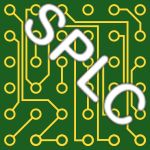 SPLC-2015-BergerLRGS0CC #industrial #product line #what
SPLC-2015-BergerLRGS0CC #industrial #product line #what- What is a feature?: a qualitative study of features in industrial software product lines (TB, DL, JR, PG, AS, MB, MC, KC), pp. 16–25.
 CSL-2015-Klein0 #game studies #lookahead #what
CSL-2015-Klein0 #game studies #lookahead #what- What are Strategies in Delay Games? Borel Determinacy for Games with Lookahead (FK, MZ), pp. 519–533.
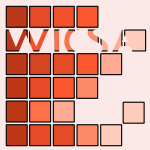 WICSA-2014-CostaPDM #architecture #question #rest #what
WICSA-2014-CostaPDM #architecture #question #rest #what- Evaluating a Representational State Transfer (REST) Architecture: What is the Impact of REST in My Architecture? (BC, PFP, FCD, PM), pp. 105–114.
 DocEng-2014-FranzeMW #what
DocEng-2014-FranzeMW #what- What academics want when reading digitally (JF, KM, MW), pp. 199–202.
 DocEng-2014-HailpernVD #how #named #what
DocEng-2014-HailpernVD #how #named #what- Pagination: it’s what you say, not how long it takes to say it (JMH, NDV, MD), pp. 147–156.
 PODS-2014-Libkin #how #semistructured data #what
PODS-2014-Libkin #how #semistructured data #what- Incomplete data: what went wrong, and how to fix it (LL), pp. 1–13.
 VLDB-2014-MottinLVP #query #what
VLDB-2014-MottinLVP #query #what- Exemplar Queries: Give me an Example of What You Need (DM, ML, YV, TP), pp. 365–376.
 ITiCSE-2014-EricssonW #mining #what
ITiCSE-2014-EricssonW #mining #what- Mining job ads to find what skills are sought after from an employers’ perspective on IT graduates (ME, AW), p. 354.
 ICPC-2014-StefikHMAYS #design #empirical #programming language #what
ICPC-2014-StefikHMAYS #design #empirical #programming language #what- What is the Foundation of Evidence of Human Factors Decisions in Language Design? An Empirical Study on Programming Language Workshops (AS, SH, MM, AAA, SKY, SS), pp. 223–231.
 ICSME-2014-KononenkoZG #compilation #question #what
ICSME-2014-KononenkoZG #compilation #question #what- Compiling Clones: What Happens? (OK, CZ, MWG), pp. 481–485.
 PLDI-2014-Palem #question #what
PLDI-2014-Palem #question #what- What exactly is inexact computation good for? (KVP), p. 1.
 CHI-2014-AhmaniemiKH #gesture #question #what
CHI-2014-AhmaniemiKH #gesture #question #what- What is a device bend gesture really good for? (TTA, JK, MH), pp. 3503–3512.
 CHI-2014-BensonK #how #web #what #why
CHI-2014-BensonK #how #web #what #why- End-users publishing structured information on the web: an observational study of what, why, and how (EB, DRK), pp. 1265–1274.
 CHI-2014-BrumbyCCF #behaviour #how #question #visual notation #what
CHI-2014-BrumbyCCF #behaviour #how #question #visual notation #what- How does knowing what you are looking for change visual search behavior? (DPB, ALC, JC, BF), pp. 3895–3898.
 CHI-2014-Gilbert #performance #social #what
CHI-2014-Gilbert #performance #social #what- What if we ask a different question?: social inferences create product ratings faster (EG), pp. 2759–2762.
 CHI-2014-HsiehCMN #comprehension #what
CHI-2014-HsiehCMN #comprehension #what- You read what you value: understanding personal values and reading interests (GH, JC, JM, JN), pp. 983–986.
 CHI-2014-MasseyTTW #file system #question #what
CHI-2014-MasseyTTW #file system #question #what- PIM and personality: what do our personal file systems say about us? (CM, ST, CT, SW), pp. 3695–3704.
 CHI-2014-MatthewsCWPZBS #community #enterprise #online #question #what
CHI-2014-MatthewsCWPZBS #community #enterprise #online #question #what- Goals and perceived success of online enterprise communities: what is important to leaders & members? (TM, JC, SW, AP, HZ, HB, BAS), pp. 291–300.
 CHI-2014-NorvalAH #network #recommendation #social #what
CHI-2014-NorvalAH #network #recommendation #social #what- What’s on your mind?: investigating recommendations for inclusive social networking and older adults (CN, JLA, VLH), pp. 3923–3932.
 CHI-2014-TewariC #game studies #what
CHI-2014-TewariC #game studies #what- What did spot hide?: a question-answering game for preschool children (AT, JC), pp. 1807–1816.
 CSCW-2014-ForteDMA #network #online #social #student #what
CSCW-2014-ForteDMA #network #online #social #student #what- What do teens ask their online social networks?: social search practices among high school students (AF, MD, RMM, DEA), pp. 28–37.
 CSCW-2014-OHaraMHRM
CSCW-2014-OHaraMHRM- Everyday dwelling with WhatsApp (KO, MM, RHRH, SR, JM), pp. 1131–1143.
 CSCW-2014-QuerciaOC #question #what
CSCW-2014-QuerciaOC #question #what- Aesthetic capital: what makes london look beautiful, quiet, and happy? (DQ, NKO, HC), pp. 945–955.
 DUXU-DI-2014-Hellweg #development #education #future of #game studies #what
DUXU-DI-2014-Hellweg #development #education #future of #game studies #what- Wanting the Unwanted — What Games Can Teach Us about the Future of Software Development (DH), pp. 711–719.
 DUXU-DI-2014-ShafiqICRAAR #analysis #case study #learning #smarttech #usability #user satisfaction #what
DUXU-DI-2014-ShafiqICRAAR #analysis #case study #learning #smarttech #usability #user satisfaction #what- To What Extent System Usability Effects User Satisfaction: A Case Study of Smart Phone Features Analysis for Learning of Novice (MS, MI, JGC, ZR, MA, WA, SR), pp. 346–357.
 DUXU-ELAS-2014-DysonJ #interface #question #what
DUXU-ELAS-2014-DysonJ #interface #question #what- Examining the Interfaces to E-journal Articles: What Do Users Expect? (MCD, EMJ), pp. 164–172.
 HCI-AIMT-2014-RouxelPAC #gesture #what
HCI-AIMT-2014-RouxelPAC #gesture #what- What You Draw Is What You Search: The Analog Gesture (BR, FP, JYA, GC), pp. 139–147.
 HCI-AS-2014-KimC #what
HCI-AS-2014-KimC #what- The Gap between What a Service Provider Shows Off and What Users Really Watch (DK, JC), pp. 710–720.
 HCI-TMT-2014-SiliMMGP #automation #generative #question #user interface #what
HCI-TMT-2014-SiliMMGP #automation #generative #question #user interface #what- A Practical Solution for the Automatic Generation of User Interfaces — What Are the Benefits of a Practical Solution for the Automatic Generation of User Interfaces? (MS, CCM, MM, MG, MP), pp. 445–456.
 LCT-TRE-2014-LoureiroSBR #collaboration #question #what
LCT-TRE-2014-LoureiroSBR #collaboration #question #what- Collaboration, Knowledge Sharing and Digital Environments: What about Argumentation and Questioning Skills? (MJ(L, FNdS, AB, AR), pp. 440–449.
 SCSM-2014-SobierajK #communication #what
SCSM-2014-SobierajK #communication #what- What Is Beautiful in Cyberspace? Communication with Attractive Avatars (SS, NCK), pp. 125–136.
 SCSM-2014-TurnerH #network #social #what
SCSM-2014-TurnerH #network #social #what- What Does Your Profile Picture Say About You? The Accuracy of Thin-Slice Personality Judgments from Social Networking Sites Made at Zero-Acquaintance (MT, NH), pp. 506–516.
 CAiSE-2014-EpureHDB #flexibility #mining #process #what
CAiSE-2014-EpureHDB #flexibility #mining #process #what- What Shall I Do Next? — Intention Mining for Flexible Process Enactment (EVE, CH, RD, SB), pp. 473–487.
 ICEIS-v1-2014-KahkonenMS #enterprise #integration #scalability #what
ICEIS-v1-2014-KahkonenMS #enterprise #integration #scalability #what- What Are the Factors Affecting ERP System Integration? — Observations from a Large Manufacturing Enterprise (TK, AM, KS), pp. 5–17.
 CIKM-2014-Deolalikar14b #clustering #documentation #what
CIKM-2014-Deolalikar14b #clustering #documentation #what- What is the Shape of a Cluster?: Structural Comparisons of Document Clusters (VD), pp. 1927–1930.
 CIKM-2014-LiWH #twitter #what
CIKM-2014-LiWH #twitter #what- What a Nasty Day: Exploring Mood-Weather Relationship from Twitter (JL, XW, EHH), pp. 1309–1318.
 CIKM-2014-QuattroneNKT #what
CIKM-2014-QuattroneNKT #what- Tell Me What You Want and I Will Tell Others Where You Have Been (AQ, EN, LK, ET), pp. 1783–1786.
 ICPR-2014-Al-HalahRS #learning #metric #semantics #similarity #what
ICPR-2014-Al-HalahRS #learning #metric #semantics #similarity #what- What to Transfer? High-Level Semantics in Transfer Metric Learning for Action Similarity (ZAH, LR, RS), pp. 2775–2780.
 KDD-2014-ZhaoGHJWL #microblog #recommendation #what
KDD-2014-ZhaoGHJWL #microblog #recommendation #what- We know what you want to buy: a demographic-based system for product recommendation on microblogs (WXZ, YG, YH, HJ, YW, XL), pp. 1935–1944.
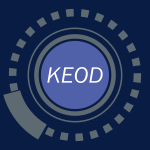 KEOD-2014-Aalst #mining #people #process #what
KEOD-2014-Aalst #mining #people #process #what- No Knowledge Without Processes — Process Mining as a Tool to Find Out What People and Organizations Really Do (WMPvdA), pp. 1–11.
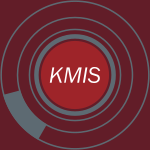 KMIS-2014-ToureMM14a #information management #modelling #towards #what
KMIS-2014-ToureMM14a #information management #modelling #towards #what- What If We Considered Awareness for Sustainable Knowledge Management? Towards a Model for Self Regulated Knowledge Management Systems Based on Acceptance Models of Technologies and Awareness (CET, CM, JCM), pp. 413–418.
 RecSys-2014-LiuWW #what
RecSys-2014-LiuWW #what- Tell me where to go and what to do next, but do not bother me (HL, GW, GW), pp. 375–376.
 SIGIR-2014-NiuLGCG #data analysis #learning #rank #robust #what
SIGIR-2014-NiuLGCG #data analysis #learning #rank #robust #what- What makes data robust: a data analysis in learning to rank (SN, YL, JG, XC, XG), pp. 1191–1194.
 MoDELS-2014-ReggioLR #bibliography #uml #what
MoDELS-2014-ReggioLR #bibliography #uml #what- Who Knows/Uses What of the UML: A Personal Opinion Survey (GR, ML, FR), pp. 149–165.
 MoDELS-2014-ReggioLR #bibliography #uml #what
MoDELS-2014-ReggioLR #bibliography #uml #what- Who Knows/Uses What of the UML: A Personal Opinion Survey (GR, ML, FR), pp. 149–165.
 SAC-2014-VasconcelosAG #code review #predict #what
SAC-2014-VasconcelosAG #code review #predict #what- What makes your opinion popular?: predicting the popularity of micro-reviews in foursquare (MAV, JMA, MAG), pp. 598–603.
 FSE-2014-Jorgensen #question #re-engineering #what
FSE-2014-Jorgensen #question #re-engineering #what- Ten years with evidence-based software engineering. What is it? Has it had any impact? What’s next? (MJ), p. 3.
 SPLC-2014-Hubaux #product line #research #what
SPLC-2014-Hubaux #product line #research #what- What research in software product line engineering is not solving in configuration (AH), p. 19.
 PPoPP-2014-Rubin #compilation #question #research #what
PPoPP-2014-Rubin #compilation #question #research #what- Heterogeneous computing: what does it mean for compiler research? (NR), pp. 315–316.
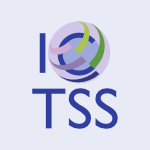 ICTSS-2014-Deak #bibliography #testing #what
ICTSS-2014-Deak #bibliography #testing #what- What Characterizes a Good Software Tester? — A Survey in Four Norwegian Companies (AD), pp. 161–172.
 DATE-2013-Vigouroux #design #question #what
DATE-2013-Vigouroux #design #question #what- What designs for coming supercomputers? (XV), p. 469.
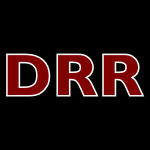 DRR-2013-Smith #what
DRR-2013-Smith #what- History of the Tesseract OCR engine: what worked and what didn’t (RWS).
 HT-2013-GuerreiroG #exclamation #quote #what
HT-2013-GuerreiroG #exclamation #quote #what- “Tell me what I want to know!”: the effect of relationship closeness on the relevance of profile attributes (JG, DG), pp. 230–235.
 ICDAR-2013-Newell #identification #question #what
ICDAR-2013-Newell #identification #question #what- What Should We Be Comparing for Writer Identification? (AJN), pp. 418–422.
 SIGMOD-2013-MullerKLM #named #what
SIGMOD-2013-MullerKLM #named #what- WOW: what the world of (data) warehousing can learn from the World of Warcraft (RM, TK, GML, JM), pp. 961–964.
 VLDB-2013-ChirkovaY #question #what
VLDB-2013-ChirkovaY #question #what- Big and Useful: What’s in the Data for Me? (RC, JY), pp. 1390–1391.
 CSEET-2013-ChimalakondaN #adaptation #education #learning #personalisation #re-engineering #what
CSEET-2013-ChimalakondaN #adaptation #education #learning #personalisation #re-engineering #what- What makes it hard to teach software engineering to end users? some directions from adaptive and personalized learning (SC, KVN), pp. 324–328.
 CSEET-2013-Vallino #question #re-engineering #student #what
CSEET-2013-Vallino #question #re-engineering #student #what- What should students learn in their first (and often only) software engineering course? (JV), pp. 335–337.
 CSMR-2013-AnicheOG #case study #industrial #open source #quality #testing #what
CSMR-2013-AnicheOG #case study #industrial #open source #quality #testing #what- What Do the Asserts in a Unit Test Tell Us about Code Quality? A Study on Open Source and Industrial Projects (MFA, GAO, MAG), pp. 111–120.
 MSR-2013-AllamanisS #stack overflow #topic #what #why
MSR-2013-AllamanisS #stack overflow #topic #what #why- Why, when, and what: analyzing stack overflow questions by topic, type, and code (MA, CAS), pp. 53–56.
 MSR-2013-HamasakiKYCFI #bibliography #code review #dataset #repository #what
MSR-2013-HamasakiKYCFI #bibliography #code review #dataset #repository #what- Who does what during a code review? datasets of OSS peer review repositories (KH, RGK, NY, AECC, KF, HI), pp. 49–52.
 MSR-2013-Murphy #development #what
MSR-2013-Murphy #development #what- What is software development productivity, anyway? (keynote) (GCM), p. 1.
 MSR-2013-NadiDTHL #how #linux #question #variability #what
MSR-2013-NadiDTHL #how #linux #question #variability #what- Linux variability anomalies: what causes them and how do they get fixed? (SN, CD, RT, RCH, DL), pp. 111–120.
 WCRE-2013-LiXPZ #developer #how #question #what
WCRE-2013-LiXPZ #developer #how #question #what- What help do developers seek, when and how? (HL, ZX, XP, WZ), pp. 142–151.
 CHI-2013-BardzellB #design #question #what
CHI-2013-BardzellB #design #question #what- What is “critical” about critical design? (JB, SB), pp. 3297–3306.
 CHI-2013-GrahamSPBD #architecture #distributed #game studies #what
CHI-2013-GrahamSPBD #architecture #distributed #game studies #what- Villains, architects and micro-managers: what tabula rasa teaches us about game orchestration (TCNG, IS, MP, QB, RD), pp. 705–714.
 CHI-2013-JacobsBSGPG #what
CHI-2013-JacobsBSGPG #what- A conversation between trees: what data feels like in the forest (RJ, SB, MS, MG, DP, GG), pp. 129–138.
 CHI-2013-KhovanskayaBCVG #approach #design #quote #what
CHI-2013-KhovanskayaBCVG #approach #design #quote #what- “Everybody knows what you’re doing”: a critical design approach to personal informatics (VDK, EPSB, DC, SV, GG), pp. 3403–3412.
 CHI-2013-KukkaOKGO #interactive #visual notation #what
CHI-2013-KukkaOKGO #interactive #visual notation #what- What makes you click: exploring visual signals to entice interaction on public displays (HK, HO, VK, JG, TO), pp. 1699–1708.
 CHI-2013-PaneelsOBC #exclamation #usability #what
CHI-2013-PaneelsOBC #exclamation #usability #what- Listen to it yourself!: evaluating usability of what’s around me? for the blind (SAP, AO, JRB, JRC), pp. 2107–2116.
 CHI-2013-ParkerMGACJM #health #online #what
CHI-2013-ParkerMGACJM #health #online #what- I am what i eat: identity & critical thinking in an online health forum for kids (AGP, IM, CG, VA, WC, VJ, EDM), pp. 2437–2446.
 CHI-2013-PiorkowskiFKBSBJ
CHI-2013-PiorkowskiFKBSBJ- The whats and hows of programmers’ foraging diets (DP, SDF, IK, MMB, CS, RKEB, JJ), pp. 3063–3072.
 CSCW-2013-HarperLTBGSOW #question #what
CSCW-2013-HarperLTBGSOW #question #what- What is a file? (RHRH, SEL, ET, RB, PG, GS, WO, EW), pp. 1125–1136.
 CSCW-2013-HemphillOS #question #twitter #what
CSCW-2013-HemphillOS #question #twitter #what- What’s congress doing on twitter? (LH, JO, MS), pp. 877–886.
 CSCW-2013-PageKK #social #social media #web #what
CSCW-2013-PageKK #social #social media #web #what- What a tangled web we weave: lying backfires in location-sharing social media (XP, BPK, AK), pp. 273–284.
 CSCW-2013-PanLCL #process #social #what
CSCW-2013-PanLCL #process #social #what- To answer or not: what non-qa social activities can tell (YP, LL, CYC, QL), pp. 1253–1263.
 DHM-SET-2013-SaparovaBLKMY #health #how #information management #problem #question #usability #what
DHM-SET-2013-SaparovaBLKMY #health #how #information management #problem #question #usability #what- Usability Problems in Patient- and Clinician-Oriented Health Information Systems: What Are They and How Do They Differ? (DS, JB, YL, FK, YM, BY), pp. 276–285.
 DUXU-PMT-2013-Matthiessen #design #education #experience #industrial #interactive #what
DUXU-PMT-2013-Matthiessen #design #education #experience #industrial #interactive #what- Interactive Design and the Human Experience: What Can Industrial Design Teach Us (NM), pp. 100–106.
 HIMI-HSM-2013-CastronovoMM #interface #what
HIMI-HSM-2013-CastronovoMM #interface #what- What, Where, and When? Intelligent Presentation Management for Automotive Human Machine Interfaces and Its Application (SC, AM, CAM), pp. 460–469.
 HIMI-HSM-2013-MoodyW #mobile #security #what
HIMI-HSM-2013-MoodyW #mobile #security #what- Security, But at What Cost? — An Examination of Security Notifications within a Mobile Application (GM, DW), pp. 391–399.
 OCSC-2013-SaY #motivation #people #social #what
OCSC-2013-SaY #motivation #people #social #what- What Motivates People Use Social Tagging (NS, XY), pp. 86–93.
 ICEIS-J-2013-KahkonenMS #enterprise #integration #question #what
ICEIS-J-2013-KahkonenMS #enterprise #integration #question #what- What Do We Know About ERP Integration? (TK, AM, KS), pp. 51–67.
 ICEIS-v3-2013-BuchdidB #human-computer #what #word
ICEIS-v3-2013-BuchdidB #human-computer #what #word- HCI in Context — What the Words Reveal about It (SBB, MCCB), pp. 134–142.
 CIKM-2013-KamathC #learning #predict #what
CIKM-2013-KamathC #learning #predict #what- Spatio-temporal meme prediction: learning what hashtags will be popular where (KYK, JC), pp. 1341–1350.
 CIKM-2013-MoffatTS #effectiveness #metric #modelling #what
CIKM-2013-MoffatTS #effectiveness #metric #modelling #what- Users versus models: what observation tells us about effectiveness metrics (AM, PT, FS), pp. 659–668.
 KDD-2013-YuanCMSM #topic #twitter #what
KDD-2013-YuanCMSM #topic #twitter #what- Who, where, when and what: discover spatio-temporal topics for twitter users (QY, GC, ZM, AS, NMT), pp. 605–613.
 KDIR-KMIS-2013-GirdauskieneS #what
KDIR-KMIS-2013-GirdauskieneS #what- Assessing Environmental Dimensions for Creativity and Knowledge Creation — What Features of Task, Group and Time do make an Impact on Creativity and Knowledge Creation in a Creative Organization (LG, AS), pp. 532–538.
 RecSys-2013-BabasCT #personalisation #recommendation #what
RecSys-2013-BabasCT #personalisation #recommendation #what- You are what you consume: a bayesian method for personalized recommendations (KB, GC, ET), pp. 221–228.
 RecSys-2013-PeraN #personalisation #recommendation #what
RecSys-2013-PeraN #personalisation #recommendation #what- What to read next?: making personalized book recommendations for K-12 users (MSP, YKN), pp. 113–120.
 SEKE-2013-BurnayJF #matter #problem #requirements #what #why
SEKE-2013-BurnayJF #matter #problem #requirements #what #why- Context Factors: What they are and why they matter for Requirements Problems (CB, IJ, SF), pp. 30–35.
 SIGIR-2013-McCreadieMO #what
SIGIR-2013-McCreadieMO #what- News vertical search: when and what to display to users (RM, CM, IO), pp. 253–262.
 SIGIR-2013-Rodriguez-VaamondeTF #documentation #image #using #web #what
SIGIR-2013-Rodriguez-VaamondeTF #documentation #image #using #web #what- What can pictures tell us about web pages?: improving document search using images (SRV, LT, AWF), pp. 849–852.
 ECOOP-2013-TemperoYN #inheritance #java #what
ECOOP-2013-TemperoYN #inheritance #java #what- What Programmers Do with Inheritance in Java (EDT, HYY, JN), pp. 577–601.
 Onward-2013-RossoJ #analysis #concept #design #git #what
Onward-2013-RossoJ #analysis #concept #design #git #what- What’s wrong with git?: a conceptual design analysis (SPDR, DJ), pp. 37–52.
 ER-BR-2013-Finkelstein #re-engineering #what
ER-BR-2013-Finkelstein #re-engineering #what- The Next 10 Years: the shape of software to come and what if means for software engineering (AF).
 REFSQ-2013-DanevaBH #architecture #case study #experience #quality #question #requirements #what
REFSQ-2013-DanevaBH #architecture #case study #experience #quality #question #requirements #what- Software Architects’ Experiences of Quality Requirements: What We Know and What We Do Not Know? (MD, LB, AH), pp. 1–17.
 ICSE-2013-PolikarpovaF0WM #question #specification #what
ICSE-2013-PolikarpovaF0WM #question #specification #what- What good are strong specifications? (NP, CAF, YP, YW, BM), pp. 262–271.
 PLEASE-2013-ChimalakondaN #education #product line #question #what
PLEASE-2013-ChimalakondaN #education #product line #question #what- What makes it hard to apply software product lines to educational technologies? (SC, KVN), pp. 17–20.
 SOSP-2013-ElphinstoneH #kernel #question #what
SOSP-2013-ElphinstoneH #kernel #question #what- From L3 to seL4 what have we learnt in 20 years of L4 microkernels? (KE, GH), pp. 133–150.
 CSL-2013-ChatterjeeCT #decidability #markov #process #what
CSL-2013-ChatterjeeCT #decidability #markov #process #what- What is Decidable about Partially Observable Markov Decision Processes with ω-Regular Objectives (KC, MC, MT), pp. 165–180.
 ASE-2012-ThungLLJRD #debugging #detection #empirical #fault #tool support #what
ASE-2012-ThungLLJRD #debugging #detection #empirical #fault #tool support #what- To what extent could we detect field defects? an empirical study of false negatives in static bug finding tools (FT, L, DL, LJ, FR, PTD), pp. 50–59.
 CASE-2012-HoNNH #question #what
CASE-2012-HoNNH #question #what- What can be inferred from a tactile arrayed sensor in autonomous in-hand manipulation? (VAH, TN, AN, SH), pp. 461–468.
 DAC-2012-PalemA #exclamation #what
DAC-2012-PalemA #exclamation #what- What to do about the end of Moore’s law, probably! (KVP, LA), pp. 924–929.
 PODS-2012-Chaudhuri #big data #data transformation #research #what
PODS-2012-Chaudhuri #big data #data transformation #research #what- What next?: a half-dozen data management research goals for big data and the cloud (SC), pp. 1–4.
 VLDB-2012-DasTADY #analysis #framework #what
VLDB-2012-DasTADY #analysis #framework #what- Who Tags What? An Analysis Framework (MD, ST, SAY, GD, CY), pp. 1567–1578.
 ITiCSE-2012-FidotenS #bibliography #what
ITiCSE-2012-FidotenS #bibliography #what- What do computer scientists do?: a survey of CS and non-CS liberal arts faculty (HF, JS), pp. 279–284.
 ITiCSE-2012-SharonK #student #what
ITiCSE-2012-SharonK #student #what- Grade inflation, what students value, and the necessity of suffering (TS, PK), pp. 116–121.
 ESOP-2012-AtigBBM #decidability #memory management #modelling #question #what
ESOP-2012-AtigBBM #decidability #memory management #modelling #question #what- What’s Decidable about Weak Memory Models? (MFA, AB, SB, MM), pp. 26–46.
 ICSM-2012-NasehiSMB #case study #programming #stack overflow #what
ICSM-2012-NasehiSMB #case study #programming #stack overflow #what- What makes a good code example?: A study of programming Q&A in StackOverflow (SMN, JS, FM, CB), pp. 25–34.
 ICSM-2012-ZhangPXZ #developer #what #why
ICSM-2012-ZhangPXZ #developer #what #why- Cloning practices: Why developers clone and what can be changed (GZ, XP, ZX, WZ), pp. 285–294.
 ICSM-2012-ZouG #algorithm #automation #case study #detection #industrial #what #why
ICSM-2012-ZouG #algorithm #automation #case study #detection #industrial #what #why- An industrial case study of Coman’s automated task detection algorithm: What Worked, What Didn’t, and Why (LZ, MWG), pp. 6–14.
 MSR-2012-BirdN #development #distributed #open source #scalability #what
MSR-2012-BirdN #development #distributed #open source #scalability #what- Who? Where? What? Examining distributed development in two large open source projects (CB, NN), pp. 237–246.
 MSR-2012-TianALLL #community #microblog #question #re-engineering #what
MSR-2012-TianALLL #community #microblog #question #re-engineering #what- What does software engineering community microblog about? (YT, PA, INL, DL, EPL), pp. 247–250.
 SCAM-2012-VinjuG #complexity #control flow #metric #what
SCAM-2012-VinjuG #complexity #control flow #metric #what- What Does Control Flow Really Look Like? Eyeballing the Cyclomatic Complexity Metric (JJV, MWG), pp. 154–163.
 WCRE-2012-CleveH #question #what
WCRE-2012-CleveH #question #what- What Do Foreign Keys Actually Mean? (AC, JLH), pp. 299–307.
 FM-2012-Wassyng #question #what
FM-2012-Wassyng #question #what- Who Are We, and What Are We Doing Here? (AW), pp. 7–9.
 CHI-2012-FitchettC #named #predict #what
CHI-2012-FitchettC #named #predict #what- AccessRank: predicting what users will do next (SF, AC), pp. 2239–2242.
 CHI-2012-Gaver #design #question #research #what
CHI-2012-Gaver #design #question #research #what- What should we expect from research through design? (WWG), pp. 937–946.
 CHI-2012-KripleanTMBK #web #what
CHI-2012-KripleanTMBK #web #what- Is this what you meant?: promoting listening on the web with reflect (TK, MT, JTM, AB, AK), pp. 1559–1568.
 CHI-2012-PetrieP #comparison #interactive #problem #usability #what
CHI-2012-PetrieP #comparison #interactive #problem #usability #what- What do users really care about?: a comparison of usability problems found by users and experts on highly interactive websites (HP, CP), pp. 2107–2116.
 CSCW-2012-Baba #question #what
CSCW-2012-Baba #question #what- Science, technology and society revisited: what is happening to anthropology and ethnography? (MLB), pp. 5–6.
 CSCW-2012-FugelstadDMKMTS #community #online #predict #what
CSCW-2012-FugelstadDMKMTS #community #online #predict #what- What makes users rate (share, tag, edit...)?: predicting patterns of participation in online communities (PF, PD, JFM, JK, CAM, LGT, MS), pp. 969–978.
 CSCW-2012-Nagar #community #online #process #what
CSCW-2012-Nagar #community #online #process #what- What do you think?: the structuring of an online community as a collective-sensemaking process (YN), pp. 393–402.
 CSCW-2012-XuB #case study #community #interactive #online #scalability #what
CSCW-2012-XuB #case study #community #interactive #online #scalability #what- What do you think?: a case study of benefit, expectation, and interaction in a large online critique community (AX, BPB), pp. 295–304.
 CIKM-2012-BiyaniCSM #exclamation #online #thread #what
CIKM-2012-BiyaniCSM #exclamation #online #thread #what- I want what i need!: analyzing subjectivity of online forum threads (PB, CC, AS, PM), pp. 2495–2498.
 CIKM-2012-Diaz-AvilesDGSN #online #recommendation #topic #twitter #what
CIKM-2012-Diaz-AvilesDGSN #online #recommendation #topic #twitter #what- What is happening right now ... that interests me?: online topic discovery and recommendation in twitter (EDA, LD, ZG, LST, WN), pp. 1592–1596.
 CIKM-2012-MeccaPRS #data transformation #question #what
CIKM-2012-MeccaPRS #data transformation #question #what- What is the IQ of your data transformation system? (GM, PP, SR, DS), pp. 872–881.
 ICPR-2012-Gao #what
ICPR-2012-Gao #what- What entropy tells about man-made structures (JG), pp. 250–253.
 RecSys-2012-Lamere #question #what
RecSys-2012-Lamere #question #what- I’ve got 10 million songs in my pocket: now what? (PL), pp. 207–208.
 SIGIR-2012-HongLYZZ #automation #novel #what
SIGIR-2012-HongLYZZ #automation #novel #what- What reviews are satisfactory: novel features for automatic helpfulness voting (YH, JL, JMY, QZ, GZ), pp. 495–504.
 SIGIR-2012-Sakai #evaluation #information retrieval #mobile #towards #what
SIGIR-2012-Sakai #evaluation #information retrieval #mobile #towards #what- Towards zero-click mobile IR evaluation: knowing what and knowing when (TS), pp. 1157–1158.
 MoDELS-2012-ArandaDB #modelling #question #what
MoDELS-2012-ArandaDB #modelling #question #what- Transition to Model-Driven Engineering — What Is Revolutionary, What Remains the Same? (JA, DD, AB), pp. 692–708.
 MoDELS-2012-ArandaDB #modelling #question #what
MoDELS-2012-ArandaDB #modelling #question #what- Transition to Model-Driven Engineering — What Is Revolutionary, What Remains the Same? (JA, DD, AB), pp. 692–708.
 RE-2012-GrossD #exclamation #requirements #specification #what
RE-2012-GrossD #exclamation #requirements #specification #what- What you need is what you get!: The vision of view-based requirements specifications (AG, JD), pp. 171–180.
 RE-2012-MaglyasNS #question #what
RE-2012-MaglyasNS #question #what- What do practitioners mean when they talk about product management? (AM, UN, KS), pp. 261–266.
 SAC-2012-Zaytsev #bnf #what
SAC-2012-Zaytsev #bnf #what- BNF was here: what have we done about the unnecessary diversity of notation for syntactic definitions (VZ), pp. 1910–1915.
 FSE-2012-BirdZ #analysis #branch
FSE-2012-BirdZ #analysis #branch- Assessing the value of branches with what-if analysis (CB, TZ), p. 45.
 ICSE-2012-Braithwaite #how #industrial #programming #what
ICSE-2012-Braithwaite #how #industrial #programming #what- Software as an engineering material: How the affordances of programming have changed and what to do about it (Invited industrial talk) (KB), p. 998.
 ICSE-2012-BudgenDBH #education #question #what
ICSE-2012-BudgenDBH #education #question #what- What scope is there for adopting evidence-informed teaching in SE? (DB, SD, PB, NH), pp. 1205–1214.
 ICSE-2012-Wolff #architecture #industrial #what
ICSE-2012-Wolff #architecture #industrial #what- Software architecture — What does it mean in industry? (Invited industrial talk) (EW), p. 999.
 ICSE-2012-ZhouM #community #what
ICSE-2012-ZhouM #community #what- What make long term contributors: Willingness and opportunity in OSS community (MZ, AM), pp. 518–528.
 ICST-2012-ChenLYS #question #testing #user interface #what
ICST-2012-ChenLYS #question #testing #user interface #what- When a GUI Regression Test Failed, What Should be Blamed? (JC, ML, KY, BS), pp. 467–470.
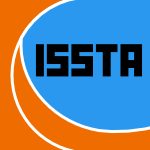 ISSTA-2012-CoughlinCDS #source code #what
ISSTA-2012-CoughlinCDS #source code #what- Measuring enforcement windows with symbolic trace interpretation: what well-behaved programs say (DC, BYEC, AD, JGS), pp. 276–286.
 LICS-2012-Levin #internet #what
LICS-2012-Levin #internet #what- Turing’s Password: What Internet Cannot Leak (LAL), p. 11.
 VLDB-2011-HaasMST #modelling
VLDB-2011-HaasMST #modelling- Data is Dead... Without What-If Models (PJH, PPM, PGS, WCT), pp. 1486–1489.
 VLDB-2011-HerodotouB #cost analysis #optimisation #pipes and filters #profiling #source code
VLDB-2011-HerodotouB #cost analysis #optimisation #pipes and filters #profiling #source code- Profiling, What-if Analysis, and Cost-based Optimization of MapReduce Programs (HH, SB), pp. 1111–1122.
 VLDB-2011-IdreosMKG #adaptation #in memory #what
VLDB-2011-IdreosMKG #adaptation #in memory #what- Merging What’s Cracked, Cracking What’s Merged: Adaptive Indexing in Main-Memory Column-Stores (SI, SM, HAK, GG), pp. 585–597.
 ITiCSE-2011-AmbrosioM #education #matter #what
ITiCSE-2011-AmbrosioM #education #matter #what- What matters most when teaching CS1 (APA, SWM), p. 385.
 ITiCSE-2011-Hu #what
ITiCSE-2011-Hu #what- Computational thinking: what it might mean and what we might do about it (CH), pp. 223–227.
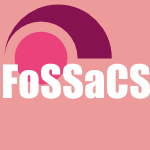 FoSSaCS-2011-AxelsenG #question #source code #what
FoSSaCS-2011-AxelsenG #question #source code #what- What Do Reversible Programs Compute? (HBA, RG), pp. 42–56.
 ICSM-2011-Kemmerer #how #what
ICSM-2011-Kemmerer #how #what- How to steal a botnet and what can happen when you do (RAK), p. 1.
 MSR-2011-BernardiSZDP #question #topic #what
MSR-2011-BernardiSZDP #question #topic #what- What topics do Firefox and Chrome contributors discuss? (MLB, CS, QZ, DD, MDP), pp. 234–237.
 MSR-2011-Whitehead #data mining #game studies #mining #what
MSR-2011-Whitehead #data mining #game studies #mining #what- Fantasy, farms, and freemium: what game data mining teaches us about retention, conversion, and virality (keynote abstract) (JW), p. 1.
 SCAM-2011-SfayhiS #analysis #interactive #visualisation #what
SCAM-2011-SfayhiS #analysis #interactive #visualisation #what- What You See is What You Asked for: An Effort-Based Transformation of Code Analysis Tasks into Interactive Visualization Scenarios (AS, HAS), pp. 195–203.
 CHI-2011-JunuzovicIHZTB #bibliography #multimodal #using #what
CHI-2011-JunuzovicIHZTB #bibliography #multimodal #using #what- What did i miss?: in-meeting review using multimodal accelerated instant replay (air) conferencing (SJ, KI, RH, ZZ, JCT, CB), pp. 513–522.
 CHI-2011-MaratheS #question #what
CHI-2011-MaratheS #question #what- What drives customization?: control or identity? (SM, SSS), pp. 781–790.
 CHI-2011-ZadehBKC #challenge #design #what
CHI-2011-ZadehBKC #challenge #design #what- What’s in a move?: normal disruption and a design challenge (RZ, ADB, SBK, JNC), pp. 2897–2906.
 CSCW-2011-BalakrishnanKCZ #integration #matter #research #what #why
CSCW-2011-BalakrishnanKCZ #integration #matter #research #what #why- Research team integration: what it is and why it matters (ADB, SBK, JNC, RZ), pp. 523–532.
 CSCW-2011-GergleC #collaboration #eye tracking #mobile #using #what
CSCW-2011-GergleC #collaboration #eye tracking #mobile #using #what- See what I’m saying?: using Dyadic Mobile Eye tracking to study collaborative reference (DG, ATC), pp. 435–444.
 CSCW-2011-MinamikawaY #estimation #what
CSCW-2011-MinamikawaY #estimation #what- Blog tells what kind of personality you have: egogram estimation from Japanese weblog (AM, HY), pp. 217–220.
 DHM-2011-WelkePRJ #analysis #how #modelling #validation #what
DHM-2011-WelkePRJ #analysis #how #modelling #validation #what- What Is Human? How the Analysis of Brain Dynamics Can Help to Improve and Validate Driver Models (SW, JP, MR, TJ), pp. 513–522.
 DUXU-v1-2011-BedekarK #research #what
DUXU-v1-2011-BedekarK #research #what- What Sustainability Brings to the Research Table (NB, SLK), pp. 363–367.
 DUXU-v1-2011-PrabhalaLG #people #question #what #word
DUXU-v1-2011-PrabhalaLG #people #question #what #word- Ethnography, Ethnography or Ethnography? What Happens When the Same Word Means Different Things to Different People? (SP, DL, SG), pp. 102–110.
 DUXU-v2-2011-Zeller #design #what
DUXU-v2-2011-Zeller #design #what- What You See Is What You Don’t Get: Addressing Implications of Information Technology through Design Fiction (LZ), pp. 329–336.
 HCI-ITE-2011-UllahLORM #case study #collaboration #distributed #interactive #what
HCI-ITE-2011-UllahLORM #case study #collaboration #distributed #interactive #what- What You Feel Is What I Do: A Study of Dynamic Haptic Interaction in Distributed Collaborative Virtual Environment (SU, XL, SO, PR, MM), pp. 140–147.
 HCI-MIIE-2011-WangZYZSP #what
HCI-MIIE-2011-WangZYZSP #what- Believe What You Hear, Not What You See — Vision Interferes with Auditory Route Guidance in Complex Environment (YW, HZ, LY, KZ, XS, TP), pp. 346–354.
 HCI-UA-2011-EverardJM #learning #question #student #what
HCI-UA-2011-EverardJM #learning #question #student #what- Are MIS Students Learning What They Need to Land a Job? (AE, BMJ, SM), pp. 235–236.
 HCI-UA-2011-FangZ #game studies #question #what
HCI-UA-2011-FangZ #game studies #question #what- Extraversion and Computer Game Play: Who Plays What Games? (XF, MZ), pp. 659–667.
 HCI-UA-2011-Furukawa #design #injection #question #what
HCI-UA-2011-Furukawa #design #injection #question #what- What Label Design of Ampule for Injection, Do You Want? (HF), pp. 159–166.
 HIMI-v2-2011-ChellaliB #locality #question #what
HIMI-v2-2011-ChellaliB #locality #question #what- What Maps and What Displays for Remote Situation Awareness and ROV Localization? (RC, KB), pp. 364–372.
 HIMI-v2-2011-TakadamaOSMOIHS #order #question #what
HIMI-v2-2011-TakadamaOSMOIHS #order #question #what- What Kinds of Human Negotiation Skill Can Be Acquired by Changing Negotiation Order of Bargaining Agents? (KT, AO, KS, HM, MO, YI, KH, HS), pp. 335–344.
 OCSC-2011-AhmadL11a #question #what
OCSC-2011-AhmadL11a #question #what- Interpreting User-Generated Content: What Makes a Blog Believeable? (RA, WGL), pp. 81–89.
 CAiSE-2011-MohanA #comprehension #what
CAiSE-2011-MohanA #comprehension #what- What Methodology Attributes Are Critical for Potential Users? Understanding the Effect of Human Needs (KM, FA), pp. 314–328.
 CIKM-2011-AgrawalBA #information management #network #social #what
CIKM-2011-AgrawalBA #information management #network #social #what- Information diffusion in social networks: observing and affecting what society cares about (DA, CB, AEA), pp. 2609–2610.
 CIKM-2011-PandeyABHCRZ #behaviour #learning #what
CIKM-2011-PandeyABHCRZ #behaviour #learning #what- Learning to target: what works for behavioral targeting (SP, MA, AB, AOH, PC, AR, MZ), pp. 1805–1814.
 CIKM-2011-Pasca #query #using #web #what
CIKM-2011-Pasca #query #using #web #what- Asking what no one has asked before: using phrase similarities to generate synthetic web search queries (MP), pp. 1347–1352.
 CIKM-2011-TorresW #how #web #what
CIKM-2011-TorresW #how #web #what- What and how children search on the web (SDT, IW), pp. 393–402.
 ECIR-2011-ElsweilerBR #case study #email #what
ECIR-2011-ElsweilerBR #case study #email #what- What Makes Re-finding Information Difficult? A Study of Email Re-finding (DE, MB, IR), pp. 568–579.
 KDD-2011-MampaeyTV #what
KDD-2011-MampaeyTV #what- Tell me what i need to know: succinctly summarizing data with itemsets (MM, NT, JV), pp. 573–581.
 KDIR-2011-NissanH #generative #information retrieval #what
KDIR-2011-NissanH #generative #information retrieval #what- Information Retrieval in the Service of Generating Narrative Explanation — What we Want from Gallura (EN, YHK), pp. 487–492.
 KMIS-2011-VirtaW #information management #what
KMIS-2011-VirtaW #information management #what- Sharing What You Know, Building Expertise — Information Sharing between Generations in a Business Organization (MV, GW), pp. 129–135.
 SIGIR-2011-CuiWLOYS #predict #ranking #social #what
SIGIR-2011-CuiWLOYS #predict #ranking #social #what- Who should share what?: item-level social influence prediction for users and posts ranking (PC, FW, SL, MO, SY, LS), pp. 185–194.
 SIGIR-2011-GossenLN #difference #web #what
SIGIR-2011-GossenLN #difference #web #what- What are the real differences of children’s and adults’ web search (TG, TL, AN), pp. 1115–1116.
 SIGIR-2011-ShouCCZMZ #cyber-physical #named
SIGIR-2011-ShouCCZMZ #cyber-physical #named- What-you-retrieve-is-what-you-see: a preliminary cyber-physical search engine (LS, KC, GC, CZ, YM, XZ), pp. 1273–1274.
 SIGIR-2011-ThomasJH #quality #what
SIGIR-2011-ThomasJH #quality #what- What deliberately degrading search quality tells us about discount functions (PT, TJ, DH), pp. 1107–1108.
 Onward-2011-Derk #perspective #programming language #what
Onward-2011-Derk #perspective #programming language #what- What makes a programming language popular?: an essay from a historical perspective (MD), pp. 163–166.
 OOPSLA-2011-SonMS #named #security #what
OOPSLA-2011-SonMS #named #security #what- RoleCast: finding missing security checks when you do not know what checks are (SS, KSM, VS), pp. 1069–1084.
 RE-2011-Waldmann #agile #constraints #development #requirements #what
RE-2011-Waldmann #agile #constraints #development #requirements #what- There’s never enough time: Doing requirements under resource constraints, and what requirements engineering can learn from agile development (BW), pp. 301–305.
 RE-2011-WeverM #analysis #effectiveness #question #what
RE-2011-WeverM #analysis #effectiveness #question #what- What are the day-to-day factors that are preventing business analysts from effective business analysis? (AW, NAMM), pp. 293–298.
 REFSQ-2011-BakalovaDHW #agile #requirements #what
REFSQ-2011-BakalovaDHW #agile #requirements #what- Agile Requirements Prioritization: What Happens in Practice and What Is Described in Literature (ZB, MD, AH, RW), pp. 181–195.
 CADE-2011-Ranta #logic #what
CADE-2011-Ranta #logic #what- Translating between Language and Logic: What Is Easy and What Is Difficult (AR), pp. 5–25.
 LICS-2011-BresolinMSS #decidability #logic #what
LICS-2011-BresolinMSS #decidability #logic #what- What’s Decidable about Halpern and Shoham’s Interval Logic? The Maximal Fragment ABBL (DB, AM, PS, GS), pp. 387–396.
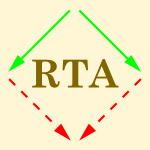 RTA-2011-Tison #automaton #constraints #question #similarity #term rewriting #what
RTA-2011-Tison #automaton #constraints #question #similarity #term rewriting #what- Tree Automata, (Dis-)Equality Constraints and Term Rewriting: What’s New? (ST), pp. 1–2.
 TLCA-2011-Tison #automaton #constraints #question #similarity #term rewriting #what
TLCA-2011-Tison #automaton #constraints #question #similarity #term rewriting #what- Tree Automata, (Dis-)Equality Constraints and Term Rewriting — What’s New? (ST), pp. 3–5.
 DAC-2010-GajskiAS #question #synthesis #what
DAC-2010-GajskiAS #question #synthesis #what- What input-language is the best choice for high level synthesis (HLS)? (DG, TMA, SS), pp. 857–858.
 DAC-2010-HarmsCDHUWY #design #experience #question #what
DAC-2010-HarmsCDHUWY #design #experience #question #what- What will make your next design experience a much better one? (TH, JAC, RD, RAH, DU, GW, JY), p. 730.
 DAC-2010-Hiskens #grid #question #smarttech #what
DAC-2010-Hiskens #grid #question #smarttech #what- What’s smart about the smart grid? (IAH), pp. 937–939.
 DAC-2010-NsBNPSGB #design #future of #power management #question #what
DAC-2010-NsBNPSGB #design #future of #power management #question #what- What’s cool for the future of ultra low power designs? (NN, JB, KN, VP, TS, AG, SB), pp. 523–524.
 DATE-2010-Cota #embedded #problem #question #testing #what
DATE-2010-Cota #embedded #problem #question #testing #what- Embedded software testing: What kind of problem is this? (ÉFC), p. 1486.
 VLDB-2010-AbadiCCGPR #database #question #what
VLDB-2010-AbadiCCGPR #database #question #what- Cloud Databases: What’s New? (DA, MJC, SC, HGM, JMP, RR), p. 1657.
 ITiCSE-2010-GurselG #student #what
ITiCSE-2010-GurselG #student #what- What do promising high school students think about studying computing (DAG, BG), p. 325.
 ITiCSE-2010-MainFH #quantum #student #what
ITiCSE-2010-MainFH #quantum #student #what- What did qubits ever do for me: an answer for CS2 students (MM, RF, YH), pp. 209–213.
 MSR-2010-RahmanBD #named #question #smell #what
MSR-2010-RahmanBD #named #question #smell #what- Clones: What is that smell? (FR, CB, PTD), pp. 72–81.
 ICALP-v2-2010-HofmannKS #functional #question #what
ICALP-v2-2010-HofmannKS #functional #question #what- What Is a Pure Functional? (MH, AK, HS), pp. 199–210.
 CHI-2010-BaileyH #case study #idea #pipes and filters #scalability #what
CHI-2010-BaileyH #case study #idea #pipes and filters #scalability #what- What’s your idea?: a case study of a grassroots innovation pipeline within a large software company (BPB, EH), pp. 2065–2074.
 CHI-2010-HartmannMBK #error message #fault #what
CHI-2010-HartmannMBK #error message #fault #what- What would other programmers do: suggesting solutions to error messages (BH, DM, JB, SRK), pp. 1019–1028.
 CHI-2010-LiNLDC #process #reuse #web #what
CHI-2010-LiNLDC #process #reuse #web #what- Here’s what i did: sharing and reusing web activity with ActionShot (IL, JN, TAL, CD, AC), pp. 723–732.
 CHI-2010-MorrisTP #behaviour #bibliography #network #people #social #what #why
CHI-2010-MorrisTP #behaviour #bibliography #network #people #social #what #why- What do people ask their social networks, and why?: a survey study of status message q&a behavior (MRM, JT, KP), pp. 1739–1748.
 CHI-2010-SauroL #question #testing #usability #what
CHI-2010-SauroL #question #testing #usability #what- Average task times in usability tests: what to report? (JS, JRL), pp. 2347–2350.
 CHI-2010-Thom-SantelliCG #collaboration #what
CHI-2010-Thom-SantelliCG #collaboration #what- What do you know?: experts, novices and territoriality in collaborative systems (JTS, DC, GG), pp. 1685–1694.
 CHI-2010-ViewegHSP #microblog #twitter #what
CHI-2010-ViewegHSP #microblog #twitter #what- Microblogging during two natural hazards events: what twitter may contribute to situational awareness (SV, ALH, KS, LP), pp. 1079–1088.
 CSCW-2010-SetlockF #cost analysis #tool support #what
CSCW-2010-SetlockF #cost analysis #tool support #what- What’s it worth to you?: the costs and affordances of CMC tools to asian and american users (LDS, SRF), pp. 341–350.
 CSCW-2010-StarbirdPHV #microblog #social #what
CSCW-2010-StarbirdPHV #microblog #social #what- Chatter on the red: what hazards threat reveals about the social life of microblogged information (KS, LP, ALH, SV), pp. 241–250.
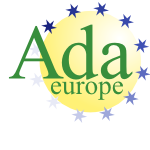 AdaEurope-2010-Baker #manycore #question #realtime #reliability #what
AdaEurope-2010-Baker #manycore #question #realtime #reliability #what- What to Make of Multicore Processors for Reliable Real-Time Systems? (TPB), pp. 1–18.
 EDOC-2010-VoelzG #quality #question #what
EDOC-2010-VoelzG #quality #question #what- What is Different in Quality Management for SOA? (DV, AG), pp. 47–56.
 ICEIS-DISI-2010-CaronD #analysis #case study
ICEIS-DISI-2010-CaronD #analysis #case study- What-if Analysis in OLAP — With a Case Study in Supermarket Sales Data (EC, HD), pp. 208–213.
 CIKM-2010-PiwowarskiFLR #information retrieval #quantum #what
CIKM-2010-PiwowarskiFLR #information retrieval #quantum #what- What can quantum theory bring to information retrieval (BP, IF, ML, KvR), pp. 59–68.
 RecSys-2010-ZhaoZYZZF #recommendation #social #what
RecSys-2010-ZhaoZYZZF #recommendation #social #what- Who is talking about what: social map-based recommendation for content-centric social websites (SZ, MXZ, QY, XZ, WZ, RF), pp. 143–150.
 OOPSLA-2010-ReichenbachISAG #garbage collection #what
OOPSLA-2010-ReichenbachISAG #garbage collection #what- What can the GC compute efficiently?: a language for heap assertions at GC time (CR, NI, YS, EA, SZG), pp. 256–269.
 RE-2010-Beatty #question #what
RE-2010-Beatty #question #what- My Company Can’t Afford RE Training Right Now, What Do We Do? (JB), p. 387.
 ICSE-2010-MusilSWB #education #game studies #prototype #what
ICSE-2010-MusilSWB #education #game studies #prototype #what- Synthesized essence: what game jams teach about prototyping of new software products (JM, AS, DW, SB), pp. 183–186.
 ICST-2010-WeyukerBO #debugging #question #what
ICST-2010-WeyukerBO #debugging #question #what- We’re Finding Most of the Bugs, but What are We Missing? (EJW, RMB, TJO), pp. 313–322.
 HT-2009-MeissDGRM #behaviour #web #what
HT-2009-MeissDGRM #behaviour #web #what- What’s in a session: tracking individual behavior on the web (MM, JD, BG, JJR, FM), pp. 173–182.
 SIGMOD-2009-AngelKSS #question #what
SIGMOD-2009-AngelKSS #question #what- What’s on the grapevine? (AA, NK, NS, DS), pp. 1047–1050.
 SIGMOD-2009-MuellerT #database #named #question #what
SIGMOD-2009-MuellerT #database #named #question #what- FPGA: what’s in it for a database? (RM, JT), pp. 999–1004.
 ITiCSE-2009-MitchellPH #question #what
ITiCSE-2009-MitchellPH #question #what- Computing science: what do pupils think? (AM, HCP, JH), p. 353.
 ITiCSE-2009-PargasB #question #what
ITiCSE-2009-PargasB #question #what- What were they thinking? (RPP, SPB), pp. 134–138.
 ESOP-2009-Eber #contract #design #programming language #question #specification #tool support #what
ESOP-2009-Eber #contract #design #programming language #question #specification #tool support #what- The Financial Crisis, a Lack of Contract Specification Tools: What Can Finance Learn from Programming Language Design? (JME), pp. 205–206.
 ICSM-2009-HindleGH #analysis #developer #topic #what
ICSM-2009-HindleGH #analysis #developer #topic #what- What’s hot and what’s not: Windowed developer topic analysis (AH, MWG, RCH), pp. 339–348.
 ICSM-2009-Wang #developer #motivation #source code #what
ICSM-2009-Wang #developer #motivation #source code #what- What motivate software engineers to refactor source code? evidences from professional developers (YW), pp. 413–416.
 MSR-2009-RastkarM #interactive #on the #question #recommendation #what
MSR-2009-RastkarM #interactive #on the #question #recommendation #what- On what basis to recommend: Changesets or interactions? (SR, GCM), pp. 155–158.
 FM-2009-BonzanniFFK #biology #formal method #question #what
FM-2009-BonzanniFFK #biology #formal method #question #what- What Can Formal Methods Bring to Systems Biology? (NB, KAF, WF, EK), pp. 16–22.
 CHI-2009-BaoG #what
CHI-2009-BaoG #what- What’s “this” you say?: the use of local references on distant displays (PB, DG), pp. 1029–1032.
 CHI-2009-BuscherCM #eye tracking #predict #using #web #what
CHI-2009-BuscherCM #eye tracking #predict #using #web #what- What do you see when you’re surfing?: using eye tracking to predict salient regions of web pages (GB, EC, MRM), pp. 21–30.
 CHI-2009-GaverBKBJ #design #how #what
CHI-2009-GaverBKBJ #design #how #what- Anatomy of a failure: how we knew when our design went wrong, and what we learned from it (WWG, JB, TK, AB, NJ), pp. 2213–2222.
 CHI-2009-KitturCS #topic #using #what #wiki
CHI-2009-KitturCS #topic #using #what #wiki- What’s in Wikipedia?: mapping topics and conflict using socially annotated category structure (AK, EHC, BS), pp. 1509–1512.
 CHI-2009-Ljungblad #what
CHI-2009-Ljungblad #what- Passive photography from a creative perspective: “If I would just shoot the same thing for seven days, it’s like... What’s the point?” (SL), pp. 829–838.
 CHI-2009-SchechterER #approach #authentication #social #what
CHI-2009-SchechterER #approach #authentication #social #what- It’s not what you know, but who you know: a social approach to last-resort authentication (SES, SE, RWR), pp. 1983–1992.
 CHI-2009-ShenLD #video #what
CHI-2009-ShenLD #video #what- What’s next?: emergent storytelling from video collection (EYTS, HL, GD), pp. 809–818.
 CHI-2009-Thom-SantelliCG #authoring #collaboration #what
CHI-2009-Thom-SantelliCG #authoring #collaboration #what- What’s mine is mine: territoriality in collaborative authoring (JTS, DC, GG), pp. 1481–1484.
 DHM-2009-Marshall #what
DHM-2009-Marshall #what- What the Eyes Reveal: Measuring the Cognitive Workload of Teams (SPM), pp. 265–274.
 HCD-2009-Go #design #question #usability #what
HCD-2009-Go #design #question #usability #what- What Properties Make Scenarios Useful in Design for Usability? (KG), pp. 193–201.
 HCI-NT-2009-GuoPS #what
HCI-NT-2009-GuoPS #what- What Do Users Want to See? A Content Preparation Study for Consumer Electronics (YG, RWP, GS), pp. 413–420.
 HCI-NT-2009-Lew #experience #what
HCI-NT-2009-Lew #experience #what- What Do Users Really Do? Experience Sampling in the 21st Century (GSL), pp. 314–319.
 IDGD-2009-EugeneHMBRL #authentication #design #process #what
IDGD-2009-EugeneHMBRL #authentication #design #process #what- This Is Who I Am and This Is What I Do: Demystifying the Process of Designing Culturally Authentic Technology (WE, LH, KM, QB, YAR, SL), pp. 19–28.
 CIKM-2009-BeckerBGJP #web #what
CIKM-2009-BeckerBGJP #web #what- What happens after an ad click?: quantifying the impact of landing pages in web advertising (HB, AZB, EG, VJ, BP), pp. 57–66.
 CIKM-2009-KementsietsidisW #evaluation #query #question #what
CIKM-2009-KementsietsidisW #evaluation #query #question #what- Provenance query evaluation: what’s so special about it? (AK, MW), pp. 681–690.
 CIKM-2009-QianLLXSS #community #development #topic #what
CIKM-2009-QianLLXSS #community #development #topic #what- What’s behind topic formation and development: a perspective of community core groups (TQ, QL, BL, HX, JS, PCYS), pp. 1843–1846.
 CIKM-2009-SunLL #case study #category theory #classification #performance #predict #what
CIKM-2009-SunLL #case study #category theory #classification #performance #predict #what- What makes categories difficult to classify?: a study on predicting classification performance for categories (AS, EPL, YL), pp. 1891–1894.
 ECIR-2009-Rijke #question #what
ECIR-2009-Rijke #question #what- Searching User Generated Content: What’s Next? (MdR), p. 2.
 ECIR-2009-SandersonTAC #what
ECIR-2009-SandersonTAC #what- What Else Is There? Search Diversity Examined (MS, JT, TA, PDC), pp. 562–569.
 KEOD-2009-Kop #concept #ontology #owl #question #what
KEOD-2009-Kop #concept #ontology #owl #question #what- What are Main Concepts in an OWL Domain Ontology? (CK), pp. 404–407.
 SIGIR-2009-KapteinMK #what
SIGIR-2009-KapteinMK #what- Who said what to whom?: capturing the structure of debates (RK, MM, JK), pp. 831–832.
 SIGIR-2009-ZhangL #query #question #web #what
SIGIR-2009-ZhangL #query #question #web #what- What queries are likely to recur in web search? (DZ, JL), pp. 827–828.
 MoDELS-2009-Mellor #modelling #question #what
MoDELS-2009-Mellor #modelling #question #what- Models. Models. Models. So What? (SJM), p. 1.
 MoDELS-2009-Mellor #modelling #question #what
MoDELS-2009-Mellor #modelling #question #what- Models. Models. Models. So What? (SJM), p. 1.
 ECOOP-2009-Jones #haskell #what #why
ECOOP-2009-Jones #haskell #what #why- Classes, Jim, But Not as We Know Them — Type Classes in Haskell: What, Why, and Whither (SLPJ), p. 1.
 RE-2009-WnukRK #comprehension #industrial #scalability #visualisation #what
RE-2009-WnukRK #comprehension #industrial #scalability #visualisation #what- What Happened to Our Features? Visualization and Understanding of Scope Change Dynamics in a Large-Scale Industrial Setting (KW, BR, LK), pp. 89–98.
 SLE-2009-Bezivin #problem #question #what
SLE-2009-Bezivin #problem #question #what- If MDE Is the Solution, Then What Is the Problem? (JB), p. 2.
 DAC-2008-HaritanHYPWNWM #challenge #design #exclamation #manycore #question #what
DAC-2008-HaritanHYPWNWM #challenge #design #exclamation #manycore #question #what- Multicore design is the challenge! what is the solution? (EH, TH, HY, PGP, WW, AN, DW, MM), pp. 128–130.
 DAC-2008-SparksWBLCPHR #industrial #what
DAC-2008-SparksWBLCPHR #industrial #what- Election year: what the electronics industry needs---and can expect---from the incoming administration (TS, PW, LB, RL, TC, CP, VH, CR), pp. 76–77.
 HT-2008-JatowtKOT #documentation #interactive #modelling #towards #what
HT-2008-JatowtKOT #documentation #interactive #modelling #towards #what- What can history tell us?: towards different models of interaction with document histories (AJ, YK, HO, KT), pp. 5–14.
 SIGMOD-2008-HarizopoulosAMS #what
SIGMOD-2008-HarizopoulosAMS #what- OLTP through the looking glass, and what we found there (SH, DJA, SM, MS), pp. 981–992.
 VLDB-2008-BlottW #question #similarity #what
VLDB-2008-BlottW #question #similarity #what- What’s wrong with high-dimensional similarity search? (SB, RW), p. 3.
 ITiCSE-2008-CaspersenCDPST #education #question #what
ITiCSE-2008-CaspersenCDPST #education #question #what- What is masters level education in informatics? (MEC, LNC, GD, AP, SS, HT), p. 341.
 ITiCSE-2008-ChinnV #gender #student #what
ITiCSE-2008-ChinnV #gender #student #what- What students say about gender in hiring software professionals (DC, TV), p. 344.
 ITiCSE-2008-DorgeS #question #what
ITiCSE-2008-DorgeS #question #what- What are information technology’s key qualifications? (CD, CS), pp. 296–300.
 ITiCSE-2008-Hall #web #what #why
ITiCSE-2008-Hall #web #what #why- What is web science and why is it important to CSE (WH), pp. 1–2.
 FASE-2008-ClassenHS #perspective #requirements #what
FASE-2008-ClassenHS #perspective #requirements #what- What’s in a Feature: A Requirements Engineering Perspective (AC, PH, PYS), pp. 16–30.
 FoSSaCS-2008-HabermehlIV #array #decidability #integer #question #what
FoSSaCS-2008-HabermehlIV #array #decidability #integer #question #what- What Else Is Decidable about Integer Arrays? (PH, RI, TV), pp. 474–489.
 CSMR-2008-PapastefanatosAVV #analysis #database #evolution #named
CSMR-2008-PapastefanatosAVV #analysis #database #evolution #named- Hecataeus: A What-If Analysis Tool for Database Schema Evolution (GP, FA, YV, PV), pp. 326–328.
 ICPC-2008-AlaliKM #commit #open source #repository #what
ICPC-2008-AlaliKM #commit #open source #repository #what- What’s a Typical Commit? A Characterization of Open Source Software Repositories (AA, HHK, JIM), pp. 182–191.
 MSR-2008-HindleGH #commit #scalability #what
MSR-2008-HindleGH #commit #scalability #what- What do large commits tell us?: a taxonomical study of large commits (AH, DMG, RCH), pp. 99–108.
 CHI-2008-ChauMF #what
CHI-2008-ChauMF #what- What to do when search fails: finding information by association (DHC, BAM, AF), pp. 999–1008.
 CHI-2008-NovNY #what
CHI-2008-NovNY #what- What drives content tagging: the case of photos on Flickr (ON, MN, CY), pp. 1097–1100.
 CHI-2008-PetrelliWB #named #physics #question #what
CHI-2008-PetrelliWB #named #physics #question #what- AutoTypography: what can physical mementos tell us about digital memories? (DP, SW, JB), pp. 53–62.
 CHI-2008-SubrahmaniyanBGBWNBDF #debugging #testing #what
CHI-2008-SubrahmaniyanBGBWNBDF #debugging #testing #what- Testing vs. code inspection vs. what else?: male and female end users’ debugging strategies (NS, LB, VG, MMB, SW, VN, KB, RD, XZF), pp. 617–626.
 CSCW-2008-PriedhorskyT #how #what #why
CSCW-2008-PriedhorskyT #how #what #why- The computational geowiki: what, why, and how (RP, LGT), pp. 267–276.
 CSCW-2008-TolmieCRB #quote #what
CSCW-2008-TolmieCRB #quote #what- “Are you watching this film or what?”: interruption and the juggling of cohorts (PT, AC, TR, SB), pp. 257–266.
 ICEIS-DISI-2008-PennesiHRWS #what #why
ICEIS-DISI-2008-PennesiHRWS #what #why- WWW++ — Adding Why to What, When and Where (PP, MH, CR, CYW, SS), pp. 304–309.
 ICEIS-SAIC-2008-BninaCNA #question #trust #what
ICEIS-SAIC-2008-BninaCNA #question #trust #what- What Can Context Do for Trust in Manets? (EBB, OC, CTN, HKBA), pp. 133–141.
 ECIR-2008-Belkin #challenge #information retrieval #what
ECIR-2008-Belkin #challenge #information retrieval #what- Some(What) Grand Challenges for Information Retrieval (NJB), p. 1.
 ICML-2008-LiLW #framework #learning #self #what
ICML-2008-LiLW #framework #learning #self #what- Knows what it knows: a framework for self-aware learning (LL, MLL, TJW), pp. 568–575.
 KR-2008-HinrichsG #finite #how #injection #logic #what
KR-2008-HinrichsG #finite #how #injection #logic #what- Injecting the How into the What: Investigating a Finite Classical Logic (TLH, MRG), pp. 92–192.
 RE-2008-SimAA #experience #requirements #what
RE-2008-SimAA #experience #requirements #what- Marginal Notes on Amethodical Requirements Engineering: What Experts Learned from Experience (SES, TAA, BAA), pp. 105–114.
 SAC-2008-AnagnostopoulosAH #adaptation #data type #multi #what
SAC-2008-AnagnostopoulosAH #adaptation #data type #multi #what- Deciding what to observe next: adaptive variable selection for regression in multivariate data streams (CA, NMA, DJH), pp. 961–965.
 FSE-2008-BettenburgJSWPZ #debugging #question #what
FSE-2008-BettenburgJSWPZ #debugging #question #what- What makes a good bug report? (NB, SJ, AS, CW, RP, TZ), pp. 308–318.
 TAP-2008-WeyukerO #fault #predict #question #what
TAP-2008-WeyukerO #fault #predict #question #what- What Can Fault Prediction Do for YOU? (EJW, TJO), pp. 18–29.
 ECSA-2007-Papazoglou #question #what
ECSA-2007-Papazoglou #question #what- What’s in a Service? (MPP), pp. 11–28.
 WICSA-2007-Muccini #architecture #testing #what
WICSA-2007-Muccini #architecture #testing #what- What Makes Software Architecture-Based Testing Distinguishable (HM), p. 29.
 ASE-2007-Selic #automation #what
ASE-2007-Selic #automation #what- The embarrassing truth about software automation and what should be done about it (BS), p. 3.
 DATE-2007-Wingen #design #question #what
DATE-2007-Wingen #design #question #what- What if you could design tomorrow’s system today? (NW), pp. 835–840.
 HT-2007-schraefel #question #semantics #web #what #why
HT-2007-schraefel #question #semantics #web #what #why- What is an analogue for the semantic web and why is having one important? (MMCS), pp. 123–132.
 PODS-2007-WhiteRGD #question #what
PODS-2007-WhiteRGD #question #what- What is “next” in event processing? (WMW, MR, JG, AJD), pp. 263–272.
 VLDB-2007-Amer-YahiaH #database #question #web #what
VLDB-2007-Amer-YahiaH #database #question #web #what- What does Web 2.0 have to do with databases? (SAY, AYH), p. 1443.
 VLDB-2007-IvesDR #adaptation #how #query #question #what #why
VLDB-2007-IvesDR #adaptation #how #query #question #what #why- Adaptive query processing: Why, How, When, and What Next? (ZGI, AD, VR), pp. 1426–1427.
 ITiCSE-2007-LarssonAKE #evaluation #question #what
ITiCSE-2007-LarssonAKE #evaluation #question #what- What impacts course evaluation? (EL, MA, DK, PE), p. 333.
 ESOP-2007-MantelR #classification #security #what
ESOP-2007-MantelR #classification #security #what- Controlling the What and Where of Declassification in Language-Based Security (HM, AR), pp. 141–156.
 MSR-2007-RigbyH #analysis #developer #what
MSR-2007-RigbyH #analysis #developer #what- What Can OSS Mailing Lists Tell Us? A Preliminary Psychometric Text Analysis of the Apache Developer Mailing List (PCR, AEH), p. 23.
 DLT-2007-Kunc #equation #question #what
DLT-2007-Kunc #equation #question #what- What Do We Know About Language Equations? (MK), pp. 23–27.
 CHI-2007-AndreasenNSS #empirical #testing #usability #what
CHI-2007-AndreasenNSS #empirical #testing #usability #what- What happened to remote usability testing?: an empirical study of three methods (MSA, HVN, SOS, JS), pp. 1405–1414.
 CHI-2007-CutrellG #web #what
CHI-2007-CutrellG #web #what- What are you looking for?: an eye-tracking study of information usage in web search (EC, ZG), pp. 407–416.
 CHI-2007-LindgaardC #question #testing #usability #what
CHI-2007-LindgaardC #question #testing #usability #what- Usability testing: what have we overlooked? (GL, JC), pp. 1415–1424.
 CHI-2007-ShehanE #human-computer #network #question #what
CHI-2007-ShehanE #human-computer #network #question #what- Home networking and HCI: what hath god wrought? (ES, WKE), pp. 547–556.
 HCI-AS-2007-Furukawa #challenge #effectiveness #fault #injection #question #what
HCI-AS-2007-Furukawa #challenge #effectiveness #fault #injection #question #what- Challenge for Preventing Medication Errors -Learn from Errors- : What Is the Most Effective Label Display to Prevent Medication Error for Injectable Drug ? (HF), pp. 437–442.
 HCI-AS-2007-LiuLS #behaviour #comprehension #design #game studies #online #what
HCI-AS-2007-LiuLS #behaviour #comprehension #design #game studies #online #what- What Makes Game Players Want to Play More? A Mathematical and Behavioral Understanding of Online Game Design (DL, XL, RS), pp. 284–293.
 HCI-IDU-2007-EschenbrennerN #identification #information management #what
HCI-IDU-2007-EschenbrennerN #identification #information management #what- What Makes Them So Special?: Identifying Attributes of Highly Competent Information System Users (BE, FFHN), pp. 736–745.
 HCI-IDU-2007-HwangS #detection #problem #usability #what
HCI-IDU-2007-HwangS #detection #problem #usability #what- What Makes Evaluators to Find More Usability Problems?: A Meta-analysis for Individual Detection Rates (WH, GS), pp. 499–507.
 HCI-IPT-2007-DengZTDW #documentation #what
HCI-IPT-2007-DengZTDW #documentation #what- Improving Document Icon to Re-find Efficiently What You Need (CD, MZ, FT, GD, HW), pp. 49–52.
 HIMI-IIE-2007-VuGNSCCP #online #privacy #question #what
HIMI-IIE-2007-VuGNSCCP #online #privacy #question #what- Examining User Privacy Practices While Shopping Online: What Are Users Looking for? (KPLV, FPG, DN, JS, BC, VC, RWP), pp. 792–801.
 OCSC-2007-Bickmore #lessons learnt #smarttech #social #what
OCSC-2007-Bickmore #lessons learnt #smarttech #social #what- What Would Jiminy Cricket Do? Lessons from the First Social Wearable (TWB), pp. 12–21.
 ICEIS-AIDSS-2007-SotoVPP #information management #question #what
ICEIS-AIDSS-2007-SotoVPP #information management #question #what- Knowledge Management Systems with Reputation and Intuition — What for? (JPS, AV, JPR, MP), pp. 498–503.
 ICEIS-HCI-2007-MelguizoBDBB #memory management #recommendation #what
ICEIS-HCI-2007-MelguizoBDBB #memory management #recommendation #what- What a Proactive Recommendation System Needs — Relevance, Non-Intrusiveness, and a New Long-Term Memory (MCPM, TB, AD, LB, AvdB), pp. 86–91.
 CIKM-2007-JonesKPT #privacy #query #quote #what
CIKM-2007-JonesKPT #privacy #query #quote #what- “I know what you did last summer”: query logs and user privacy (RJ, RK, BP, AT), pp. 909–914.
 ICML-2007-Werner #algorithm #consistency #question #what
ICML-2007-Werner #algorithm #consistency #question #what- What is decreased by the max-sum arc consistency algorithm? (TW), pp. 1007–1014.
 SIGIR-2007-LinYC #question #what
SIGIR-2007-LinYC #question #what- What emotions do news articles trigger in their readers? (KHYL, CY, HHC), pp. 733–734.
 ISSTA-2007-ChangPY #approach #what
ISSTA-2007-ChangPY #approach #what- Finding what’s not there: a new approach to revealing neglected conditions in software (RYC, AP, JY), pp. 163–173.
 DAC-2006-SingerMBHK #question #what
DAC-2006-SingerMBHK #question #what- The IC nanometer race — what will it take to win? (GS, PM, DB, FCH, HKK), pp. 77–78.
 DATE-2006-DasBDC #design #model checking #question #what
DATE-2006-DasBDC #design #model checking #question #what- What lies between design intent coverage and model checking? (SD, PB, PD, PPC), pp. 1217–1222.
 SIGMOD-2006-DeshpandeHR #adaptation #how #query #what #why
SIGMOD-2006-DeshpandeHR #adaptation #how #query #what #why- Adaptive query processing: why, how, when, what next (AD, JMH, VR), pp. 806–807.
 CSEET-2006-FornaroHT #design #student #what
CSEET-2006-FornaroHT #design #student #what- What Clients Want — What Students Do: Reflections on Ten Years of Sponsored Senior Design Projects (RJF, MRH, ALT), pp. 226–236.
 ITiCSE-2006-BoyleB #question #what
ITiCSE-2006-BoyleB #question #what- What don’t you know? (RDB, JB), p. 343.
 ITiCSE-2006-ChenLMSS #question #student #what
ITiCSE-2006-ChenLMSS #question #student #what- What do beginning students know, and what can they do? (TYC, GL, RM, KS, BS), p. 329.
 ICPC-2006-LawrieMFB #case study #identifier #what
ICPC-2006-LawrieMFB #case study #identifier #what- What’s in a Name? A Study of Identifiers (DL, CM, HF, DB), pp. 3–12.
 CHI-2006-WallB #feedback #graph #navigation #what
CHI-2006-WallB #feedback #graph #navigation #what- Feeling what you hear: tactile feedback for navigation of audio graphs (SAW, SAB), pp. 1123–1132.
 CSCW-2006-Lee #analysis #social #what
CSCW-2006-Lee #analysis #social #what- What goes around comes around: an analysis of del.icio.us as social space (KJL), pp. 191–194.
 ICPR-v1-2006-BoschMOM #approach #classification #question #what
ICPR-v1-2006-BoschMOM #approach #classification #question #what- Object and Scene Classification: what does a Supervised Approach Provide us? (AB, XM, AO, RM), pp. 773–777.
 SEKE-2006-FarenhorstBDLV #architecture #domain model #question #what
SEKE-2006-FarenhorstBDLV #architecture #domain model #question #what- What’s in Constructing a Domain Model for Sharing Architectural Knowledge? (RF, RCdB, RD, PL, HvV), pp. 108–113.
 SIGIR-2006-CarmelYDP #query #question #what
SIGIR-2006-CarmelYDP #query #question #what- What makes a query difficult? (DC, EYT, AD, DP), pp. 390–397.
 SIGIR-2006-FrankowskiCSTR #privacy #risk management #what
SIGIR-2006-FrankowskiCSTR #privacy #risk management #what- You are what you say: privacy risks of public mentions (DF, DC, SS, LGT, JR), pp. 565–572.
 RE-2006-AkkermansG #question #requirements #what
RE-2006-AkkermansG #question #requirements #what- What is This Science Called Requirements Engineering? (HA, JG), pp. 266–271.
 SAC-2006-SauvagnatHB #question #retrieval #using #what #xml
SAC-2006-SauvagnatHB #question #retrieval #using #what #xml- XML retrieval: what about using contextual relevance? (KS, LH, MB), pp. 1114–1115.
 ICSE-2006-MikulovicH #communication #development #distributed #how #quote #requirements #what
ICSE-2006-MikulovicH #communication #development #distributed #how #quote #requirements #what- “How do I know what I have to do?”: the role of the inquiry culture in requirements communication for distributed software development projects (VM, MH), pp. 921–925.
 VMCAI-2006-BradleyMS #array #decidability #question #what
VMCAI-2006-BradleyMS #array #decidability #question #what- What’s Decidable About Arrays? (ARB, ZM, HBS), pp. 427–442.
 WICSA-2005-Koschke #architecture #reverse engineering #what
WICSA-2005-Koschke #architecture #reverse engineering #what- What Architects Should Know About Reverse Engineering and Rengineering (RK), pp. 4–10.
 WICSA-2005-LungZG #architecture #what
WICSA-2005-LungZG #architecture #what- Reflection on Software Architecture Practices — What Works, What Remains to Be Seen, and What Are the Gaps (CHL, MZ, NG), pp. 221–222.
 DAC-2005-NassifZMMPV #exclamation #what
DAC-2005-NassifZMMPV #exclamation #what- The Titanic: what went wrong! (SRN, PSZ, CM, MM, SDP, WV), pp. 349–350.
 HT-2005-Moulthrop #hypermedia #problem #what
HT-2005-Moulthrop #hypermedia #problem #what- What the geeks know: hypertext and the problem of literacy (SM), pp. 227–231.
 HT-2005-YamamotoNNAM #authoring #hypermedia #what
HT-2005-YamamotoNNAM #authoring #hypermedia #what- What is the space for?: the role of space in authoring hypertext representations (YY, KN, YN, MA, RM), pp. 117–125.
 ICDAR-2005-AblameykoBP #what
ICDAR-2005-AblameykoBP #what- . What Should the User Do? Inference Structures and Line Drawing Interpretation (SA, VB, TPP), pp. 760–764.
 CSEET-2005-Selic #developer #what
CSEET-2005-Selic #developer #what- What I Wish I Had Learned in School: Reflections on 30+ Years as a Software Developer (BS), p. 5.
 ITiCSE-2005-AlmstrumL #question #what #women
ITiCSE-2005-AlmstrumL #question #what #women- What attracts women to CS? (VLA, MZL), p. 378.
 ITiCSE-2005-MurphyT #data type #student #what
ITiCSE-2005-MurphyT #data type #student #what- Do computer science students know what they know?: a calibration study of data structure knowledge (LM, JDT), pp. 148–152.
 ICSM-2005-Demeyer #morphism #performance #polymorphism #question #what
ICSM-2005-Demeyer #morphism #performance #polymorphism #question #what- Refactor Conditionals into Polymorphism: What’s the Performance Cost of Introducing Virtual Calls? (SD), pp. 627–630.
 IWPC-2005-HouWH #framework #question #what
IWPC-2005-HouWH #framework #question #what- What Can Programmer Questions Tell Us About Frameworks? (DH, KW, HJH), pp. 87–96.
 SEFM-2005-Chalin #logic #question #what
SEFM-2005-Chalin #logic #question #what- Logical Foundations of Program Assertions: What do Practitioners Want? (PC), pp. 383–393.
 CHI-2005-ConsolvoSMLTP #people #social #what #why
CHI-2005-ConsolvoSMLTP #people #social #what #why- Location disclosure to social relations: why, when, & what people want to share (SC, IES, TM, AL, JT, PP), pp. 81–90.
 CHI-2005-OviattLC #difference #integration #multimodal #question #what #why
CHI-2005-OviattLC #difference #integration #multimodal #question #what #why- Individual differences in multimodal integration patterns: what are they and why do they exist? (SLO, RL, RC), pp. 241–249.
 CHI-2005-PatilL #configuration management #privacy #what
CHI-2005-PatilL #configuration management #privacy #what- Who gets to know what when: configuring privacy permissions in an awareness application (SP, JL), pp. 101–110.
 MoDELS-2005-MiliE #design pattern #problem #question #representation #what
MoDELS-2005-MiliE #design pattern #problem #question #representation #what- Representing and Applying Design Patterns: What Is the Problem? (HM, GEB), pp. 186–200.
 MoDELS-2005-MiliE #design pattern #problem #question #representation #what
MoDELS-2005-MiliE #design pattern #problem #question #representation #what- Representing and Applying Design Patterns: What Is the Problem? (HM, GEB), pp. 186–200.
 RE-2005-AlexanderRM #industrial #process #requirements #what
RE-2005-AlexanderRM #industrial #process #requirements #what- What Influences the Requirements Process in Industry? A Report on Industrial Practice (IFA, SR, NAMM), pp. 411–415.
 ICSE-2005-MaurerM #agile #what
ICSE-2005-MaurerM #agile #what- What you always wanted to know about agile methods but did not dare to ask (FM, GM), pp. 731–732.
 ICSE-2005-ShawHO #design #education #re-engineering #what
ICSE-2005-ShawHO #design #education #re-engineering #what- Deciding what to design: closing a gap in software engineering education (MS, JDH, IO), pp. 607–608.
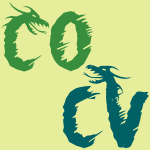 COCV-J-2005-Langmaack #question #reasoning #what
COCV-J-2005-Langmaack #question #reasoning #what- What Level of Mathematical Reasoning can Computer Science Demand of a Software Implementer? (HL), pp. 5–32.
 CADE-2005-Dowek #consistency #question #what
CADE-2005-Dowek #consistency #question #what- What Do We Know When We Know That a Theory Is Consistent? (GD), pp. 1–6.
 DAC-2004-BacchiniDBBNIY #named #verification #what
DAC-2004-BacchiniDBBNIY #named #verification #what- Verification: what works and what doesn’t (FB, RFD, BB, KB, KN, MI, EY), p. 274.
 DAC-2004-DeoZBCGLRRS #question #what
DAC-2004-DeoZBCGLRRS #question #what- What happened to ASIC?: Go (recon)figure? (ND, BZ, IB, JC, BG, PL, CBR, CR, RS), p. 185.
 DAC-2004-LiuPP #library #power management #question #what
DAC-2004-LiuPP #library #power management #question #what- Practical repeater insertion for low power: what repeater library do we need? (XL, YP, MCP), pp. 30–35.
 DATE-v2-2004-RajskiT #design #question #requirements #what
DATE-v2-2004-RajskiT #design #question #requirements #what- Nanometer Design: What are the Requirements for Manufacturing Test? (JR, KT), pp. 930–937.
 HT-2004-Wardrip-Fruin #hypermedia #what
HT-2004-Wardrip-Fruin #hypermedia #what- What hypertext is (NWF), pp. 126–127.
 ITiCSE-2004-Ben-AriBBH #education #question #research #what
ITiCSE-2004-Ben-AriBBH #education #question #research #what- What do we mean by theoretically sound research in computer science education? (MBA, AB, SB, CH), pp. 230–231.
 ITiCSE-2004-VeenML #education #question #what
ITiCSE-2004-VeenML #education #question #what- What is lacking in curriculum schemes for computing/informatics? (MvV, FM, KL), pp. 186–190.
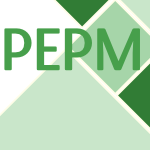 PEPM-2004-Morrisett #question #what
PEPM-2004-Morrisett #question #what- Invited talk: what’s the future for proof-carrying code? (JGM), p. 203.
 ICALP-2004-Hofmann #logic #question #type system #what
ICALP-2004-Hofmann #logic #question #type system #what- What Do Program Logics and Type Systems Have in Common? (MH0), pp. 4–7.
 CHI-2004-BellottiDGFBD #design #towards #what
CHI-2004-BellottiDGFBD #design #towards #what- What a to-do: studies of task management towards the design of a personal task list manager (VB, BD, NG, PF, DGB, ND), pp. 735–742.
 ICEIS-v3-2004-Nobre04a #what
ICEIS-v3-2004-Nobre04a #what- Computer Ethics: What are we Talking About? Possible Contributions from Philosophy of Action, Critical Realism and Modern Hermeneutics (ÂLN), pp. 683–687.
 KR-2004-CalvaneseGLLR #query #what
KR-2004-CalvaneseGLLR #query #what- What to Ask to a Peer: Ontolgoy-based Query Reformulation (DC, GDG, DL, ML, RR), pp. 469–478.
 KR-2004-Denecker #analysis #logic programming #what
KR-2004-Denecker #analysis #logic programming #what- What’s in a Model? Epistemological Analysis of Logic Programming (MD), pp. 106–113.
 KR-2004-Patel-Schneider #owl #question #what #why
KR-2004-Patel-Schneider #owl #question #what #why- What Is OWL (and Why Should I Care)? (PFPS), pp. 735–737.
 SIGIR-2004-LarsonF #information retrieval #what
SIGIR-2004-LarsonF #information retrieval #what- Geographic information retrieval (GIR): searching where and what (RRL, PF), p. 600.
 PPDP-2004-Morrisett #question #what
PPDP-2004-Morrisett #question #what- Invited talk: what’s the future for proof-carrying code? (JGM), p. 5.
 SPLC-2004-Krueger #product line #what
SPLC-2004-Krueger #product line #what- Product Line Binding Times: What You Don?t Know Can Hurt You (CWK), pp. 305–306.
 ASE-2003-MemonBN #effectiveness #question #testing #user interface #what
ASE-2003-MemonBN #effectiveness #question #testing #user interface #what- What Test Oracle Should I Use for Effective GUI Testing? (AMM, IB, AN), pp. 164–173.
 HT-2003-Nurnberg #hypermedia #question #what
HT-2003-Nurnberg #hypermedia #question #what- What is hypertext? (PJN), pp. 220–221.
 PODS-2003-CormodeM #what
PODS-2003-CormodeM #what- What’s hot and what’s not: tracking most frequent items dynamically (GC, SM), pp. 296–306.
 CSEET-2003-Cowling #question #what
CSEET-2003-Cowling #question #what- What Should Graduating Software Engineers Be Able To Do? (AJC), pp. 88–98.
 CSEET-2003-GermainR #process #question #student #what
CSEET-2003-GermainR #process #question #student #what- What Cognitive Activities Are Performed in Student Projects? (ÉG, PNR), p. 224–?.
 ITiCSE-2003-MurrayHKMWST #case study #education #experience #ide #java #what
ITiCSE-2003-MurrayHKMWST #case study #education #experience #ide #java #what- Experiences with IDEs and Java teaching: what works and what doesn’t (KAM, JMH, MK, TM, PJW, NCS, JAT), pp. 215–216.
 ITiCSE-2003-SheardD #question #student #what
ITiCSE-2003-SheardD #question #student #what- Influences on cheating practice of graduate students in IT courses: what are the factors? (JS, MD), pp. 45–49.
 ESOP-2003-Meadows #analysis #encryption #evolution #protocol #requirements #specification #what
ESOP-2003-Meadows #analysis #encryption #evolution #protocol #requirements #specification #what- What Makes a Cryptographic Protocol Secure? The Evolution of Requirements Specification in Formal Cryptographic Protocol Analysis (CM), pp. 10–21.
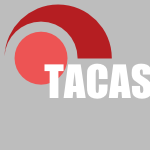 TACAS-2003-Lee #case study #experience #what
TACAS-2003-Lee #case study #experience #what- What Are We Trying to Prove? Reflections on Experiences with Proof-Carrying Code (PL0), p. 1.
 CHI-2003-FriedmanKH #hardware #online #what
CHI-2003-FriedmanKH #hardware #online #what- Hardware companions?: what online AIBO discussion forums reveal about the human-robotic relationship (BF, PHKJ, JH), pp. 273–280.
 CHI-2003-Ho-ChingML #design #evaluation #what
CHI-2003-Ho-ChingML #design #evaluation #what- Can you see what i hear?: the design and evaluation of a peripheral sound display for the deaf (FWlHC, JM, JAL), pp. 161–168.
 CHI-2003-JackoSSBEEKMZ #feedback #multimodal #performance #question #visual notation #what
CHI-2003-JackoSSBEEKMZ #feedback #multimodal #performance #question #visual notation #what- Older adults and visual impairment: what do exposure times and accuracy tell us about performance gains associated with multimodal feedback? (JAJ, IUS, FS, LB, PJE, VKE, TK, KPM, BSZ), pp. 33–40.
 ICEIS-v4-2003-Cox #communication #design #what
ICEIS-v4-2003-Cox #communication #design #what- What Is the Value of Emotion in Communication? Implications for User Centred Design (RC), pp. 418–425.
 ECIR-2003-HeeschR #feedback #image #question #retrieval #what
ECIR-2003-HeeschR #feedback #image #question #retrieval #what- Relevance Feedback for Content-Based Image Retrieval: What Can Three Mouse Clicks Achieve? (DH, SMR), pp. 363–376.
 SIGIR-2003-KampsMRS #question #retrieval #what #xml
SIGIR-2003-KampsMRS #question #retrieval #what #xml- XML retrieval: what to retrieve? (JK, MM, MdR, BS), pp. 409–410.
 SIGIR-2003-SakaiK #performance #question #retrieval #what
SIGIR-2003-SakaiK #performance #question #retrieval #what- Evaluating retrieval performance for Japanese question answering: what are best passages? (TS, TK), pp. 429–430.
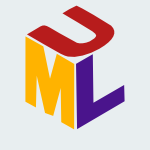 UML-2003-Fowler #question #uml #what
UML-2003-Fowler #question #uml #what- What Is the Point of the UML? (MF), p. 325.
 ICSE-2003-Szyperski #component #how #question #what
ICSE-2003-Szyperski #component #how #question #what- Component Technology — What, Where, and How? (CAS), pp. 684–693.
 ASE-2002-OwenMC #finite #modelling #question #what
ASE-2002-OwenMC #finite #modelling #question #what- What Makes Finite-State Models More (or Less) Testable? (DO, TM, BC), pp. 237–240.
 DAC-2002-BrodersenHKKLK #design #question #what
DAC-2002-BrodersenHKKLK #design #question #what- Nanometer design: what hurts next...? (RWB, AMH, JK, DK, MAL, MK), p. 242.
 DAC-2002-RabaeyKBCSLH #question #what
DAC-2002-RabaeyKBCSLH #question #what- What’s the next EDA driver? (JMR, JK, DB, RC, DS, LL, RH), p. 652.
 DATE-2002-LewisBLWGT #configuration management #question #what
DATE-2002-LewisBLWGT #configuration management #question #what- Reconfigurable SoC — What Will it Look Like? (JBL, IB, RL, CW, BG, YT), pp. 660–662.
 PODS-2002-ChuHG #optimisation #query #question #what
PODS-2002-ChuHG #optimisation #query #question #what- Least Expected Cost Query Optimization: What Can We Expect? (FCC, JYH, JG), pp. 293–302.
 ITiCSE-2002-CarboneS #education #learning #question #student #what
ITiCSE-2002-CarboneS #education #learning #question #student #what- A studio-based teaching and learning model in IT: what do first year students think? (AC, JS), pp. 213–217.
 ITiCSE-2002-DagdilelisSE #behaviour #what
ITiCSE-2002-DagdilelisSE #behaviour #what- What they really do?: attempting (once again) to model novice programmers’ behavior (VD, MS, GE), p. 244.
 CSCW-2002-HandelH #chat #question #what
CSCW-2002-HandelH #chat #question #what- What is chat doing in the workplace? (MH, JDH), pp. 1–10.
 ICPR-v2-2002-KakD #question #what
ICPR-v2-2002-KakD #question #what- Robotic Vision: What Happened to the Visions of Yesterday? (ACK, GND), pp. 839–847.
 KDD-2002-UgurelKG #automation #classification #source code #what
KDD-2002-UgurelKG #automation #classification #source code #what- What’s the code?: automatic classification of source code archives (SU, RK, CLG), pp. 639–644.
 RE-2002-Kovitz #ambiguity #what
RE-2002-Kovitz #ambiguity #what- Ambiguity and What to Do about It (BK), p. 213.
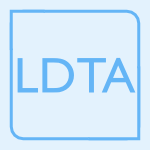 LDTA-2002-Consel #domain-specific language #how #what #why
LDTA-2002-Consel #domain-specific language #how #what #why- Domain-Specific Languages: What, Why, How (CC), p. 1.
 DATE-2001-YeungHMMZ #integration #question #standard #what
DATE-2001-YeungHMMZ #integration #question #standard #what- Standard bus vs. bus wrapper: what is the best solution for future SoC integration? (CY, AH, GM, JM, JZ), pp. 776–777.
 CSEET-2001-BagertHHLMM #programming #re-engineering #student #what
CSEET-2001-BagertHHLMM #programming #re-engineering #student #what- Programming Skills of Software Engineering Students: What Is Required? (Panel) (DJB, TBH, GWH, MJL, MM, SM), p. 39–?.
 ESOP-2001-AmtoftKP #question #what
ESOP-2001-AmtoftKP #question #what- What Are Polymorphically-Typed Ambients? (TA, AJK, SMPG), pp. 206–220.
 PASTE-2001-Webber #invariant #question #what
PASTE-2001-Webber #invariant #question #what- What is a class invariant? (ABW), pp. 86–89.
 SAS-2001-Schneider #security #what #why
SAS-2001-Schneider #security #what #why- Language-Based Security: What’s Needed and Why (FBS), p. 374.
 CHI-2001-FoggMLOVFPRSST #scalability #web #what
CHI-2001-FoggMLOVFPRSST #scalability #web #what- What makes Web sites credible?: a report on a large quantitative study (BJF, JM, OL, AO, CV, NF, JP, AR, JS, PS, MT), pp. 61–68.
 CIKM-2001-Rosenthal #documentation #question #security #what
CIKM-2001-Rosenthal #documentation #question #security #what- What Can Researches Do to Improve Security of Data and Documents? (AR), p. 593.
 KDD-2001-PadmanabhanZK #personalisation #semistructured data #what
KDD-2001-PadmanabhanZK #personalisation #semistructured data #what- Personalization from incomplete data: what you don’t know can hurt (BP, Z(Z, SOK), pp. 154–163.
 SEKE-2001-Vegas #question #testing #what
SEKE-2001-Vegas #question #testing #what- What Information is Relevant when Selecting Testing Techniques? (SV), pp. 45–52.
 TOOLS-USA-2001-Thompson #named #question #what
TOOLS-USA-2001-Thompson #named #question #what- SOAP: What Is It and What Is It Good For? (PT), p. 364.
 POPL-2001-BhargavanCMG #automaton #monitoring #network #what
POPL-2001-BhargavanCMG #automaton #monitoring #network #what- What packets may come: automata for network monitoring (KB, SC, PJM, CAG), pp. 206–219.
 RE-2001-Gonzales #question #what
RE-2001-Gonzales #question #what- Systems or Software: What Should the “S” in SRE Stand for? (RG), p. 281.
 RE-2001-Greenspan #question #requirements #what
RE-2001-Greenspan #question #requirements #what- Extreme RE: What If There Is No Time for Requirements Engineering? (SJG), pp. 282–285.
 RE-2001-Hooks #requirements #what
RE-2001-Hooks #requirements #what- What Happens With Good Requirements Practices (IH), p. 268.
 RE-2001-WesselsD #question #requirements #what
RE-2001-WesselsD #question #requirements #what- What Happens before Requirements Engineering? (BW, JED), pp. 298–299.
 ICSE-2001-ModesittBW #bibliography #re-engineering #source code #what
ICSE-2001-ModesittBW #bibliography #re-engineering #source code #what- Academic Software Engineering: What Is and What Could Be? Results of the First Annual Survey for International SE Programs (KLM, DJB, LHW), pp. 643–652.
 CBSE-2000-Hall #case study #component #education #question #what
CBSE-2000-Hall #case study #component #education #question #what- Educational Case Study–What is the Model of an Ideal Component? Must it be an Object? (PH), p. 8.
 ASE-2000-MenziesS #assessment #case study #query #risk management #scalability
ASE-2000-MenziesS #assessment #case study #query #risk management #scalability- Practical Large Scale What-If Queries: Case Studies with Software Risk Assessment (TM, ES), p. 165–?.
 HT-2000-Larsen #flexibility #hypermedia #what
HT-2000-Larsen #flexibility #hypermedia #what- Providing flexibility within hypertext systems: what we’ve learned at HT workshops, CyberMountain, and elsewhere (DL), pp. 268–269.
 VLDB-2000-HinneburgAK #nearest neighbour #question #what
VLDB-2000-HinneburgAK #nearest neighbour #question #what- What Is the Nearest Neighbor in High Dimensional Spaces? (AH, CCA, DAK), pp. 506–515.
 VLDB-2000-ManegoldBK #cpu #memory management #optimisation #what
VLDB-2000-ManegoldBK #cpu #memory management #optimisation #what- What Happens During a Join? Dissecting CPU and Memory Optimization Effects (SM, PAB, MLK), pp. 339–350.
 ITiCSE-2000-Carter #student #what
ITiCSE-2000-Carter #student #what- What the students said about plagiarsim (JC), p. 186.
 FASE-2000-Kondoh #question #re-engineering #what
FASE-2000-Kondoh #question #re-engineering #what- What is “Mathematicalness” in Software Engineering? (HK), pp. 163–177.
 CSMR-2000-JohnstoneSW #assembly #challenge #compilation #control flow #what
CSMR-2000-JohnstoneSW #assembly #challenge #compilation #control flow #what- What Assembly Language Programmers Get Up To: Control Flow Challenges in Reverse Compilation (AJ, ES, TW), pp. 83–92.
 ICSM-2000-Chapin00a #maintenance #question #what
ICSM-2000-Chapin00a #maintenance #question #what- Do We Know What Preventive Maintenance Is? (NC), pp. 15–17.
 ICSM-2000-Kajko-Mattsson #exclamation #maintenance #question #what
ICSM-2000-Kajko-Mattsson #exclamation #maintenance #question #what- Preventive Maintenance! Do We Know What It Is? (MKM), pp. 12–14.
 ICSM-2000-Vehvilainen #maintenance #question #what
ICSM-2000-Vehvilainen #maintenance #question #what- What Is Preventive Software Maintenance? (RV), p. 18–?.
 PEPM-2000-LiuS #optimisation #question #recursion #what
PEPM-2000-LiuS #optimisation #question #recursion #what- From Recursion to Iteration: What are the Optimizations? (YAL, SDS), pp. 73–82.
 CHI-2000-LeeKM #design #internet #what
CHI-2000-LeeKM #design #internet #what- What makes Internet users visit cyber stores again? key design factors for customer loyalty (JL, JK, JYM), pp. 305–312.
 CHI-2000-WhittakerDHM #interface #named #what
CHI-2000-WhittakerDHM #interface #named #what- Jotmail: a voicemail interface that enables you to see what was said (SW, RD, JH, UM), pp. 89–96.
 ICEIS-2000-MooreICMS #adaptation #what #workflow
ICEIS-2000-MooreICMS #adaptation #what #workflow- Who Does What? Matching Agents to Tasks in Adaptive Workflow (JPM, RI, PWHC, AM, JS), pp. 181–185.
 TOOLS-EUROPE-2000-Reenskaug #collaboration #how #uml #what #why
TOOLS-EUROPE-2000-Reenskaug #collaboration #how #uml #what #why- The What, Why and How of the UML Collaboration (TR), p. 476.
 ICRE-2000-AntonA #certification #requirements #what
ICRE-2000-AntonA #certification #requirements #what- What Do You Mean I’ve Been Practicing without a License? Certification and Licensing of Requirements Engineering Professionals (AIA, JMA), p. 151.
 ICRE-2000-Gause #question #requirements #what
ICRE-2000-Gause #question #requirements #what- Requirements Engineering: What Have We Accomplished? Where Are We Now? Where Are We Going? (DCG), pp. 195–196.
 ICRE-2000-Mead00a #certification #requirements #what
ICRE-2000-Mead00a #certification #requirements #what- What Do You Mean I’m Practicing without a License? Certification and Licensing of Requirements Engineering Professionals (NRM), p. 152.
 DAC-1999-DeHonW #automation #configuration management #design #what #why
DAC-1999-DeHonW #automation #configuration management #design #what #why- Reconfigurable Computing: What, Why, and Implications for Design Automation (AD, JW), pp. 610–615.
 HT-1999-NurnbergA #hypermedia #research #web #what
HT-1999-NurnbergA #hypermedia #research #web #what- What Was the Question? Reconciling Open Hypermedia and World Wide Web Research (PJN, HA), pp. 83–90.
 SIGMOD-1999-CareyCNVDRSM #question #what
SIGMOD-1999-CareyCNVDRSM #question #what- O-O, What’s Happening to DB2? (MJC, DDC, SN, BV, DD, SR, RS, NMM), pp. 511–512.
 VLDB-1999-CareyCNVDRSM #question #what
VLDB-1999-CareyCNVDRSM #question #what- O-O, What Have They Done to DB2? (MJC, DDC, SN, BV, DD, SR, RS, NMM), pp. 542–553.
 VLDB-1999-DeRose #question #what #xml
VLDB-1999-DeRose #question #what #xml- What Do Those Weird XML Types Want, Anyway? (SJD), pp. 721–724.
 VLDB-1999-JagadishLS #question #what
VLDB-1999-JagadishLS #question #what- What can Hierarchies do for Data Warehouses? (HVJ, LVSL, DS), pp. 530–541.
 CSEET-1999-McMillanR #re-engineering #student #what
CSEET-1999-McMillanR #re-engineering #student #what- What Leading Practitioners Say Should be Emphasized in Students’ Software Engineering Projects (WWM, SR), pp. 177–185.
 ITiCSE-1999-Carter #collaboration #student #what
ITiCSE-1999-Carter #collaboration #student #what- Collaboration or plagiarism: what happens when students work together (JC), pp. 52–55.
 ITiCSE-1999-CarterJ #gender #programming #question #what
ITiCSE-1999-CarterJ #gender #programming #question #what- Gender and programming: what’s going on? (JC, TJ), pp. 1–4.
 PLDI-1999-CraryHP #question #recursion #what
PLDI-1999-CraryHP #question #recursion #what- What is a Recursive Module? (KC, RH, SP), pp. 50–63.
 STOC-1999-CanettiO #what
STOC-1999-CanettiO #what- Secure Computation with Honest-Looking Parties: What If Nobody Is Truly Honest? (Extended Abstract) (RC, RO), pp. 255–264.
 HCI-CCAD-1999-WhiteC #question #web #what
HCI-CCAD-1999-WhiteC #question #web #what- What are you looking at on the web: information or applications? (DW, YYC), pp. 76–79.
 HCI-EI-1999-Canamero #human-computer #question #what
HCI-EI-1999-Canamero #human-computer #question #what- What Emotions are Necessary for HCI? (DC), pp. 838–842.
 HCI-EI-1999-HansenS #question #what
HCI-EI-1999-HansenS #question #what- 200, 000, 000, 000 Call Records — Now What Do We Do? (RSH, RKS), pp. 1158–1161.
 SIGAda-1999-PautetT #distributed #question #what
SIGAda-1999-PautetT #distributed #question #what- What future for the distributed systems annex? (LP, ST), pp. 77–82.
 ICEIS-1999-JarvisSMMC #adaptation #what #workflow
ICEIS-1999-JarvisSMMC #adaptation #what #workflow- What Right Do You Have To Do That?-Infusing Adaptive Workflow Technology with Knowledfe about the Organisational and Autority Context of a Task (PJ, JS, AM, JPM, PWHC), pp. 240–247.
 ICEIS-1999-ReisM #network #what
ICEIS-1999-ReisM #network #what- What’s in a Node?-Nodes and Agents in Logistic Networks (JR, NJM), pp. 285–291.
 CIKM-1999-Giles #question #web #what
CIKM-1999-Giles #question #web #what- Searching the Web: Can You Find What You Want? (CLG), pp. 1–2.
 KDD-1999-Sahar #what
KDD-1999-Sahar #what- Interestingness via What is Not Interesting (SS), pp. 332–336.
 TOOLS-EUROPE-1999-Henderson-SellersB #question #what
TOOLS-EUROPE-1999-Henderson-SellersB #question #what- What is This Thing Called Aggregation? (BHS, FB), pp. 236–250.
 HPDC-1999-Weissman #fault tolerance #grid #question #what
HPDC-1999-Weissman #fault tolerance #grid #question #what- Fault Tolerant Computing on the Grid: What are My Options? (JBW), pp. 351–352.
 DAC-1998-Dill #simulation #verification #what
DAC-1998-Dill #simulation #verification #what- What’s Between Simulation and Formal Verification? (Extended Abstract) (DLD), pp. 328–329.
 SIGMOD-1998-ChaudhuriN #analysis
SIGMOD-1998-ChaudhuriN #analysis- AutoAdmin “What-if” Index Analysis Utility (SC, VRN), pp. 367–378.
 SIGMOD-1998-LacroixSC #exclamation #web #what
SIGMOD-1998-LacroixSC #exclamation #web #what- User-oriented smart-cache for the Web: What You Seek is What You Get! (ZL, AS, RC), pp. 572–574.
 VLDB-1998-BlottKS #communication #how #question #what
VLDB-1998-BlottKS #communication #how #question #what- Information, Communication, and Money: For What Can We Charge and How Can We Meter It? (SB, HFK, AS), p. 697.
 CSEET-1998-CarterBCR #industrial #what
CSEET-1998-CarterBCR #industrial #what- What Industry Wants in Its New Hires (DC, MFB, RC, GR), pp. 126–127.
 FASE-1998-Jones #what
FASE-1998-Jones #what- Some Mistakes I Have and What I Have Learned from Them (CBJ), pp. 7–20.
 CHI-1998-WalkerFFMH #email #interface #what
CHI-1998-WalkerFFMH #email #interface #what- What can I say? Evaluating a Spoken Language Interface to Email (MAW, JF, GDF, CM, DH), pp. 582–589.
 ICPR-1998-Gimelfarb #interactive #modelling #question #segmentation #what
ICPR-1998-Gimelfarb #interactive #modelling #question #segmentation #what- Supervised segmentation by pairwise interactions: do Gibbs models learn what we expect? (GLG), pp. 817–819.
 KR-1998-Levesque98a #what
KR-1998-Levesque98a #what- What Robots Can Do (HJL), p. 651.
 OOPSLA-1998-DrossopoulouWE #java #question #what
OOPSLA-1998-DrossopoulouWE #java #question #what- What is Java Binary Compatibility? (SD, DW, SE), pp. 341–361.
 ICSE-1998-RothermelLDB #source code #testing #visual notation #what
ICSE-1998-RothermelLDB #source code #testing #visual notation #what- What You See Is What You Test: A Methodology for Testing Form-Based Visual Programs (GR, LL, CD, MMB), pp. 198–207.
 ISSTA-1998-Hamlet #question #testing #what
ISSTA-1998-Hamlet #question #testing #what- What Can We Learn by Testing a Program? (RGH), pp. 50–52.
 HT-1997-Chuat #hypermedia #using #what
HT-1997-Chuat #hypermedia #using #what- Using Hypertext for Textual Genetics, or, What is Suitable in a Hypertext System for an Information Gardening Application (CC), pp. 230–231.
 HT-1997-Golovchinsky #hypermedia #information retrieval #integration #query #what
HT-1997-Golovchinsky #hypermedia #information retrieval #integration #query #what- What the Query Told the Link: The Integration of Hypertext and Information Retrieval (GG), pp. 67–74.
 HT-1997-LaddCS #question #web #what
HT-1997-LaddCS #question #web #what- The World Wide Web: What Cost Simplicity? (BCL, MVC, PDS), pp. 210–211.
 ITiCSE-1997-Lawhead97a #distance #learning #web #what
ITiCSE-1997-Lawhead97a #distance #learning #web #what- The Web and distance learning (panel): what is appropriate and what is not (PBL), p. 144.
 ITiCSE-1997-Moser #game studies #learning #what #why
ITiCSE-1997-Moser #game studies #learning #what #why- A fantasy adventure game as a learning environment: why learning to program is so difficult and what can be done about it (RM), pp. 114–116.
 ITiCSE-WGR-1997-LawheadABCCDDFS #distance #learning #web #what
ITiCSE-WGR-1997-LawheadABCCDDFS #distance #learning #web #what- The Web and distance learning: what is appropriate and what is not (report of the ITiCSE 1997 working group on the web and distance learning) (PBL, EA, CGB, LC, DC, JD, MD, ERF, KS), pp. 27–37.
 HCI-CC-1997-Blanchard #how #human-computer #interactive #question #standard #what
HCI-CC-1997-Blanchard #how #human-computer #interactive #question #standard #what- International Standards on Human-Computer Interaction: What is Out There and How Will it be Implemented? (HEB), pp. 599–602.
 HCI-CC-1997-SalimM #named #question #what
HCI-CC-1997-SalimM #named #question #what- Groupware: What You See Is What You Need? (SSS, LAM), pp. 53–56.
 HCI-SEC-1997-BlanchonF #what
HCI-SEC-1997-BlanchonF #what- Asking Users About What They Mean: Two Experiments & Results (HB, LF), pp. 609–612.
 EDOC-1997-Kindel #black box #encapsulation #interface #multi #named #what
EDOC-1997-Kindel #black box #encapsulation #interface #multi #named #what- COM: what makes it work, black-box encapsulation through multiple, immutable interfaces (CK), pp. 68–77.
 RE-1997-Hall #question #requirements #what
RE-1997-Hall #question #requirements #what- What’s the Use of Requirements Engineering? (AH), p. 2–?.
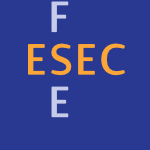 ESEC-FSE-1997-Maibaum #education #question #what
ESEC-FSE-1997-Maibaum #education #question #what- What We Teach Software Engineers in the University: Do We Take Engineering Seriously? (TSEM), pp. 40–50.
 ESEC-FSE-1997-Uhl #industrial #what
ESEC-FSE-1997-Uhl #industrial #what- What we Expect from Software Engineers in the Industry (Abstract) (JU), p. 51.
 DAC-1996-KantrowitzN #analysis #correctness #simulation #verification #what
DAC-1996-KantrowitzN #analysis #correctness #simulation #verification #what- I’m Done Simulating: Now What? Verification Coverage Analysis and Correctness Checking of the DECchip 21164 Alpha Microprocessor (MK, LMN), pp. 325–330.
 VLDB-1996-GuptaM #problem #what
VLDB-1996-GuptaM #problem #what- What is the Data Warehousing Problem? (Are Materialized Views the Answer?) (AG, ISM), p. 602.
 ITiCSE-1996-ProulxRF #education #how #question #what
ITiCSE-1996-ProulxRF #education #how #question #what- Foundations of computer science: what are they and how do we teach them? (VKP, RR, HJF), pp. 42–48.
 ICFP-1996-LawallM #cost analysis #question #what #λ-calculus
ICFP-1996-LawallM #cost analysis #question #what #λ-calculus- Optimality and Inefficiency: What Isn’t a Cost Model of the λ Calculus? (JLL, HGM), pp. 92–101.
 CSCW-1996-Bazzigaluppi #question #what
CSCW-1996-Bazzigaluppi #question #what- Groupware at Work: It’s Here Now, But Do We Know What It Is Yet? (GB), pp. 438–440.
 AKDDM-1996-MatheusPM #what
AKDDM-1996-MatheusPM #what- Selecting and reporting What Is Interesting (CJM, GPS, DM), pp. 495–515.
 ICPR-1996-FlorouM #3d #metric #question #what
ICPR-1996-FlorouM #3d #metric #question #what- What accuracy for 3D measurements with cameras? (GF, RM), pp. 354–358.
 KR-1996-Fikes #named #ontology #question #research #what
KR-1996-Fikes #named #ontology #question #research #what- Ontologies: What Are They, and Where’s The Research? (RF), pp. 652–653.
 KR-1996-Mark #named #ontology #question #research #what
KR-1996-Mark #named #ontology #question #research #what- Ontologies: What Are They, and Where’s The Research? (WSM), pp. 654–655.
 POPL-1996-Jim #question #what
POPL-1996-Jim #question #what- What Are Principal Typings and What Are They Good For? (TJ), pp. 42–53.
 CADE-1996-Scott #automation #deduction #what
CADE-1996-Scott #automation #deduction #what- What Can We Hope to Achieve From Automated Deduction? (Abstract) (DSS), p. 245.
 STOC-1995-DiaconisS #algorithm #question #what
STOC-1995-DiaconisS #algorithm #question #what- What do we know about the Metropolis algorithm? (PD, LSC), pp. 112–129.
 STOC-1995-HenzingerKPV #automaton #decidability #hybrid #question #what
STOC-1995-HenzingerKPV #automaton #decidability #hybrid #question #what- What’s decidable about hybrid automata? (TAH, PWK, AP, PV), pp. 373–382.
 CHI-1995-OlsonOM #design #question #realtime #video #what
CHI-1995-OlsonOM #design #question #realtime #video #what- What Mix of Video and Audio is Useful for Small Groups Doing Remote Real-Time Design Work? (JSO, GMO, DKM), pp. 362–368.
 CHI-1995-RoeslerM #data access #online #taxonomy #what
CHI-1995-RoeslerM #data access #online #taxonomy #what- What Help Do Users Need?: Taxonomies for On-Line Information Needs and Access Methods (AWR, SGM), pp. 437–441.
 TLCA-1995-Bierman #category theory #linear #logic #question #what
TLCA-1995-Bierman #category theory #linear #logic #question #what- What is a Categorical Model of Intuitionistic Linear Logic? (GMB), pp. 78–93.
 CHI-1994-WhittakerFD94a #communication #how #question #what
CHI-1994-WhittakerFD94a #communication #how #question #what- Informal workplace communication: what is it like and how might we support it? (SW, DF, ODJ), pp. 131–137.
 TRI-Ada-1994-SitaramanFFFHMW #education #question #what
TRI-Ada-1994-SitaramanFFFHMW #education #question #what- What Changes Are Needed For Undergraduate CS Curricula to Educate “Software Engineers”? (MS, MBF, GAF, WBF, JEH, DFM, BWW), p. 220.
 ICSE-1994-BrodmanJ #case study #experience #what
ICSE-1994-BrodmanJ #case study #experience #what- What Small Business and Small Organizations Say About the CMM: Experience Report (JGB, DLJ), pp. 331–340.
 CADE-1994-Platek #proving #what
CADE-1994-Platek #proving #what- What is a Proof? (Abstract) (RP), p. 431.
 SIGMOD-1993-Egenhofer #database #navigation #requirements #what
SIGMOD-1993-Egenhofer #database #navigation #requirements #what- What’s Special about Spatial? Database Requirements for Vehicle Navigation in Geographic Space (Extended Abstract) (MJE), pp. 398–402.
 CSM-1993-Caldiera #maintenance #standard #what
CSM-1993-Caldiera #maintenance #standard #what- Standards for Software Maintenance — What We Have and What We Need (GC), p. 103.
 STOC-1993-NaorS #question #what
STOC-1993-NaorS #question #what- What can be computed locally? (MN, LJS), pp. 184–193.
 ICALP-1993-KannegantiC #higher-order #programming language #question #what
ICALP-1993-KannegantiC #higher-order #programming language #question #what- What is a Universal Higher-Order Programming Language? (RK, RC), pp. 682–695.
 INTERCHI-1993-HerbslebK #design #what
INTERCHI-1993-HerbslebK #design #what- Preserving knowledge in design projects: what designers need to know (JDH, EK), pp. 7–14.
 TRI-Ada-1993-Brett #ada #compilation #implementation #what
TRI-Ada-1993-Brett #ada #compilation #implementation #what- Smart Recompilation: What Is It?, Its Benefits for the User, and Its Implementation in the DEC Ada Compilation System (BRB), pp. 277–287.
 RE-1993-KuwanaH #empirical #representation #requirements #what
RE-1993-KuwanaH #empirical #representation #requirements #what- Representing knowledge in requirements engineering: an empirical study of what software engineers need to know (EK, JDH), pp. 273–276.
 SIGMOD-1992-Rosenthal #what
SIGMOD-1992-Rosenthal #what- What Can We Do to Strengthen the Connection Between Theory and System Builders (AR), p. 101.
 ICALP-1992-HenzingerMP #question #what
ICALP-1992-HenzingerMP #question #what- What Good Are Digital Clocks? (TAH, ZM, AP), pp. 545–558.
 TRI-Ada-C-1992-Beidler #component #education #tool support #what
TRI-Ada-C-1992-Beidler #component #education #tool support #what- Building on the Booch Components: What Can Be Learned When Modifying Real World Software Tools for Educational Use (JB), pp. 157–164.
 KR-1992-Reiter #reasoning #research #what
KR-1992-Reiter #reasoning #research #what- Twelve Years of Nonmonotonic Reasoning Research: Where (and What) Is the Beef (RR), p. 789.
 OOPSLA-1992-LiuGG #learning #object-oriented #question #what
OOPSLA-1992-LiuGG #learning #object-oriented #question #what- What Contributes to Successful Object-Oriented Learning? (CL, SG, BG), pp. 77–86.
 TOOLS-USA-1992-Odberg #database #object-oriented #query #what
TOOLS-USA-1992-Odberg #database #object-oriented #query #what- What “What” is and isn’t: On Query Languages for Object-Oriented Databases, or: Closing the Gap — Again (EO), pp. 13–24.
 KBSE-1991-Sasso91a #question #what
KBSE-1991-Sasso91a #question #what- Encouraging the Adoption of KBSE Technology: What Needs to Happen First? (WCS), pp. 237–238.
 HT-1991-ThuringHH #how #what
HT-1991-ThuringHH #how #what- What’s Eliza Doing in the Chinese Room? Incoherent Hyperdocuments — and How to Avoid Them (MT, JMH, JH), pp. 161–177.
 SEI-1991-RiedlWFKM #re-engineering #what
SEI-1991-RiedlWFKM #re-engineering #what- What We Have Learned About Software Engineering Expertise (TRR, JSW, JTF, GAK, JDM), pp. 261–270.
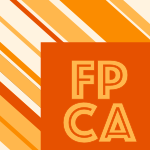 FPCA-1991-FrandsenS #implementation #performance #question #what #λ-calculus
FPCA-1991-FrandsenS #implementation #performance #question #what #λ-calculus- What is an Efficient Implementation of the λ-calculus? (GSF, CS), pp. 289–312.
 ECOOP-1991-PalsbergS #question #reuse #type safety #what
ECOOP-1991-PalsbergS #question #reuse #type safety #what- What is Type-Safe Code Reuse? (JP, MIS), pp. 325–341.
 CHI-1990-CushmanOD #performance #question #requirements #what
CHI-1990-CushmanOD #performance #question #requirements #what- Usable OCR: what are the minimum performance requirements? (WHC, PSO, CMD), pp. 145–152.
 CHI-1990-Jacob #eye tracking #interactive #what
CHI-1990-Jacob #eye tracking #interactive #what- What you look at is what you get: eye movement-based interaction techniques (RJKJ), pp. 11–18.
 CHI-1990-Winograd #education #human-computer #interactive #what
CHI-1990-Winograd #education #human-computer #interactive #what- What can we teach about human-computer interaction? (plenary address) (TW), pp. 443–448.
 CSCW-1990-MaloneC #coordination #design #how #question #what
CSCW-1990-MaloneC #coordination #design #how #question #what- What is Coordination Theory and How Can It Help Design Cooperative Work Systems? (TWM, KC), pp. 357–370.
 SEKE-1990-VolovikMT #re-engineering #what
SEKE-1990-VolovikMT #re-engineering #what- What Software Engineering Can Learn From Practitioners (DV, RM, WTT), pp. 216–221.
 OOPSLA-ECOOP-1990-BockerH #what
OOPSLA-ECOOP-1990-BockerH #what- What Tracers Are Made Of (HDB, JH), pp. 89–99.
 CLP-1990-Reiter90 #database #question #what
CLP-1990-Reiter90 #database #question #what- What Should a Database Know? (RR), p. 765.
 HT-1989-HalaszMMPS #named #what
HT-1989-HalaszMMPS #named #what- Confessions — What’s Wrong with Our Systems (FGH, DLM, NKM, AP, BS), p. 399.
 HT-1989-Lesk #what
HT-1989-Lesk #what- What To Do When There’s Too Much Information (ML), pp. 305–318.
 CHI-1989-BlackBMC #effectiveness #learning #online #question #what
CHI-1989-BlackBMC #effectiveness #learning #online #question #what- On-line tutorials: What kind of inference leads to the most effective learning? (JBB, JSB, MM, JMC), pp. 81–83.
 CHI-1989-Moran #question #what
CHI-1989-Moran #question #what- What is EuroParc? (TPM), pp. 51–52.
 KR-1989-Lehmann #knowledge base #question #what
KR-1989-Lehmann #knowledge base #question #what- What Does a Conditional Knowledge Base Entail? (DJL), pp. 212–222.
 KR-1989-Poole #reasoning #what
KR-1989-Poole #reasoning #what- What the Lottery Paradox Tells Us About Default Reasoning (DP), pp. 333–340.
 ML-1989-RuffD #question #what
ML-1989-RuffD #question #what- What Good Are Experiments? (RAR, TGD), pp. 109–112.
 ML-1989-VanLehn #problem #what
ML-1989-VanLehn #problem #what- Discovering Problem Solving Strategies: What Humans Do and Machines Don’t (Yet) (KV), pp. 215–217.
 ICSE-1989-Boehm #generative #process #what
ICSE-1989-Boehm #generative #process #what- What We Really Need Are Process Model Generators (BWB), p. 397.
 PODS-1988-Reiter #database #question #what
PODS-1988-Reiter #database #question #what- What Should A Database Know? (RR), pp. 302–304.
 SEI-1988-Werth #how #tool support #what #why
SEI-1988-Werth #how #tool support #what #why- Software Tools at the University: Why, What and How (LHW), pp. 169–186.
 ECOOP-1988-MadsenM #object-oriented #programming #what
ECOOP-1988-MadsenM #object-oriented #programming #what- What Object-Oriented Programming May Be — and What It Does Not Have To Be (OLM, BMP), pp. 1–20.
 ECOOP-1988-WegnerZ #incremental #inheritance #what
ECOOP-1988-WegnerZ #incremental #inheritance #what- Inheritance as an Incremental Modification Mechanism or What Like Is and Isn’t Like (PW, SBZ), pp. 55–77.
 HCI-CE-1987-Salvendy #development #human-computer #interactive #research #what
HCI-CE-1987-Salvendy #development #human-computer #interactive #research #what- What We Know and What We Should Know About Human-Computer Interaction: Strategies for Research and Development (GS), pp. 13–19.
 HCI-CE-1987-Soloway #specification #what
HCI-CE-1987-Soloway #specification #what- I Can’t Tell What in the Code Implements What in the Specs (ES), pp. 317–328.
 ECOOP-1987-Stroustrup #object-oriented #programming #what
ECOOP-1987-Stroustrup #object-oriented #programming #what- What is “Object-Oriented Programming?” (BS), pp. 51–70.
 CADE-1986-Eisinger #graph #what
CADE-1986-Eisinger #graph #what- What You Always Wanted to Know About Clause Graph Resolution (NE), pp. 316–336.
 DAC-1985-KowalskiT #automation #design #knowledge base #what
DAC-1985-KowalskiT #automation #design #knowledge base #what- The VLSI design automation assistant: what’s in a knowledge base (TJK, DET), pp. 252–258.
 POPL-1985-Lamport #concurrent #specification #what #why
POPL-1985-Lamport #concurrent #specification #what #why- What It Means for a Concurrent Program to Satisfy a Specification: Why No One Has Specified Priority (LL), pp. 78–83.
 DAC-1984-Smith #layout #tool support #what
DAC-1984-Smith #layout #tool support #what- Basic turorial layout tools — what really is there (RS), p. 219.
 POPL-1984-HalpernMT #question #semantics #what
POPL-1984-HalpernMT #question #semantics #what- The Semantics of Local Storage, or What Makes the Free-List Free? (JYH, ARM, BAT), pp. 245–257.
 ICSE-1984-MaibaumT #on the #what
ICSE-1984-MaibaumT #on the #what- On What Exactly Is Going On When Software Is Developed Step-by-Step (TSEM, WMT), pp. 528–533.
 SIGIR-1982-Henrichs #information retrieval #question #what
SIGIR-1982-Henrichs #information retrieval #question #what- The Growing Crisis of Traditional Information Retrieval Systems — What is to Follow? (NH), pp. 1–12.
 ILPC-1982-Kurokawa82 #logic programming #re-engineering #what
ILPC-1982-Kurokawa82 #logic programming #re-engineering #what- Logic Programming — What Does it Bring to the Software Engineering (TK), pp. 134–138.
 DAC-1981-Burdick #design #formal method #process #what
DAC-1981-Burdick #design #formal method #process #what- What to do when the seat of your pants wears out — the formalization of the VLSI design process (EB), pp. 708–709.
 DAC-1980-Armstrong #what
DAC-1980-Armstrong #what- A CAD user’s perspective what gets done right wrong and not at all (Position Paper) (RAA), p. 517.
 VLDB-1980-BernsteinG #normalisation #question #what
VLDB-1980-BernsteinG #normalisation #question #what- What does Boyce-Codd Normal Form Do? (PAB, NG), pp. 245–259.
 VLDB-1978-BrodieS #data type #question #what
VLDB-1978-BrodieS #data type #question #what- What is the Use of Abstract Data Types? (MLB, JWS), pp. 140–141.
 VLDB-1978-Johnson #question #what
VLDB-1978-Johnson #question #what- What End-User Facilities do we Need? (FEJ), p. 126.
 VLDB-1978-Sharman #metamodelling #question #semantics #what
VLDB-1978-Sharman #metamodelling #question #semantics #what- What is a “Good” Semantic or Meta Model? (GS), p. 138.
 DAC-2015-WolfF #architecture #continuation #question #what
DAC-2015-WolfF #architecture #continuation #question #what DocEng-2015-AtenciaDG #linked data #open data #question #what
DocEng-2015-AtenciaDG #linked data #open data #question #what DocEng-2015-Paoli #documentation #what
DocEng-2015-Paoli #documentation #what SIGMOD-2015-CSKZYRPAKDRD #big data #industrial #what #why
SIGMOD-2015-CSKZYRPAKDRD #big data #industrial #what #why FASE-2015-CzechJW #exclamation #verification #what
FASE-2015-CzechJW #exclamation #verification #what ICPC-2015-MinelliML #developer #how #what
ICPC-2015-MinelliML #developer #how #what ICSME-2015-KhadkaSKSHJDB #analysis #case study #legacy #what
ICSME-2015-KhadkaSKSHJDB #analysis #case study #legacy #what ICSME-2015-SharmaTL #question #re-engineering #twitter #what
ICSME-2015-SharmaTL #question #re-engineering #twitter #what ICSME-2015-TianNLH #android #case study #what
ICSME-2015-TianNLH #android #case study #what MSR-2015-WangPWG #comprehension #git #what
MSR-2015-WangPWG #comprehension #git #what SANER-2015-Mirakhorli #architecture #how #question #re-engineering #what #why
SANER-2015-Mirakhorli #architecture #how #question #re-engineering #what #why ICALP-v1-2015-BienvenuDS #question #source code #what
ICALP-v1-2015-BienvenuDS #question #source code #what CHI-2015-AbbarMW #twitter #what
CHI-2015-AbbarMW #twitter #what CHI-2015-AmmariKLS #how #online #what
CHI-2015-AmmariKLS #how #online #what CHI-2015-BorstTR #problem #what
CHI-2015-BorstTR #problem #what CHI-2015-CramerJ #communication #question #what #why
CHI-2015-CramerJ #communication #question #what #why CHI-2015-GanglbauerFG #what #why
CHI-2015-GanglbauerFG #what #why CHI-2015-GruningBO #question #what
CHI-2015-GruningBO #question #what CHI-2015-HangLH #authentication #exclamation #security #smarttech #what
CHI-2015-HangLH #authentication #exclamation #security #smarttech #what CHI-2015-LapidesCCG #question #what
CHI-2015-LapidesCCG #question #what CHI-2015-MudliarR #gender #online
CHI-2015-MudliarR #gender #online CHI-2015-PanS #human-computer #question #what
CHI-2015-PanS #human-computer #question #what CHI-2015-ZhangAK #how #question #what #why
CHI-2015-ZhangAK #how #question #what #why CSCW-2015-Anya #design #exclamation #question #what
CSCW-2015-Anya #design #exclamation #question #what CSCW-2015-MatthewsMCMHB #community #what
CSCW-2015-MatthewsMCMHB #community #what CSCW-2015-OlteanuVC #social #social media #what
CSCW-2015-OlteanuVC #social #social media #what CSCW-2015-TrainerCKH #community #question #what
CSCW-2015-TrainerCKH #community #question #what DUXU-DD-2015-HertleinHVSW #human-computer #usability #what
DUXU-DD-2015-HertleinHVSW #human-computer #usability #what DUXU-IXD-2015-CookBGK #quote #what
DUXU-IXD-2015-CookBGK #quote #what DUXU-IXD-2015-LinC15a #what
DUXU-IXD-2015-LinC15a #what DUXU-IXD-2015-WalterKWAB #adaptation #question #recommendation #what
DUXU-IXD-2015-WalterKWAB #adaptation #question #recommendation #what HCI-DE-2015-BevanCH #question #usability #what
HCI-DE-2015-BevanCH #question #usability #what HCI-DE-2015-ChamunZMOS #approach #design #documentation #what
HCI-DE-2015-ChamunZMOS #approach #design #documentation #what HCI-IT-2015-JeongS #case study #how #smarttech #user interface #what
HCI-IT-2015-JeongS #case study #how #smarttech #user interface #what HCI-UC-2015-ClarkeBK #experience #question #using #what
HCI-UC-2015-ClarkeBK #experience #question #using #what HIMI-IKC-2015-AhangamaP15a #empirical #what
HIMI-IKC-2015-AhangamaP15a #empirical #what HIMI-IKC-2015-BrunsVGZS #personalisation #recommendation #visual notation #what
HIMI-IKC-2015-BrunsVGZS #personalisation #recommendation #visual notation #what HIMI-IKC-2015-GotzeB #comparison #what
HIMI-IKC-2015-GotzeB #comparison #what HIMI-IKD-2015-GareauKW #documentation #effectiveness #question #visualisation #what
HIMI-IKD-2015-GareauKW #documentation #effectiveness #question #visualisation #what LCT-2015-ValdezBGSZ #complexity #visualisation #what
LCT-2015-ValdezBGSZ #complexity #visualisation #what ICEIS-v1-2015-AlmeidaHC #multi #question #what
ICEIS-v1-2015-AlmeidaHC #multi #question #what ICEIS-v2-2015-DutraPC #development #performance #question #what
ICEIS-v2-2015-DutraPC #development #performance #question #what KDD-2015-Koller #named #question #what
KDD-2015-Koller #named #question #what SIGIR-2015-Hawking #question #what
SIGIR-2015-Hawking #question #what AMT-2015-SalayZC #question #reuse #what
AMT-2015-SalayZC #question #reuse #what POPL-2015-VafeiadisBCMN #compilation #memory management #optimisation #what
POPL-2015-VafeiadisBCMN #compilation #memory management #optimisation #what SAC-2015-SakuraiM #debugging #object-oriented #source code
SAC-2015-SakuraiM #debugging #object-oriented #source code ESEC-FSE-2015-GuJSZL #concurrent #thread #what
ESEC-FSE-2015-GuJSZL #concurrent #thread #what ICSE-v1-2015-GaoLCMW #interactive #question #testing #what
ICSE-v1-2015-GaoLCMW #interactive #question #testing #what ICSE-v1-2015-LiKZ #question #what
ICSE-v1-2015-LiKZ #question #what ICSE-v2-2015-PetersM #re-engineering #what
ICSE-v2-2015-PetersM #re-engineering #what PLEASE-2015-ChitchyanNG #product line #re-engineering #what
PLEASE-2015-ChitchyanNG #product line #re-engineering #what SPLC-2015-BergerLRGS0CC #industrial #product line #what
SPLC-2015-BergerLRGS0CC #industrial #product line #what CSL-2015-Klein0 #game studies #lookahead #what
CSL-2015-Klein0 #game studies #lookahead #what WICSA-2014-CostaPDM #architecture #question #rest #what
WICSA-2014-CostaPDM #architecture #question #rest #what DocEng-2014-FranzeMW #what
DocEng-2014-FranzeMW #what DocEng-2014-HailpernVD #how #named #what
DocEng-2014-HailpernVD #how #named #what PODS-2014-Libkin #how #semistructured data #what
PODS-2014-Libkin #how #semistructured data #what VLDB-2014-MottinLVP #query #what
VLDB-2014-MottinLVP #query #what ITiCSE-2014-EricssonW #mining #what
ITiCSE-2014-EricssonW #mining #what ICPC-2014-StefikHMAYS #design #empirical #programming language #what
ICPC-2014-StefikHMAYS #design #empirical #programming language #what ICSME-2014-KononenkoZG #compilation #question #what
ICSME-2014-KononenkoZG #compilation #question #what PLDI-2014-Palem #question #what
PLDI-2014-Palem #question #what CHI-2014-AhmaniemiKH #gesture #question #what
CHI-2014-AhmaniemiKH #gesture #question #what CHI-2014-BensonK #how #web #what #why
CHI-2014-BensonK #how #web #what #why CHI-2014-BrumbyCCF #behaviour #how #question #visual notation #what
CHI-2014-BrumbyCCF #behaviour #how #question #visual notation #what CHI-2014-Gilbert #performance #social #what
CHI-2014-Gilbert #performance #social #what CHI-2014-HsiehCMN #comprehension #what
CHI-2014-HsiehCMN #comprehension #what CHI-2014-MasseyTTW #file system #question #what
CHI-2014-MasseyTTW #file system #question #what CHI-2014-MatthewsCWPZBS #community #enterprise #online #question #what
CHI-2014-MatthewsCWPZBS #community #enterprise #online #question #what CHI-2014-NorvalAH #network #recommendation #social #what
CHI-2014-NorvalAH #network #recommendation #social #what CHI-2014-TewariC #game studies #what
CHI-2014-TewariC #game studies #what CSCW-2014-ForteDMA #network #online #social #student #what
CSCW-2014-ForteDMA #network #online #social #student #what CSCW-2014-OHaraMHRM
CSCW-2014-OHaraMHRM CSCW-2014-QuerciaOC #question #what
CSCW-2014-QuerciaOC #question #what DUXU-DI-2014-Hellweg #development #education #future of #game studies #what
DUXU-DI-2014-Hellweg #development #education #future of #game studies #what DUXU-DI-2014-ShafiqICRAAR #analysis #case study #learning #smarttech #usability #user satisfaction #what
DUXU-DI-2014-ShafiqICRAAR #analysis #case study #learning #smarttech #usability #user satisfaction #what DUXU-ELAS-2014-DysonJ #interface #question #what
DUXU-ELAS-2014-DysonJ #interface #question #what HCI-AIMT-2014-RouxelPAC #gesture #what
HCI-AIMT-2014-RouxelPAC #gesture #what HCI-AS-2014-KimC #what
HCI-AS-2014-KimC #what HCI-TMT-2014-SiliMMGP #automation #generative #question #user interface #what
HCI-TMT-2014-SiliMMGP #automation #generative #question #user interface #what LCT-TRE-2014-LoureiroSBR #collaboration #question #what
LCT-TRE-2014-LoureiroSBR #collaboration #question #what SCSM-2014-SobierajK #communication #what
SCSM-2014-SobierajK #communication #what SCSM-2014-TurnerH #network #social #what
SCSM-2014-TurnerH #network #social #what CAiSE-2014-EpureHDB #flexibility #mining #process #what
CAiSE-2014-EpureHDB #flexibility #mining #process #what ICEIS-v1-2014-KahkonenMS #enterprise #integration #scalability #what
ICEIS-v1-2014-KahkonenMS #enterprise #integration #scalability #what CIKM-2014-Deolalikar14b #clustering #documentation #what
CIKM-2014-Deolalikar14b #clustering #documentation #what CIKM-2014-LiWH #twitter #what
CIKM-2014-LiWH #twitter #what CIKM-2014-QuattroneNKT #what
CIKM-2014-QuattroneNKT #what ICPR-2014-Al-HalahRS #learning #metric #semantics #similarity #what
ICPR-2014-Al-HalahRS #learning #metric #semantics #similarity #what KDD-2014-ZhaoGHJWL #microblog #recommendation #what
KDD-2014-ZhaoGHJWL #microblog #recommendation #what KEOD-2014-Aalst #mining #people #process #what
KEOD-2014-Aalst #mining #people #process #what KMIS-2014-ToureMM14a #information management #modelling #towards #what
KMIS-2014-ToureMM14a #information management #modelling #towards #what RecSys-2014-LiuWW #what
RecSys-2014-LiuWW #what SIGIR-2014-NiuLGCG #data analysis #learning #rank #robust #what
SIGIR-2014-NiuLGCG #data analysis #learning #rank #robust #what MoDELS-2014-ReggioLR #bibliography #uml #what
MoDELS-2014-ReggioLR #bibliography #uml #what MoDELS-2014-ReggioLR #bibliography #uml #what
MoDELS-2014-ReggioLR #bibliography #uml #what SAC-2014-VasconcelosAG #code review #predict #what
SAC-2014-VasconcelosAG #code review #predict #what FSE-2014-Jorgensen #question #re-engineering #what
FSE-2014-Jorgensen #question #re-engineering #what SPLC-2014-Hubaux #product line #research #what
SPLC-2014-Hubaux #product line #research #what PPoPP-2014-Rubin #compilation #question #research #what
PPoPP-2014-Rubin #compilation #question #research #what ICTSS-2014-Deak #bibliography #testing #what
ICTSS-2014-Deak #bibliography #testing #what DATE-2013-Vigouroux #design #question #what
DATE-2013-Vigouroux #design #question #what DRR-2013-Smith #what
DRR-2013-Smith #what HT-2013-GuerreiroG #exclamation #quote #what
HT-2013-GuerreiroG #exclamation #quote #what ICDAR-2013-Newell #identification #question #what
ICDAR-2013-Newell #identification #question #what SIGMOD-2013-MullerKLM #named #what
SIGMOD-2013-MullerKLM #named #what VLDB-2013-ChirkovaY #question #what
VLDB-2013-ChirkovaY #question #what CSEET-2013-ChimalakondaN #adaptation #education #learning #personalisation #re-engineering #what
CSEET-2013-ChimalakondaN #adaptation #education #learning #personalisation #re-engineering #what CSEET-2013-Vallino #question #re-engineering #student #what
CSEET-2013-Vallino #question #re-engineering #student #what CSMR-2013-AnicheOG #case study #industrial #open source #quality #testing #what
CSMR-2013-AnicheOG #case study #industrial #open source #quality #testing #what MSR-2013-AllamanisS #stack overflow #topic #what #why
MSR-2013-AllamanisS #stack overflow #topic #what #why MSR-2013-HamasakiKYCFI #bibliography #code review #dataset #repository #what
MSR-2013-HamasakiKYCFI #bibliography #code review #dataset #repository #what MSR-2013-Murphy #development #what
MSR-2013-Murphy #development #what MSR-2013-NadiDTHL #how #linux #question #variability #what
MSR-2013-NadiDTHL #how #linux #question #variability #what WCRE-2013-LiXPZ #developer #how #question #what
WCRE-2013-LiXPZ #developer #how #question #what CHI-2013-BardzellB #design #question #what
CHI-2013-BardzellB #design #question #what CHI-2013-GrahamSPBD #architecture #distributed #game studies #what
CHI-2013-GrahamSPBD #architecture #distributed #game studies #what CHI-2013-JacobsBSGPG #what
CHI-2013-JacobsBSGPG #what CHI-2013-KhovanskayaBCVG #approach #design #quote #what
CHI-2013-KhovanskayaBCVG #approach #design #quote #what CHI-2013-KukkaOKGO #interactive #visual notation #what
CHI-2013-KukkaOKGO #interactive #visual notation #what CHI-2013-PaneelsOBC #exclamation #usability #what
CHI-2013-PaneelsOBC #exclamation #usability #what CHI-2013-ParkerMGACJM #health #online #what
CHI-2013-ParkerMGACJM #health #online #what CHI-2013-PiorkowskiFKBSBJ
CHI-2013-PiorkowskiFKBSBJ CSCW-2013-HarperLTBGSOW #question #what
CSCW-2013-HarperLTBGSOW #question #what CSCW-2013-HemphillOS #question #twitter #what
CSCW-2013-HemphillOS #question #twitter #what CSCW-2013-PageKK #social #social media #web #what
CSCW-2013-PageKK #social #social media #web #what CSCW-2013-PanLCL #process #social #what
CSCW-2013-PanLCL #process #social #what DHM-SET-2013-SaparovaBLKMY #health #how #information management #problem #question #usability #what
DHM-SET-2013-SaparovaBLKMY #health #how #information management #problem #question #usability #what DUXU-PMT-2013-Matthiessen #design #education #experience #industrial #interactive #what
DUXU-PMT-2013-Matthiessen #design #education #experience #industrial #interactive #what HIMI-HSM-2013-CastronovoMM #interface #what
HIMI-HSM-2013-CastronovoMM #interface #what HIMI-HSM-2013-MoodyW #mobile #security #what
HIMI-HSM-2013-MoodyW #mobile #security #what OCSC-2013-SaY #motivation #people #social #what
OCSC-2013-SaY #motivation #people #social #what ICEIS-J-2013-KahkonenMS #enterprise #integration #question #what
ICEIS-J-2013-KahkonenMS #enterprise #integration #question #what ICEIS-v3-2013-BuchdidB #human-computer #what #word
ICEIS-v3-2013-BuchdidB #human-computer #what #word CIKM-2013-KamathC #learning #predict #what
CIKM-2013-KamathC #learning #predict #what CIKM-2013-MoffatTS #effectiveness #metric #modelling #what
CIKM-2013-MoffatTS #effectiveness #metric #modelling #what KDD-2013-YuanCMSM #topic #twitter #what
KDD-2013-YuanCMSM #topic #twitter #what KDIR-KMIS-2013-GirdauskieneS #what
KDIR-KMIS-2013-GirdauskieneS #what RecSys-2013-BabasCT #personalisation #recommendation #what
RecSys-2013-BabasCT #personalisation #recommendation #what RecSys-2013-PeraN #personalisation #recommendation #what
RecSys-2013-PeraN #personalisation #recommendation #what SEKE-2013-BurnayJF #matter #problem #requirements #what #why
SEKE-2013-BurnayJF #matter #problem #requirements #what #why SIGIR-2013-McCreadieMO #what
SIGIR-2013-McCreadieMO #what SIGIR-2013-Rodriguez-VaamondeTF #documentation #image #using #web #what
SIGIR-2013-Rodriguez-VaamondeTF #documentation #image #using #web #what ECOOP-2013-TemperoYN #inheritance #java #what
ECOOP-2013-TemperoYN #inheritance #java #what Onward-2013-RossoJ #analysis #concept #design #git #what
Onward-2013-RossoJ #analysis #concept #design #git #what ER-BR-2013-Finkelstein #re-engineering #what
ER-BR-2013-Finkelstein #re-engineering #what REFSQ-2013-DanevaBH #architecture #case study #experience #quality #question #requirements #what
REFSQ-2013-DanevaBH #architecture #case study #experience #quality #question #requirements #what ICSE-2013-PolikarpovaF0WM #question #specification #what
ICSE-2013-PolikarpovaF0WM #question #specification #what PLEASE-2013-ChimalakondaN #education #product line #question #what
PLEASE-2013-ChimalakondaN #education #product line #question #what SOSP-2013-ElphinstoneH #kernel #question #what
SOSP-2013-ElphinstoneH #kernel #question #what CSL-2013-ChatterjeeCT #decidability #markov #process #what
CSL-2013-ChatterjeeCT #decidability #markov #process #what ASE-2012-ThungLLJRD #debugging #detection #empirical #fault #tool support #what
ASE-2012-ThungLLJRD #debugging #detection #empirical #fault #tool support #what CASE-2012-HoNNH #question #what
CASE-2012-HoNNH #question #what DAC-2012-PalemA #exclamation #what
DAC-2012-PalemA #exclamation #what PODS-2012-Chaudhuri #big data #data transformation #research #what
PODS-2012-Chaudhuri #big data #data transformation #research #what VLDB-2012-DasTADY #analysis #framework #what
VLDB-2012-DasTADY #analysis #framework #what ITiCSE-2012-FidotenS #bibliography #what
ITiCSE-2012-FidotenS #bibliography #what ITiCSE-2012-SharonK #student #what
ITiCSE-2012-SharonK #student #what ESOP-2012-AtigBBM #decidability #memory management #modelling #question #what
ESOP-2012-AtigBBM #decidability #memory management #modelling #question #what ICSM-2012-NasehiSMB #case study #programming #stack overflow #what
ICSM-2012-NasehiSMB #case study #programming #stack overflow #what ICSM-2012-ZhangPXZ #developer #what #why
ICSM-2012-ZhangPXZ #developer #what #why ICSM-2012-ZouG #algorithm #automation #case study #detection #industrial #what #why
ICSM-2012-ZouG #algorithm #automation #case study #detection #industrial #what #why MSR-2012-BirdN #development #distributed #open source #scalability #what
MSR-2012-BirdN #development #distributed #open source #scalability #what MSR-2012-TianALLL #community #microblog #question #re-engineering #what
MSR-2012-TianALLL #community #microblog #question #re-engineering #what SCAM-2012-VinjuG #complexity #control flow #metric #what
SCAM-2012-VinjuG #complexity #control flow #metric #what WCRE-2012-CleveH #question #what
WCRE-2012-CleveH #question #what FM-2012-Wassyng #question #what
FM-2012-Wassyng #question #what CHI-2012-FitchettC #named #predict #what
CHI-2012-FitchettC #named #predict #what CHI-2012-Gaver #design #question #research #what
CHI-2012-Gaver #design #question #research #what CHI-2012-KripleanTMBK #web #what
CHI-2012-KripleanTMBK #web #what CHI-2012-PetrieP #comparison #interactive #problem #usability #what
CHI-2012-PetrieP #comparison #interactive #problem #usability #what CSCW-2012-Baba #question #what
CSCW-2012-Baba #question #what CSCW-2012-FugelstadDMKMTS #community #online #predict #what
CSCW-2012-FugelstadDMKMTS #community #online #predict #what CSCW-2012-Nagar #community #online #process #what
CSCW-2012-Nagar #community #online #process #what CSCW-2012-XuB #case study #community #interactive #online #scalability #what
CSCW-2012-XuB #case study #community #interactive #online #scalability #what CIKM-2012-BiyaniCSM #exclamation #online #thread #what
CIKM-2012-BiyaniCSM #exclamation #online #thread #what CIKM-2012-Diaz-AvilesDGSN #online #recommendation #topic #twitter #what
CIKM-2012-Diaz-AvilesDGSN #online #recommendation #topic #twitter #what CIKM-2012-MeccaPRS #data transformation #question #what
CIKM-2012-MeccaPRS #data transformation #question #what ICPR-2012-Gao #what
ICPR-2012-Gao #what RecSys-2012-Lamere #question #what
RecSys-2012-Lamere #question #what SIGIR-2012-HongLYZZ #automation #novel #what
SIGIR-2012-HongLYZZ #automation #novel #what SIGIR-2012-Sakai #evaluation #information retrieval #mobile #towards #what
SIGIR-2012-Sakai #evaluation #information retrieval #mobile #towards #what MoDELS-2012-ArandaDB #modelling #question #what
MoDELS-2012-ArandaDB #modelling #question #what MoDELS-2012-ArandaDB #modelling #question #what
MoDELS-2012-ArandaDB #modelling #question #what RE-2012-GrossD #exclamation #requirements #specification #what
RE-2012-GrossD #exclamation #requirements #specification #what RE-2012-MaglyasNS #question #what
RE-2012-MaglyasNS #question #what SAC-2012-Zaytsev #bnf #what
SAC-2012-Zaytsev #bnf #what FSE-2012-BirdZ #analysis #branch
FSE-2012-BirdZ #analysis #branch ICSE-2012-Braithwaite #how #industrial #programming #what
ICSE-2012-Braithwaite #how #industrial #programming #what ICSE-2012-BudgenDBH #education #question #what
ICSE-2012-BudgenDBH #education #question #what ICSE-2012-Wolff #architecture #industrial #what
ICSE-2012-Wolff #architecture #industrial #what ICSE-2012-ZhouM #community #what
ICSE-2012-ZhouM #community #what ICST-2012-ChenLYS #question #testing #user interface #what
ICST-2012-ChenLYS #question #testing #user interface #what ISSTA-2012-CoughlinCDS #source code #what
ISSTA-2012-CoughlinCDS #source code #what LICS-2012-Levin #internet #what
LICS-2012-Levin #internet #what VLDB-2011-HaasMST #modelling
VLDB-2011-HaasMST #modelling VLDB-2011-HerodotouB #cost analysis #optimisation #pipes and filters #profiling #source code
VLDB-2011-HerodotouB #cost analysis #optimisation #pipes and filters #profiling #source code VLDB-2011-IdreosMKG #adaptation #in memory #what
VLDB-2011-IdreosMKG #adaptation #in memory #what ITiCSE-2011-AmbrosioM #education #matter #what
ITiCSE-2011-AmbrosioM #education #matter #what ITiCSE-2011-Hu #what
ITiCSE-2011-Hu #what FoSSaCS-2011-AxelsenG #question #source code #what
FoSSaCS-2011-AxelsenG #question #source code #what ICSM-2011-Kemmerer #how #what
ICSM-2011-Kemmerer #how #what MSR-2011-BernardiSZDP #question #topic #what
MSR-2011-BernardiSZDP #question #topic #what MSR-2011-Whitehead #data mining #game studies #mining #what
MSR-2011-Whitehead #data mining #game studies #mining #what SCAM-2011-SfayhiS #analysis #interactive #visualisation #what
SCAM-2011-SfayhiS #analysis #interactive #visualisation #what CHI-2011-JunuzovicIHZTB #bibliography #multimodal #using #what
CHI-2011-JunuzovicIHZTB #bibliography #multimodal #using #what CHI-2011-MaratheS #question #what
CHI-2011-MaratheS #question #what CHI-2011-ZadehBKC #challenge #design #what
CHI-2011-ZadehBKC #challenge #design #what CSCW-2011-BalakrishnanKCZ #integration #matter #research #what #why
CSCW-2011-BalakrishnanKCZ #integration #matter #research #what #why CSCW-2011-GergleC #collaboration #eye tracking #mobile #using #what
CSCW-2011-GergleC #collaboration #eye tracking #mobile #using #what CSCW-2011-MinamikawaY #estimation #what
CSCW-2011-MinamikawaY #estimation #what DHM-2011-WelkePRJ #analysis #how #modelling #validation #what
DHM-2011-WelkePRJ #analysis #how #modelling #validation #what DUXU-v1-2011-BedekarK #research #what
DUXU-v1-2011-BedekarK #research #what DUXU-v1-2011-PrabhalaLG #people #question #what #word
DUXU-v1-2011-PrabhalaLG #people #question #what #word DUXU-v2-2011-Zeller #design #what
DUXU-v2-2011-Zeller #design #what HCI-ITE-2011-UllahLORM #case study #collaboration #distributed #interactive #what
HCI-ITE-2011-UllahLORM #case study #collaboration #distributed #interactive #what HCI-MIIE-2011-WangZYZSP #what
HCI-MIIE-2011-WangZYZSP #what HCI-UA-2011-EverardJM #learning #question #student #what
HCI-UA-2011-EverardJM #learning #question #student #what HCI-UA-2011-FangZ #game studies #question #what
HCI-UA-2011-FangZ #game studies #question #what HCI-UA-2011-Furukawa #design #injection #question #what
HCI-UA-2011-Furukawa #design #injection #question #what HIMI-v2-2011-ChellaliB #locality #question #what
HIMI-v2-2011-ChellaliB #locality #question #what HIMI-v2-2011-TakadamaOSMOIHS #order #question #what
HIMI-v2-2011-TakadamaOSMOIHS #order #question #what OCSC-2011-AhmadL11a #question #what
OCSC-2011-AhmadL11a #question #what CAiSE-2011-MohanA #comprehension #what
CAiSE-2011-MohanA #comprehension #what CIKM-2011-AgrawalBA #information management #network #social #what
CIKM-2011-AgrawalBA #information management #network #social #what CIKM-2011-PandeyABHCRZ #behaviour #learning #what
CIKM-2011-PandeyABHCRZ #behaviour #learning #what CIKM-2011-Pasca #query #using #web #what
CIKM-2011-Pasca #query #using #web #what CIKM-2011-TorresW #how #web #what
CIKM-2011-TorresW #how #web #what ECIR-2011-ElsweilerBR #case study #email #what
ECIR-2011-ElsweilerBR #case study #email #what KDD-2011-MampaeyTV #what
KDD-2011-MampaeyTV #what KDIR-2011-NissanH #generative #information retrieval #what
KDIR-2011-NissanH #generative #information retrieval #what KMIS-2011-VirtaW #information management #what
KMIS-2011-VirtaW #information management #what SIGIR-2011-CuiWLOYS #predict #ranking #social #what
SIGIR-2011-CuiWLOYS #predict #ranking #social #what SIGIR-2011-GossenLN #difference #web #what
SIGIR-2011-GossenLN #difference #web #what SIGIR-2011-ShouCCZMZ #cyber-physical #named
SIGIR-2011-ShouCCZMZ #cyber-physical #named SIGIR-2011-ThomasJH #quality #what
SIGIR-2011-ThomasJH #quality #what Onward-2011-Derk #perspective #programming language #what
Onward-2011-Derk #perspective #programming language #what OOPSLA-2011-SonMS #named #security #what
OOPSLA-2011-SonMS #named #security #what RE-2011-Waldmann #agile #constraints #development #requirements #what
RE-2011-Waldmann #agile #constraints #development #requirements #what RE-2011-WeverM #analysis #effectiveness #question #what
RE-2011-WeverM #analysis #effectiveness #question #what REFSQ-2011-BakalovaDHW #agile #requirements #what
REFSQ-2011-BakalovaDHW #agile #requirements #what CADE-2011-Ranta #logic #what
CADE-2011-Ranta #logic #what LICS-2011-BresolinMSS #decidability #logic #what
LICS-2011-BresolinMSS #decidability #logic #what RTA-2011-Tison #automaton #constraints #question #similarity #term rewriting #what
RTA-2011-Tison #automaton #constraints #question #similarity #term rewriting #what TLCA-2011-Tison #automaton #constraints #question #similarity #term rewriting #what
TLCA-2011-Tison #automaton #constraints #question #similarity #term rewriting #what DAC-2010-GajskiAS #question #synthesis #what
DAC-2010-GajskiAS #question #synthesis #what DAC-2010-HarmsCDHUWY #design #experience #question #what
DAC-2010-HarmsCDHUWY #design #experience #question #what DAC-2010-Hiskens #grid #question #smarttech #what
DAC-2010-Hiskens #grid #question #smarttech #what DAC-2010-NsBNPSGB #design #future of #power management #question #what
DAC-2010-NsBNPSGB #design #future of #power management #question #what DATE-2010-Cota #embedded #problem #question #testing #what
DATE-2010-Cota #embedded #problem #question #testing #what VLDB-2010-AbadiCCGPR #database #question #what
VLDB-2010-AbadiCCGPR #database #question #what ITiCSE-2010-GurselG #student #what
ITiCSE-2010-GurselG #student #what ITiCSE-2010-MainFH #quantum #student #what
ITiCSE-2010-MainFH #quantum #student #what MSR-2010-RahmanBD #named #question #smell #what
MSR-2010-RahmanBD #named #question #smell #what ICALP-v2-2010-HofmannKS #functional #question #what
ICALP-v2-2010-HofmannKS #functional #question #what CHI-2010-BaileyH #case study #idea #pipes and filters #scalability #what
CHI-2010-BaileyH #case study #idea #pipes and filters #scalability #what CHI-2010-HartmannMBK #error message #fault #what
CHI-2010-HartmannMBK #error message #fault #what CHI-2010-LiNLDC #process #reuse #web #what
CHI-2010-LiNLDC #process #reuse #web #what CHI-2010-MorrisTP #behaviour #bibliography #network #people #social #what #why
CHI-2010-MorrisTP #behaviour #bibliography #network #people #social #what #why CHI-2010-SauroL #question #testing #usability #what
CHI-2010-SauroL #question #testing #usability #what CHI-2010-Thom-SantelliCG #collaboration #what
CHI-2010-Thom-SantelliCG #collaboration #what CHI-2010-ViewegHSP #microblog #twitter #what
CHI-2010-ViewegHSP #microblog #twitter #what CSCW-2010-SetlockF #cost analysis #tool support #what
CSCW-2010-SetlockF #cost analysis #tool support #what CSCW-2010-StarbirdPHV #microblog #social #what
CSCW-2010-StarbirdPHV #microblog #social #what AdaEurope-2010-Baker #manycore #question #realtime #reliability #what
AdaEurope-2010-Baker #manycore #question #realtime #reliability #what EDOC-2010-VoelzG #quality #question #what
EDOC-2010-VoelzG #quality #question #what ICEIS-DISI-2010-CaronD #analysis #case study
ICEIS-DISI-2010-CaronD #analysis #case study CIKM-2010-PiwowarskiFLR #information retrieval #quantum #what
CIKM-2010-PiwowarskiFLR #information retrieval #quantum #what RecSys-2010-ZhaoZYZZF #recommendation #social #what
RecSys-2010-ZhaoZYZZF #recommendation #social #what OOPSLA-2010-ReichenbachISAG #garbage collection #what
OOPSLA-2010-ReichenbachISAG #garbage collection #what RE-2010-Beatty #question #what
RE-2010-Beatty #question #what ICSE-2010-MusilSWB #education #game studies #prototype #what
ICSE-2010-MusilSWB #education #game studies #prototype #what ICST-2010-WeyukerBO #debugging #question #what
ICST-2010-WeyukerBO #debugging #question #what HT-2009-MeissDGRM #behaviour #web #what
HT-2009-MeissDGRM #behaviour #web #what SIGMOD-2009-AngelKSS #question #what
SIGMOD-2009-AngelKSS #question #what SIGMOD-2009-MuellerT #database #named #question #what
SIGMOD-2009-MuellerT #database #named #question #what ITiCSE-2009-MitchellPH #question #what
ITiCSE-2009-MitchellPH #question #what ITiCSE-2009-PargasB #question #what
ITiCSE-2009-PargasB #question #what ESOP-2009-Eber #contract #design #programming language #question #specification #tool support #what
ESOP-2009-Eber #contract #design #programming language #question #specification #tool support #what ICSM-2009-HindleGH #analysis #developer #topic #what
ICSM-2009-HindleGH #analysis #developer #topic #what ICSM-2009-Wang #developer #motivation #source code #what
ICSM-2009-Wang #developer #motivation #source code #what MSR-2009-RastkarM #interactive #on the #question #recommendation #what
MSR-2009-RastkarM #interactive #on the #question #recommendation #what FM-2009-BonzanniFFK #biology #formal method #question #what
FM-2009-BonzanniFFK #biology #formal method #question #what CHI-2009-BaoG #what
CHI-2009-BaoG #what CHI-2009-BuscherCM #eye tracking #predict #using #web #what
CHI-2009-BuscherCM #eye tracking #predict #using #web #what CHI-2009-GaverBKBJ #design #how #what
CHI-2009-GaverBKBJ #design #how #what CHI-2009-KitturCS #topic #using #what #wiki
CHI-2009-KitturCS #topic #using #what #wiki CHI-2009-Ljungblad #what
CHI-2009-Ljungblad #what CHI-2009-SchechterER #approach #authentication #social #what
CHI-2009-SchechterER #approach #authentication #social #what CHI-2009-ShenLD #video #what
CHI-2009-ShenLD #video #what CHI-2009-Thom-SantelliCG #authoring #collaboration #what
CHI-2009-Thom-SantelliCG #authoring #collaboration #what DHM-2009-Marshall #what
DHM-2009-Marshall #what HCD-2009-Go #design #question #usability #what
HCD-2009-Go #design #question #usability #what HCI-NT-2009-GuoPS #what
HCI-NT-2009-GuoPS #what HCI-NT-2009-Lew #experience #what
HCI-NT-2009-Lew #experience #what IDGD-2009-EugeneHMBRL #authentication #design #process #what
IDGD-2009-EugeneHMBRL #authentication #design #process #what CIKM-2009-BeckerBGJP #web #what
CIKM-2009-BeckerBGJP #web #what CIKM-2009-KementsietsidisW #evaluation #query #question #what
CIKM-2009-KementsietsidisW #evaluation #query #question #what CIKM-2009-QianLLXSS #community #development #topic #what
CIKM-2009-QianLLXSS #community #development #topic #what CIKM-2009-SunLL #case study #category theory #classification #performance #predict #what
CIKM-2009-SunLL #case study #category theory #classification #performance #predict #what ECIR-2009-Rijke #question #what
ECIR-2009-Rijke #question #what ECIR-2009-SandersonTAC #what
ECIR-2009-SandersonTAC #what KEOD-2009-Kop #concept #ontology #owl #question #what
KEOD-2009-Kop #concept #ontology #owl #question #what SIGIR-2009-KapteinMK #what
SIGIR-2009-KapteinMK #what SIGIR-2009-ZhangL #query #question #web #what
SIGIR-2009-ZhangL #query #question #web #what MoDELS-2009-Mellor #modelling #question #what
MoDELS-2009-Mellor #modelling #question #what MoDELS-2009-Mellor #modelling #question #what
MoDELS-2009-Mellor #modelling #question #what ECOOP-2009-Jones #haskell #what #why
ECOOP-2009-Jones #haskell #what #why RE-2009-WnukRK #comprehension #industrial #scalability #visualisation #what
RE-2009-WnukRK #comprehension #industrial #scalability #visualisation #what SLE-2009-Bezivin #problem #question #what
SLE-2009-Bezivin #problem #question #what DAC-2008-HaritanHYPWNWM #challenge #design #exclamation #manycore #question #what
DAC-2008-HaritanHYPWNWM #challenge #design #exclamation #manycore #question #what DAC-2008-SparksWBLCPHR #industrial #what
DAC-2008-SparksWBLCPHR #industrial #what HT-2008-JatowtKOT #documentation #interactive #modelling #towards #what
HT-2008-JatowtKOT #documentation #interactive #modelling #towards #what SIGMOD-2008-HarizopoulosAMS #what
SIGMOD-2008-HarizopoulosAMS #what VLDB-2008-BlottW #question #similarity #what
VLDB-2008-BlottW #question #similarity #what ITiCSE-2008-CaspersenCDPST #education #question #what
ITiCSE-2008-CaspersenCDPST #education #question #what ITiCSE-2008-ChinnV #gender #student #what
ITiCSE-2008-ChinnV #gender #student #what ITiCSE-2008-DorgeS #question #what
ITiCSE-2008-DorgeS #question #what ITiCSE-2008-Hall #web #what #why
ITiCSE-2008-Hall #web #what #why FASE-2008-ClassenHS #perspective #requirements #what
FASE-2008-ClassenHS #perspective #requirements #what FoSSaCS-2008-HabermehlIV #array #decidability #integer #question #what
FoSSaCS-2008-HabermehlIV #array #decidability #integer #question #what CSMR-2008-PapastefanatosAVV #analysis #database #evolution #named
CSMR-2008-PapastefanatosAVV #analysis #database #evolution #named ICPC-2008-AlaliKM #commit #open source #repository #what
ICPC-2008-AlaliKM #commit #open source #repository #what MSR-2008-HindleGH #commit #scalability #what
MSR-2008-HindleGH #commit #scalability #what CHI-2008-ChauMF #what
CHI-2008-ChauMF #what CHI-2008-NovNY #what
CHI-2008-NovNY #what CHI-2008-PetrelliWB #named #physics #question #what
CHI-2008-PetrelliWB #named #physics #question #what CHI-2008-SubrahmaniyanBGBWNBDF #debugging #testing #what
CHI-2008-SubrahmaniyanBGBWNBDF #debugging #testing #what CSCW-2008-PriedhorskyT #how #what #why
CSCW-2008-PriedhorskyT #how #what #why CSCW-2008-TolmieCRB #quote #what
CSCW-2008-TolmieCRB #quote #what ICEIS-DISI-2008-PennesiHRWS #what #why
ICEIS-DISI-2008-PennesiHRWS #what #why ICEIS-SAIC-2008-BninaCNA #question #trust #what
ICEIS-SAIC-2008-BninaCNA #question #trust #what ECIR-2008-Belkin #challenge #information retrieval #what
ECIR-2008-Belkin #challenge #information retrieval #what ICML-2008-LiLW #framework #learning #self #what
ICML-2008-LiLW #framework #learning #self #what KR-2008-HinrichsG #finite #how #injection #logic #what
KR-2008-HinrichsG #finite #how #injection #logic #what RE-2008-SimAA #experience #requirements #what
RE-2008-SimAA #experience #requirements #what SAC-2008-AnagnostopoulosAH #adaptation #data type #multi #what
SAC-2008-AnagnostopoulosAH #adaptation #data type #multi #what FSE-2008-BettenburgJSWPZ #debugging #question #what
FSE-2008-BettenburgJSWPZ #debugging #question #what TAP-2008-WeyukerO #fault #predict #question #what
TAP-2008-WeyukerO #fault #predict #question #what ECSA-2007-Papazoglou #question #what
ECSA-2007-Papazoglou #question #what WICSA-2007-Muccini #architecture #testing #what
WICSA-2007-Muccini #architecture #testing #what ASE-2007-Selic #automation #what
ASE-2007-Selic #automation #what DATE-2007-Wingen #design #question #what
DATE-2007-Wingen #design #question #what HT-2007-schraefel #question #semantics #web #what #why
HT-2007-schraefel #question #semantics #web #what #why PODS-2007-WhiteRGD #question #what
PODS-2007-WhiteRGD #question #what VLDB-2007-Amer-YahiaH #database #question #web #what
VLDB-2007-Amer-YahiaH #database #question #web #what VLDB-2007-IvesDR #adaptation #how #query #question #what #why
VLDB-2007-IvesDR #adaptation #how #query #question #what #why ITiCSE-2007-LarssonAKE #evaluation #question #what
ITiCSE-2007-LarssonAKE #evaluation #question #what ESOP-2007-MantelR #classification #security #what
ESOP-2007-MantelR #classification #security #what MSR-2007-RigbyH #analysis #developer #what
MSR-2007-RigbyH #analysis #developer #what DLT-2007-Kunc #equation #question #what
DLT-2007-Kunc #equation #question #what CHI-2007-AndreasenNSS #empirical #testing #usability #what
CHI-2007-AndreasenNSS #empirical #testing #usability #what CHI-2007-CutrellG #web #what
CHI-2007-CutrellG #web #what CHI-2007-LindgaardC #question #testing #usability #what
CHI-2007-LindgaardC #question #testing #usability #what CHI-2007-ShehanE #human-computer #network #question #what
CHI-2007-ShehanE #human-computer #network #question #what HCI-AS-2007-Furukawa #challenge #effectiveness #fault #injection #question #what
HCI-AS-2007-Furukawa #challenge #effectiveness #fault #injection #question #what HCI-AS-2007-LiuLS #behaviour #comprehension #design #game studies #online #what
HCI-AS-2007-LiuLS #behaviour #comprehension #design #game studies #online #what HCI-IDU-2007-EschenbrennerN #identification #information management #what
HCI-IDU-2007-EschenbrennerN #identification #information management #what HCI-IDU-2007-HwangS #detection #problem #usability #what
HCI-IDU-2007-HwangS #detection #problem #usability #what HCI-IPT-2007-DengZTDW #documentation #what
HCI-IPT-2007-DengZTDW #documentation #what HIMI-IIE-2007-VuGNSCCP #online #privacy #question #what
HIMI-IIE-2007-VuGNSCCP #online #privacy #question #what OCSC-2007-Bickmore #lessons learnt #smarttech #social #what
OCSC-2007-Bickmore #lessons learnt #smarttech #social #what ICEIS-AIDSS-2007-SotoVPP #information management #question #what
ICEIS-AIDSS-2007-SotoVPP #information management #question #what ICEIS-HCI-2007-MelguizoBDBB #memory management #recommendation #what
ICEIS-HCI-2007-MelguizoBDBB #memory management #recommendation #what CIKM-2007-JonesKPT #privacy #query #quote #what
CIKM-2007-JonesKPT #privacy #query #quote #what ICML-2007-Werner #algorithm #consistency #question #what
ICML-2007-Werner #algorithm #consistency #question #what SIGIR-2007-LinYC #question #what
SIGIR-2007-LinYC #question #what ISSTA-2007-ChangPY #approach #what
ISSTA-2007-ChangPY #approach #what DAC-2006-SingerMBHK #question #what
DAC-2006-SingerMBHK #question #what DATE-2006-DasBDC #design #model checking #question #what
DATE-2006-DasBDC #design #model checking #question #what SIGMOD-2006-DeshpandeHR #adaptation #how #query #what #why
SIGMOD-2006-DeshpandeHR #adaptation #how #query #what #why CSEET-2006-FornaroHT #design #student #what
CSEET-2006-FornaroHT #design #student #what ITiCSE-2006-BoyleB #question #what
ITiCSE-2006-BoyleB #question #what ITiCSE-2006-ChenLMSS #question #student #what
ITiCSE-2006-ChenLMSS #question #student #what ICPC-2006-LawrieMFB #case study #identifier #what
ICPC-2006-LawrieMFB #case study #identifier #what CHI-2006-WallB #feedback #graph #navigation #what
CHI-2006-WallB #feedback #graph #navigation #what CSCW-2006-Lee #analysis #social #what
CSCW-2006-Lee #analysis #social #what ICPR-v1-2006-BoschMOM #approach #classification #question #what
ICPR-v1-2006-BoschMOM #approach #classification #question #what SEKE-2006-FarenhorstBDLV #architecture #domain model #question #what
SEKE-2006-FarenhorstBDLV #architecture #domain model #question #what SIGIR-2006-CarmelYDP #query #question #what
SIGIR-2006-CarmelYDP #query #question #what SIGIR-2006-FrankowskiCSTR #privacy #risk management #what
SIGIR-2006-FrankowskiCSTR #privacy #risk management #what RE-2006-AkkermansG #question #requirements #what
RE-2006-AkkermansG #question #requirements #what SAC-2006-SauvagnatHB #question #retrieval #using #what #xml
SAC-2006-SauvagnatHB #question #retrieval #using #what #xml ICSE-2006-MikulovicH #communication #development #distributed #how #quote #requirements #what
ICSE-2006-MikulovicH #communication #development #distributed #how #quote #requirements #what VMCAI-2006-BradleyMS #array #decidability #question #what
VMCAI-2006-BradleyMS #array #decidability #question #what WICSA-2005-Koschke #architecture #reverse engineering #what
WICSA-2005-Koschke #architecture #reverse engineering #what WICSA-2005-LungZG #architecture #what
WICSA-2005-LungZG #architecture #what DAC-2005-NassifZMMPV #exclamation #what
DAC-2005-NassifZMMPV #exclamation #what HT-2005-Moulthrop #hypermedia #problem #what
HT-2005-Moulthrop #hypermedia #problem #what HT-2005-YamamotoNNAM #authoring #hypermedia #what
HT-2005-YamamotoNNAM #authoring #hypermedia #what ICDAR-2005-AblameykoBP #what
ICDAR-2005-AblameykoBP #what CSEET-2005-Selic #developer #what
CSEET-2005-Selic #developer #what ITiCSE-2005-AlmstrumL #question #what #women
ITiCSE-2005-AlmstrumL #question #what #women ITiCSE-2005-MurphyT #data type #student #what
ITiCSE-2005-MurphyT #data type #student #what ICSM-2005-Demeyer #morphism #performance #polymorphism #question #what
ICSM-2005-Demeyer #morphism #performance #polymorphism #question #what IWPC-2005-HouWH #framework #question #what
IWPC-2005-HouWH #framework #question #what SEFM-2005-Chalin #logic #question #what
SEFM-2005-Chalin #logic #question #what CHI-2005-ConsolvoSMLTP #people #social #what #why
CHI-2005-ConsolvoSMLTP #people #social #what #why CHI-2005-OviattLC #difference #integration #multimodal #question #what #why
CHI-2005-OviattLC #difference #integration #multimodal #question #what #why CHI-2005-PatilL #configuration management #privacy #what
CHI-2005-PatilL #configuration management #privacy #what MoDELS-2005-MiliE #design pattern #problem #question #representation #what
MoDELS-2005-MiliE #design pattern #problem #question #representation #what MoDELS-2005-MiliE #design pattern #problem #question #representation #what
MoDELS-2005-MiliE #design pattern #problem #question #representation #what RE-2005-AlexanderRM #industrial #process #requirements #what
RE-2005-AlexanderRM #industrial #process #requirements #what ICSE-2005-MaurerM #agile #what
ICSE-2005-MaurerM #agile #what ICSE-2005-ShawHO #design #education #re-engineering #what
ICSE-2005-ShawHO #design #education #re-engineering #what COCV-J-2005-Langmaack #question #reasoning #what
COCV-J-2005-Langmaack #question #reasoning #what CADE-2005-Dowek #consistency #question #what
CADE-2005-Dowek #consistency #question #what DAC-2004-BacchiniDBBNIY #named #verification #what
DAC-2004-BacchiniDBBNIY #named #verification #what DAC-2004-DeoZBCGLRRS #question #what
DAC-2004-DeoZBCGLRRS #question #what DAC-2004-LiuPP #library #power management #question #what
DAC-2004-LiuPP #library #power management #question #what DATE-v2-2004-RajskiT #design #question #requirements #what
DATE-v2-2004-RajskiT #design #question #requirements #what HT-2004-Wardrip-Fruin #hypermedia #what
HT-2004-Wardrip-Fruin #hypermedia #what ITiCSE-2004-Ben-AriBBH #education #question #research #what
ITiCSE-2004-Ben-AriBBH #education #question #research #what ITiCSE-2004-VeenML #education #question #what
ITiCSE-2004-VeenML #education #question #what PEPM-2004-Morrisett #question #what
PEPM-2004-Morrisett #question #what ICALP-2004-Hofmann #logic #question #type system #what
ICALP-2004-Hofmann #logic #question #type system #what CHI-2004-BellottiDGFBD #design #towards #what
CHI-2004-BellottiDGFBD #design #towards #what ICEIS-v3-2004-Nobre04a #what
ICEIS-v3-2004-Nobre04a #what KR-2004-CalvaneseGLLR #query #what
KR-2004-CalvaneseGLLR #query #what KR-2004-Denecker #analysis #logic programming #what
KR-2004-Denecker #analysis #logic programming #what KR-2004-Patel-Schneider #owl #question #what #why
KR-2004-Patel-Schneider #owl #question #what #why SIGIR-2004-LarsonF #information retrieval #what
SIGIR-2004-LarsonF #information retrieval #what PPDP-2004-Morrisett #question #what
PPDP-2004-Morrisett #question #what SPLC-2004-Krueger #product line #what
SPLC-2004-Krueger #product line #what ASE-2003-MemonBN #effectiveness #question #testing #user interface #what
ASE-2003-MemonBN #effectiveness #question #testing #user interface #what HT-2003-Nurnberg #hypermedia #question #what
HT-2003-Nurnberg #hypermedia #question #what PODS-2003-CormodeM #what
PODS-2003-CormodeM #what CSEET-2003-Cowling #question #what
CSEET-2003-Cowling #question #what CSEET-2003-GermainR #process #question #student #what
CSEET-2003-GermainR #process #question #student #what ITiCSE-2003-MurrayHKMWST #case study #education #experience #ide #java #what
ITiCSE-2003-MurrayHKMWST #case study #education #experience #ide #java #what ITiCSE-2003-SheardD #question #student #what
ITiCSE-2003-SheardD #question #student #what ESOP-2003-Meadows #analysis #encryption #evolution #protocol #requirements #specification #what
ESOP-2003-Meadows #analysis #encryption #evolution #protocol #requirements #specification #what TACAS-2003-Lee #case study #experience #what
TACAS-2003-Lee #case study #experience #what CHI-2003-FriedmanKH #hardware #online #what
CHI-2003-FriedmanKH #hardware #online #what CHI-2003-Ho-ChingML #design #evaluation #what
CHI-2003-Ho-ChingML #design #evaluation #what CHI-2003-JackoSSBEEKMZ #feedback #multimodal #performance #question #visual notation #what
CHI-2003-JackoSSBEEKMZ #feedback #multimodal #performance #question #visual notation #what ICEIS-v4-2003-Cox #communication #design #what
ICEIS-v4-2003-Cox #communication #design #what ECIR-2003-HeeschR #feedback #image #question #retrieval #what
ECIR-2003-HeeschR #feedback #image #question #retrieval #what SIGIR-2003-KampsMRS #question #retrieval #what #xml
SIGIR-2003-KampsMRS #question #retrieval #what #xml SIGIR-2003-SakaiK #performance #question #retrieval #what
SIGIR-2003-SakaiK #performance #question #retrieval #what UML-2003-Fowler #question #uml #what
UML-2003-Fowler #question #uml #what ICSE-2003-Szyperski #component #how #question #what
ICSE-2003-Szyperski #component #how #question #what ASE-2002-OwenMC #finite #modelling #question #what
ASE-2002-OwenMC #finite #modelling #question #what DAC-2002-BrodersenHKKLK #design #question #what
DAC-2002-BrodersenHKKLK #design #question #what DAC-2002-RabaeyKBCSLH #question #what
DAC-2002-RabaeyKBCSLH #question #what DATE-2002-LewisBLWGT #configuration management #question #what
DATE-2002-LewisBLWGT #configuration management #question #what PODS-2002-ChuHG #optimisation #query #question #what
PODS-2002-ChuHG #optimisation #query #question #what ITiCSE-2002-CarboneS #education #learning #question #student #what
ITiCSE-2002-CarboneS #education #learning #question #student #what ITiCSE-2002-DagdilelisSE #behaviour #what
ITiCSE-2002-DagdilelisSE #behaviour #what CSCW-2002-HandelH #chat #question #what
CSCW-2002-HandelH #chat #question #what ICPR-v2-2002-KakD #question #what
ICPR-v2-2002-KakD #question #what KDD-2002-UgurelKG #automation #classification #source code #what
KDD-2002-UgurelKG #automation #classification #source code #what RE-2002-Kovitz #ambiguity #what
RE-2002-Kovitz #ambiguity #what LDTA-2002-Consel #domain-specific language #how #what #why
LDTA-2002-Consel #domain-specific language #how #what #why DATE-2001-YeungHMMZ #integration #question #standard #what
DATE-2001-YeungHMMZ #integration #question #standard #what CSEET-2001-BagertHHLMM #programming #re-engineering #student #what
CSEET-2001-BagertHHLMM #programming #re-engineering #student #what ESOP-2001-AmtoftKP #question #what
ESOP-2001-AmtoftKP #question #what PASTE-2001-Webber #invariant #question #what
PASTE-2001-Webber #invariant #question #what SAS-2001-Schneider #security #what #why
SAS-2001-Schneider #security #what #why CHI-2001-FoggMLOVFPRSST #scalability #web #what
CHI-2001-FoggMLOVFPRSST #scalability #web #what CIKM-2001-Rosenthal #documentation #question #security #what
CIKM-2001-Rosenthal #documentation #question #security #what KDD-2001-PadmanabhanZK #personalisation #semistructured data #what
KDD-2001-PadmanabhanZK #personalisation #semistructured data #what SEKE-2001-Vegas #question #testing #what
SEKE-2001-Vegas #question #testing #what TOOLS-USA-2001-Thompson #named #question #what
TOOLS-USA-2001-Thompson #named #question #what POPL-2001-BhargavanCMG #automaton #monitoring #network #what
POPL-2001-BhargavanCMG #automaton #monitoring #network #what RE-2001-Gonzales #question #what
RE-2001-Gonzales #question #what RE-2001-Greenspan #question #requirements #what
RE-2001-Greenspan #question #requirements #what RE-2001-Hooks #requirements #what
RE-2001-Hooks #requirements #what RE-2001-WesselsD #question #requirements #what
RE-2001-WesselsD #question #requirements #what ICSE-2001-ModesittBW #bibliography #re-engineering #source code #what
ICSE-2001-ModesittBW #bibliography #re-engineering #source code #what CBSE-2000-Hall #case study #component #education #question #what
CBSE-2000-Hall #case study #component #education #question #what ASE-2000-MenziesS #assessment #case study #query #risk management #scalability
ASE-2000-MenziesS #assessment #case study #query #risk management #scalability HT-2000-Larsen #flexibility #hypermedia #what
HT-2000-Larsen #flexibility #hypermedia #what VLDB-2000-HinneburgAK #nearest neighbour #question #what
VLDB-2000-HinneburgAK #nearest neighbour #question #what VLDB-2000-ManegoldBK #cpu #memory management #optimisation #what
VLDB-2000-ManegoldBK #cpu #memory management #optimisation #what ITiCSE-2000-Carter #student #what
ITiCSE-2000-Carter #student #what FASE-2000-Kondoh #question #re-engineering #what
FASE-2000-Kondoh #question #re-engineering #what CSMR-2000-JohnstoneSW #assembly #challenge #compilation #control flow #what
CSMR-2000-JohnstoneSW #assembly #challenge #compilation #control flow #what ICSM-2000-Chapin00a #maintenance #question #what
ICSM-2000-Chapin00a #maintenance #question #what ICSM-2000-Kajko-Mattsson #exclamation #maintenance #question #what
ICSM-2000-Kajko-Mattsson #exclamation #maintenance #question #what ICSM-2000-Vehvilainen #maintenance #question #what
ICSM-2000-Vehvilainen #maintenance #question #what PEPM-2000-LiuS #optimisation #question #recursion #what
PEPM-2000-LiuS #optimisation #question #recursion #what CHI-2000-LeeKM #design #internet #what
CHI-2000-LeeKM #design #internet #what CHI-2000-WhittakerDHM #interface #named #what
CHI-2000-WhittakerDHM #interface #named #what ICEIS-2000-MooreICMS #adaptation #what #workflow
ICEIS-2000-MooreICMS #adaptation #what #workflow TOOLS-EUROPE-2000-Reenskaug #collaboration #how #uml #what #why
TOOLS-EUROPE-2000-Reenskaug #collaboration #how #uml #what #why ICRE-2000-AntonA #certification #requirements #what
ICRE-2000-AntonA #certification #requirements #what ICRE-2000-Gause #question #requirements #what
ICRE-2000-Gause #question #requirements #what ICRE-2000-Mead00a #certification #requirements #what
ICRE-2000-Mead00a #certification #requirements #what DAC-1999-DeHonW #automation #configuration management #design #what #why
DAC-1999-DeHonW #automation #configuration management #design #what #why HT-1999-NurnbergA #hypermedia #research #web #what
HT-1999-NurnbergA #hypermedia #research #web #what SIGMOD-1999-CareyCNVDRSM #question #what
SIGMOD-1999-CareyCNVDRSM #question #what VLDB-1999-CareyCNVDRSM #question #what
VLDB-1999-CareyCNVDRSM #question #what VLDB-1999-DeRose #question #what #xml
VLDB-1999-DeRose #question #what #xml VLDB-1999-JagadishLS #question #what
VLDB-1999-JagadishLS #question #what CSEET-1999-McMillanR #re-engineering #student #what
CSEET-1999-McMillanR #re-engineering #student #what ITiCSE-1999-Carter #collaboration #student #what
ITiCSE-1999-Carter #collaboration #student #what ITiCSE-1999-CarterJ #gender #programming #question #what
ITiCSE-1999-CarterJ #gender #programming #question #what PLDI-1999-CraryHP #question #recursion #what
PLDI-1999-CraryHP #question #recursion #what STOC-1999-CanettiO #what
STOC-1999-CanettiO #what HCI-CCAD-1999-WhiteC #question #web #what
HCI-CCAD-1999-WhiteC #question #web #what HCI-EI-1999-Canamero #human-computer #question #what
HCI-EI-1999-Canamero #human-computer #question #what HCI-EI-1999-HansenS #question #what
HCI-EI-1999-HansenS #question #what SIGAda-1999-PautetT #distributed #question #what
SIGAda-1999-PautetT #distributed #question #what ICEIS-1999-JarvisSMMC #adaptation #what #workflow
ICEIS-1999-JarvisSMMC #adaptation #what #workflow ICEIS-1999-ReisM #network #what
ICEIS-1999-ReisM #network #what CIKM-1999-Giles #question #web #what
CIKM-1999-Giles #question #web #what KDD-1999-Sahar #what
KDD-1999-Sahar #what TOOLS-EUROPE-1999-Henderson-SellersB #question #what
TOOLS-EUROPE-1999-Henderson-SellersB #question #what HPDC-1999-Weissman #fault tolerance #grid #question #what
HPDC-1999-Weissman #fault tolerance #grid #question #what DAC-1998-Dill #simulation #verification #what
DAC-1998-Dill #simulation #verification #what SIGMOD-1998-ChaudhuriN #analysis
SIGMOD-1998-ChaudhuriN #analysis SIGMOD-1998-LacroixSC #exclamation #web #what
SIGMOD-1998-LacroixSC #exclamation #web #what VLDB-1998-BlottKS #communication #how #question #what
VLDB-1998-BlottKS #communication #how #question #what CSEET-1998-CarterBCR #industrial #what
CSEET-1998-CarterBCR #industrial #what FASE-1998-Jones #what
FASE-1998-Jones #what CHI-1998-WalkerFFMH #email #interface #what
CHI-1998-WalkerFFMH #email #interface #what ICPR-1998-Gimelfarb #interactive #modelling #question #segmentation #what
ICPR-1998-Gimelfarb #interactive #modelling #question #segmentation #what KR-1998-Levesque98a #what
KR-1998-Levesque98a #what OOPSLA-1998-DrossopoulouWE #java #question #what
OOPSLA-1998-DrossopoulouWE #java #question #what ICSE-1998-RothermelLDB #source code #testing #visual notation #what
ICSE-1998-RothermelLDB #source code #testing #visual notation #what ISSTA-1998-Hamlet #question #testing #what
ISSTA-1998-Hamlet #question #testing #what HT-1997-Chuat #hypermedia #using #what
HT-1997-Chuat #hypermedia #using #what HT-1997-Golovchinsky #hypermedia #information retrieval #integration #query #what
HT-1997-Golovchinsky #hypermedia #information retrieval #integration #query #what HT-1997-LaddCS #question #web #what
HT-1997-LaddCS #question #web #what ITiCSE-1997-Lawhead97a #distance #learning #web #what
ITiCSE-1997-Lawhead97a #distance #learning #web #what ITiCSE-1997-Moser #game studies #learning #what #why
ITiCSE-1997-Moser #game studies #learning #what #why ITiCSE-WGR-1997-LawheadABCCDDFS #distance #learning #web #what
ITiCSE-WGR-1997-LawheadABCCDDFS #distance #learning #web #what HCI-CC-1997-Blanchard #how #human-computer #interactive #question #standard #what
HCI-CC-1997-Blanchard #how #human-computer #interactive #question #standard #what HCI-CC-1997-SalimM #named #question #what
HCI-CC-1997-SalimM #named #question #what HCI-SEC-1997-BlanchonF #what
HCI-SEC-1997-BlanchonF #what EDOC-1997-Kindel #black box #encapsulation #interface #multi #named #what
EDOC-1997-Kindel #black box #encapsulation #interface #multi #named #what RE-1997-Hall #question #requirements #what
RE-1997-Hall #question #requirements #what ESEC-FSE-1997-Maibaum #education #question #what
ESEC-FSE-1997-Maibaum #education #question #what ESEC-FSE-1997-Uhl #industrial #what
ESEC-FSE-1997-Uhl #industrial #what DAC-1996-KantrowitzN #analysis #correctness #simulation #verification #what
DAC-1996-KantrowitzN #analysis #correctness #simulation #verification #what VLDB-1996-GuptaM #problem #what
VLDB-1996-GuptaM #problem #what ITiCSE-1996-ProulxRF #education #how #question #what
ITiCSE-1996-ProulxRF #education #how #question #what ICFP-1996-LawallM #cost analysis #question #what #λ-calculus
ICFP-1996-LawallM #cost analysis #question #what #λ-calculus CSCW-1996-Bazzigaluppi #question #what
CSCW-1996-Bazzigaluppi #question #what AKDDM-1996-MatheusPM #what
AKDDM-1996-MatheusPM #what ICPR-1996-FlorouM #3d #metric #question #what
ICPR-1996-FlorouM #3d #metric #question #what KR-1996-Fikes #named #ontology #question #research #what
KR-1996-Fikes #named #ontology #question #research #what KR-1996-Mark #named #ontology #question #research #what
KR-1996-Mark #named #ontology #question #research #what POPL-1996-Jim #question #what
POPL-1996-Jim #question #what CADE-1996-Scott #automation #deduction #what
CADE-1996-Scott #automation #deduction #what STOC-1995-DiaconisS #algorithm #question #what
STOC-1995-DiaconisS #algorithm #question #what STOC-1995-HenzingerKPV #automaton #decidability #hybrid #question #what
STOC-1995-HenzingerKPV #automaton #decidability #hybrid #question #what CHI-1995-OlsonOM #design #question #realtime #video #what
CHI-1995-OlsonOM #design #question #realtime #video #what CHI-1995-RoeslerM #data access #online #taxonomy #what
CHI-1995-RoeslerM #data access #online #taxonomy #what TLCA-1995-Bierman #category theory #linear #logic #question #what
TLCA-1995-Bierman #category theory #linear #logic #question #what CHI-1994-WhittakerFD94a #communication #how #question #what
CHI-1994-WhittakerFD94a #communication #how #question #what TRI-Ada-1994-SitaramanFFFHMW #education #question #what
TRI-Ada-1994-SitaramanFFFHMW #education #question #what ICSE-1994-BrodmanJ #case study #experience #what
ICSE-1994-BrodmanJ #case study #experience #what CADE-1994-Platek #proving #what
CADE-1994-Platek #proving #what SIGMOD-1993-Egenhofer #database #navigation #requirements #what
SIGMOD-1993-Egenhofer #database #navigation #requirements #what CSM-1993-Caldiera #maintenance #standard #what
CSM-1993-Caldiera #maintenance #standard #what STOC-1993-NaorS #question #what
STOC-1993-NaorS #question #what ICALP-1993-KannegantiC #higher-order #programming language #question #what
ICALP-1993-KannegantiC #higher-order #programming language #question #what INTERCHI-1993-HerbslebK #design #what
INTERCHI-1993-HerbslebK #design #what TRI-Ada-1993-Brett #ada #compilation #implementation #what
TRI-Ada-1993-Brett #ada #compilation #implementation #what RE-1993-KuwanaH #empirical #representation #requirements #what
RE-1993-KuwanaH #empirical #representation #requirements #what SIGMOD-1992-Rosenthal #what
SIGMOD-1992-Rosenthal #what ICALP-1992-HenzingerMP #question #what
ICALP-1992-HenzingerMP #question #what TRI-Ada-C-1992-Beidler #component #education #tool support #what
TRI-Ada-C-1992-Beidler #component #education #tool support #what KR-1992-Reiter #reasoning #research #what
KR-1992-Reiter #reasoning #research #what OOPSLA-1992-LiuGG #learning #object-oriented #question #what
OOPSLA-1992-LiuGG #learning #object-oriented #question #what TOOLS-USA-1992-Odberg #database #object-oriented #query #what
TOOLS-USA-1992-Odberg #database #object-oriented #query #what KBSE-1991-Sasso91a #question #what
KBSE-1991-Sasso91a #question #what HT-1991-ThuringHH #how #what
HT-1991-ThuringHH #how #what SEI-1991-RiedlWFKM #re-engineering #what
SEI-1991-RiedlWFKM #re-engineering #what FPCA-1991-FrandsenS #implementation #performance #question #what #λ-calculus
FPCA-1991-FrandsenS #implementation #performance #question #what #λ-calculus ECOOP-1991-PalsbergS #question #reuse #type safety #what
ECOOP-1991-PalsbergS #question #reuse #type safety #what CHI-1990-CushmanOD #performance #question #requirements #what
CHI-1990-CushmanOD #performance #question #requirements #what CHI-1990-Jacob #eye tracking #interactive #what
CHI-1990-Jacob #eye tracking #interactive #what CHI-1990-Winograd #education #human-computer #interactive #what
CHI-1990-Winograd #education #human-computer #interactive #what CSCW-1990-MaloneC #coordination #design #how #question #what
CSCW-1990-MaloneC #coordination #design #how #question #what SEKE-1990-VolovikMT #re-engineering #what
SEKE-1990-VolovikMT #re-engineering #what OOPSLA-ECOOP-1990-BockerH #what
OOPSLA-ECOOP-1990-BockerH #what CLP-1990-Reiter90 #database #question #what
CLP-1990-Reiter90 #database #question #what HT-1989-HalaszMMPS #named #what
HT-1989-HalaszMMPS #named #what HT-1989-Lesk #what
HT-1989-Lesk #what CHI-1989-BlackBMC #effectiveness #learning #online #question #what
CHI-1989-BlackBMC #effectiveness #learning #online #question #what CHI-1989-Moran #question #what
CHI-1989-Moran #question #what KR-1989-Lehmann #knowledge base #question #what
KR-1989-Lehmann #knowledge base #question #what KR-1989-Poole #reasoning #what
KR-1989-Poole #reasoning #what ML-1989-RuffD #question #what
ML-1989-RuffD #question #what ML-1989-VanLehn #problem #what
ML-1989-VanLehn #problem #what ICSE-1989-Boehm #generative #process #what
ICSE-1989-Boehm #generative #process #what PODS-1988-Reiter #database #question #what
PODS-1988-Reiter #database #question #what SEI-1988-Werth #how #tool support #what #why
SEI-1988-Werth #how #tool support #what #why ECOOP-1988-MadsenM #object-oriented #programming #what
ECOOP-1988-MadsenM #object-oriented #programming #what ECOOP-1988-WegnerZ #incremental #inheritance #what
ECOOP-1988-WegnerZ #incremental #inheritance #what HCI-CE-1987-Salvendy #development #human-computer #interactive #research #what
HCI-CE-1987-Salvendy #development #human-computer #interactive #research #what HCI-CE-1987-Soloway #specification #what
HCI-CE-1987-Soloway #specification #what ECOOP-1987-Stroustrup #object-oriented #programming #what
ECOOP-1987-Stroustrup #object-oriented #programming #what CADE-1986-Eisinger #graph #what
CADE-1986-Eisinger #graph #what DAC-1985-KowalskiT #automation #design #knowledge base #what
DAC-1985-KowalskiT #automation #design #knowledge base #what POPL-1985-Lamport #concurrent #specification #what #why
POPL-1985-Lamport #concurrent #specification #what #why DAC-1984-Smith #layout #tool support #what
DAC-1984-Smith #layout #tool support #what POPL-1984-HalpernMT #question #semantics #what
POPL-1984-HalpernMT #question #semantics #what ICSE-1984-MaibaumT #on the #what
ICSE-1984-MaibaumT #on the #what SIGIR-1982-Henrichs #information retrieval #question #what
SIGIR-1982-Henrichs #information retrieval #question #what ILPC-1982-Kurokawa82 #logic programming #re-engineering #what
ILPC-1982-Kurokawa82 #logic programming #re-engineering #what DAC-1981-Burdick #design #formal method #process #what
DAC-1981-Burdick #design #formal method #process #what DAC-1980-Armstrong #what
DAC-1980-Armstrong #what VLDB-1980-BernsteinG #normalisation #question #what
VLDB-1980-BernsteinG #normalisation #question #what VLDB-1978-BrodieS #data type #question #what
VLDB-1978-BrodieS #data type #question #what VLDB-1978-Johnson #question #what
VLDB-1978-Johnson #question #what VLDB-1978-Sharman #metamodelling #question #semantics #what
VLDB-1978-Sharman #metamodelling #question #semantics #what









